
Making every day the best it can be

www.allity.com.au


Making every day the best it can be

www.allity.com.au
Allity is part of Bolton Clarke Group, Australia’s largest independent, not-for-profit pro v ider of home care, retirement livin g an d residential aged care.
As a network of 88 Homes located across New South Wales, Victoria, Queensland, Western Australia and South Australia, the collective experience of our local and national teams makes us one of the most respected and established providers within the Australian aged care industry.
Our New South Wales Network
With 13 purposefully designed Homes located across New South Wales, the choice is always yours. Be it affordability, convenience, luxury or a combination, we are here to provide the support and services that are important to you.
Proud to be called Home – Every Allity Home is exactly what the name implies – a place where our residents can continue to share everyday experiences with their families, make it their own and maintain active and rewarding lifestyles in a meaningful way.
When life’s day-to-day tasks become increasingly challenging, we have the expertise to help you or a family member make informed choices that best suit each individual’s circumstances.
Whether the need is short-term assistance or long-term care, we look forward to providing you with the guidance and forward planning to make the transition to care with confidence.
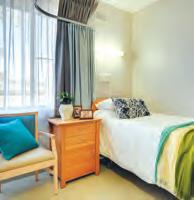
Bass Hill Aged Care
119 Robertson Road, Bass Hill (02)9644 6122
Nestled in peaceful surrounds in Sydney’s South West, Bass Hill is designed on one level and offers single and companion rooms. The Home has a variety of social areas where residents can enjoy activities, relax or catch up with family and friends.

Bayside NSW Aged Care
136 Marconi Road, Bonnells Bay (02)4973 6799
Bayside offers bright and spacious single and companion rooms, many with outlooks to landscaped gardens. The Home features a dedicated Memory Support neighbourhood providing a secure place for residents living with dementia.

Beechwood Aged Care
3-17 Albert Street, Revesby (02) 8774 5400
Beechwood is well-established in the local community, with spacious single and companion rooms and a Memory Support neighbourhood, for residents living with dementia. A café, sunny internal courtyards and gardens provide space to enjoy privacy or the company of friends and family.

28 Glebe Street, Parramatta (02) 9635 1114
Brentwood has a welcoming family-orientated atmosphere and long-standing, multilingual staff to support the culturally diverse resident community. The Home offers a selection of single and shared rooms and has a secure Memory Support neighbourhood for residents living with dementia.

124 March Street, Orange (02) 6362 2311
Calare is an established Home, well known in the Orange community for its expertise in supporting people living with dementia. Residents have the choice of bright and spacious single or companion rooms, all with an aspect to external gardens.

100 The Wool Road, Worrowing Heights (02) 4443 0077
Situated near Jervis Bay on the NSW South Coast, Coastal Waters reflects the relaxing environment of the coastal lifestyle. Offering single and companion rooms, the Home also has a dedicated Memory Support neighbourhood for residents living with dementia.

9-17 Hinemoa Avenue, Normanhurst (02) 9372 3400
Located in Sydney’s leafy Upper North Shore, this Signature Home exudes sophistication yet projects the warmth of an elegant home. Greenwood offers a variety of spacious single rooms and suites across 5 neighbourhoods with a barista café, extensive outdoor areas and manicured gardens.

Gosling Creek Aged Care
1503 Forest Road, Orange (02) 6369 9800
Gosling Creek is positioned on spacious grounds and its design was inspired by the traditional Australian country homestead. The Home offers spacious single bedrooms with private ensuites, most with a veranda and direct access to courtyards or landscaped gardens.

Pemulwuy Aged Care
11 Pastoral Circuit, Pemulwuy (02) 8863 9000
Located in Sydney’s West near Greystanes, Pemulwuy is a purpose-built Premium Home. The private single rooms were designed with views to landscaped gardens or courtyards. The wide range of garden areas, lounges and the café are perfect for entertaining family and friends.

Pendle Hill Aged Care
2 Wyena Road, Pendle Hill (02) 9631 1066
Located in Sydney’s Western Suburbs, Pendle Hill has an unrivalled reputation for services to the community spanning 30 years. The Home offers all levels of permanent and respite care with a selection of single, double or companion rooms with courtyard views.

Redleaf Manor Aged Care
16 Flavelle Street, Concord (02) 8762 6000
Redleaf Manor is an Extra service Home that provides comfort and luxury. You can enjoy a pampering session at our hair salon or catch up with family and friends at the barista café. It offers single and companion rooms with a variety of indoor and outdoor spaces.
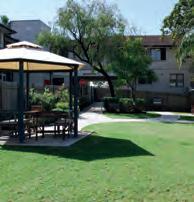
Rosemore Aged Care
18 Kingsgrove Road, Belmore (02) 9718 6156
Rosemore offers a variety of single and companion rooms all with an abundance of natural light. Residents can also enjoy the comfort and tranquillity of the sun-lit courtyard, ideal for entertaining or relaxing with friends and family.

Willandra Aged Care
19-21 George Street, Marrickville (02) 9569 4117
Centred around a sunny and charming courtyard, residents can enjoy their activities in a warm and tranquil atmosphere. Willandra offers bright and airy single and companion rooms. Multilingual staff are on-hand to assist with the needs of the culturally diverse residents.

As one of the largest and most trusted aged care providers in NSW and the ACT, we offer a full range of services for older people.
Home care
Our wide range of flexible and personalised services help you to stay independent, in your own home and community.
Retirement and independent living
When you’re ready to downsize, we’ll take care of your home maintenance while you enjoy the comfort, community and security of a Uniting retirement village.
Residential aged care
Our aged care homes help you to live your day, your way, with customised 24/7 support, allied health and respite care.

Transparency of information is one of the many key things COTA Australia has advocated on aged care reforms throughout the years. The Royal Commission into the Quality & Safety of Aged Care highlighted so many issues and revealed shocking stories of the experiences people have had. It set Australia on a path of serious and fundamental reform.
Throughout this Council on the Ageing (COTA) Australia has consistently and forcefully advocated for aged care that is of high quality, transparent and based on aged care services that are delivered in a way that upholds older people’s human rights.
The Royal Commission accepted many of these points and we are now seeing the development of a new rights based Aged Care Act, redesign of the support at home system to help more people remain independent in their own homes – where most people want to stay as they age - new transparent information sources like the Star Rating system, more staffing in aged care facilities and better funding for better care.
The job is not yet done. But COTA Australia remains on the case in aged care reform and in many other areas that impact on your life – like health care and employment. Tackling the impacts of ageism head on. Ensuring that older people have the same rights – including access to good information to make their own decisions – without question.
Finding the right aged care service for yourself, or assisting your loved one, is one of the most important things you will ever have to do. Yet it can be hard to find the information you need to help you make this decision.
This Guide can assist you to find and make the right decision. It is an independent resource to make you aware of options available in your local area. You can order a hard copy to browse through and share with families or friends. Alternatively, you may go online at AgedCareGuide.com.au if that’s your preference where you can filter your searches to just those services in a local area and request a quote from the provider you select.
COTA Australia, as the national peak advocacy body for people over 50 years of age, has partnered with DPS because we both value and focus on the need for you to have good information to make choices. More than that though, AgedCareGuide.com.au gives you the opportunity to leave a review of the services – be they provided in the home, in a nursing home or a retirement village. All of us like to hear from our peers or others in the same situation about what is good, bad or indifferent when making decisions. Your experience and feedback provides more invaluable information for another person in their search and decision making.
I hope you will find this guide useful in your decision making and that you will share your experiences to help others in the same situation. And we will continue the work to make aged care services better and uphold your rights in all of their interactions with you.
Wishing you all the best in finding the service that is right for you.
Patricia Sparrow CEO, COTA Australia
Aged Care Guide
NEW SOUTH WALES & ACT 2024, 24TH Edition
Printed April 2024
RRP $66, inc GST
Deputy Editor
David McManus
david.mcmanus@dps.com.au
DPS Publishing Pty Ltd ● 1300 186 688 ● PO Box 1026, Pasadena SA 5042 info@dps.com.au ● AgedCareGuide.com.au ● ABN 53 090 793 730 Advertising Distribution Proudly produced sales@dps.com.au distribution@dps.com.au and printed 1300 186 688 1300 186 688 in Australia
The factual material contained in this publication has been obtained from information supplied by government departments, industry and organisations, by personal interview and by telephone and correspondence. At the time of going to press the publisher believed that all information submitted for publication was accurate and complete. However, the publisher can take no responsibility for inaccuracies or incomplete information that may have been supplied to them in the course of their enquiries detailed above. The facts published indicate the result of those enquiries and no warranty as to their accuracy can be given. The information in this publication is general in nature and does not constitute financial, legal or other professional advice. Readers should consider whether the information is appropriate to their needs and seek professional advice tailored to their personal circumstances. Images within this publication may have been altered from their original format.
© Copyright. No part of this publication can be used or reproduced in any format without express permission in writing from The Publisher. ® Aged Care Guide is a registered trademark.
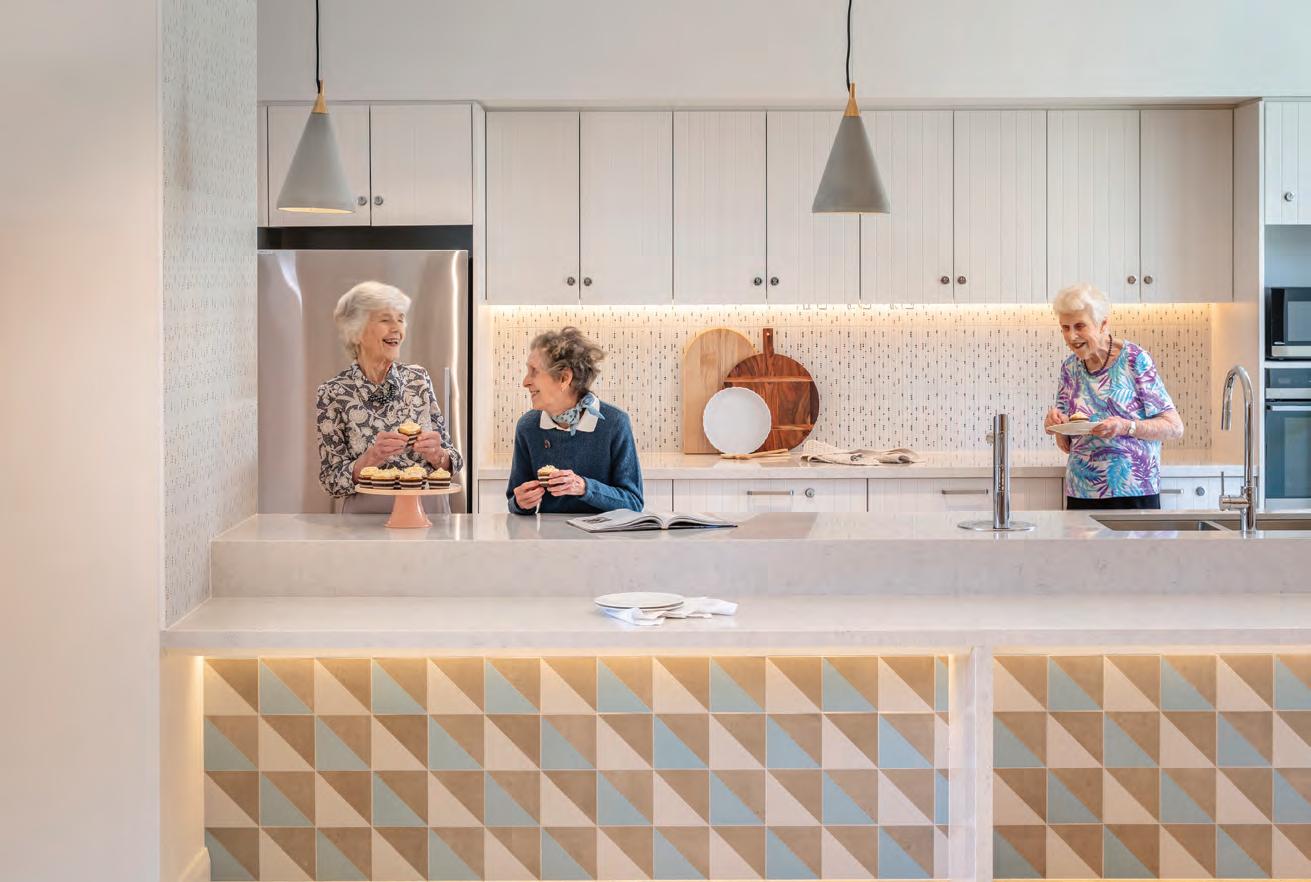
Locations:
• Castle Hill
• Dapto
• Gordon
• Jannali
• Kingswood
• Malabar
• Minto
• Oran Park
• Paddington
• Penrith
• Rooty Hill
• Rushcutters Bay
• South Hurstville
• South Nowra
• Taren Point
• The Ponds
• Warriewood
• Winston Hills
• Woonona











Advocacy
ACT Disability, Aged and Carer Advocacy Service (ADACAS)
02 6242 5060 adacas.org.au
Carers ACT
1800 422 737 carersact.org.au
Carers Australia
02 6122 9900 carersaustralia.com.au
Carers NSW 02 9280 4744 carersnsw.org.au
COTA ACT
02 6282 3777 cotaact.org.au
COTA NSW 02 9286 3860 cotansw.com.au
National Seniors
1300 765 050 nationalseniors.com.au
Older Person’s Advocacy Network (OPAN)
1800 700 600 opan.org.au
Cultural
Ethnic Communities’ Council of NSW
02 9319 0288 eccnsw.org.au
Federation of Ethnic Communities’ Councils of Australia
02 6282 5755 fecca.org.au
Multicultural Communities Council of Illawarra 02 4229 7566 mcci.org.au
Translating and Interpreting Service
13 14 50 tisnational.gov.au
Government
Aged Care Quality & Safety Commission
1800 951 822 agedcarequality.gov.au
Department of Veterans’ Affairs
1800 838 372 dva.gov.au
My Aged Care
1800 200 422 myagedcare.gov.au
Services Australia - Carers & Disability
13 27 17 servicesaustralia.gov.au/carers
Services Australia - Medicare
13 20 11 servicesaustralia.gov.au/medicare
Services Australia - Older Australians
13 23 00 servicesaustralia.gov.au/ageing
Service New South Wales
13 77 88 service.nsw.gov.au
Dementia Australia
1800 100 500 dementia.org.au
Dementia Behaviour Management Advisory Services (DBMAS)
1800 699 799 dementia.com.au
National Continence Helpline
1800 330 066 continence.org.au
National Dementia Helpline
1800 100 500 dementia.org.au
Seniors Health Card 13 23 00 servicesaustralia.gov.au
LawAccess NSW 1300 888 529 lawaccess.nsw.gov.au
NSW Trustee and Guardian
1300 109 290 tag.nsw.gov.au
Public Advocate of the ACT 02 6205 2222 hrc.act.gov.au/public-advocate
Aged Care Guide
1300 186 688 AgedCareGuide.com.au
Carer Gateway
1800 422 737 carergateway.gov.au
National Relay Service
1800 555 660 accesshub.gov.au
ned (National Equipment Database) askned.com.au
Open Arms - Veterans & Families Counselling
1800 011 046 openarms.gov.au
Relationships Australia
1300 364 277 relationships.org.au
Seniors Information Service (NSW) 13 77 88 service.nsw.gov.au
The information featured in this 24th edition of the Aged Care Guide New South Wales & ACT will inform you of several considerations when choosing accommodation and care options.
The information in this Guide will help you understand aged care, in-home and community care options in Australia.
The Aged Care Guide also includes a comprehensive directory of in-home care services (see pages 114–129); Home Care Package providers (see pages 132–142 for Metro Sydney, 142–151 for Regional NSW & ACT); residential aged care homes (see pages 153–194 for NSW, 195–196 for ACT); and facilities or services specific to your cultural background (see pages 198–200 for homes, 201–205 for HCPs).
There are a number of ways you can use the Aged Care Guide in order to find aged care homes, Home Care Packages, products or services.
The index on page 236 can help you to find the main information topics in the book and can direct you to the different directory tables for aged care homes, in-home care options or products/services in the back of the Guide.
Each council district (also known as a local government area or LGA) on the referenced page includes a list of suburbs with homes or villages in each suburb listed in alphabetical order.
Locality search: If you know the council district, suburb or town, then use the cross-reference index on page 110. Each of these lists are in alphabetical order and you can then refer to the page referenced.
Cultural search: If you are of non-English speaking background, or prefer to find a home or service specific to your cultural needs, refer to the multicultural listings on pages 198–205.
If you are looking for centre-based care, day therapy centres or other products and services, you can find this in the directory section from page 206 onwards.
Visit AgedCareGuide.com.au for a complete list of services available near you















SummitCare Baulkham Hills 2020 Winner for Outstanding Specialised Business And multiple finalists for: Specialised Business Professional Services Health Improvement Services



P: (02) 8865 3600




SummitCare Baulkham Hills
E: baulkhamhills@summitcare.com.au

SummitCare Smithfield
P: (02) 9755 7333
SummitCare St Marys
P: (02) 9673 6999



E: smithfield@summitcare.com.au

SummitCare Penrith
P: (02) 4721 2512
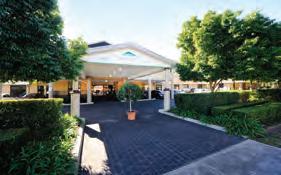




E: stmarys@summitcare.com.au
SummitCare Liverpool
P: (02) 9602 9044
SummitCare Canley Vale
P: (02) 9728 1200



E: penrith@summitcare.com.au



E: canleyvale@summitcare.com.au
SummitCare Randwick
P: (02) 9398 4511



E: randwick@summitcare.com.au
SummitCare has been providing excellence in care to our residents for over fifty years. Our highly qualified staff provide 24/7 care on both a permanent and respite basis.
We are proud to announce that our teams and facilities across Sydney and Newcastle have achieved 100% Accreditation results from the Aged Care Quality and Safety Commission for our outstanding services and facilities.
Our homes are designed to offer spacious living areas, external and internal courtyards with beautifully landscaped gardens for our residents to enjoy.




E: liverpool@summitcare.com.au
SummitCare Wallsend



P: (02) 4944 1500 E: wallsend@summitcare.com.au
SummitCare Waverley
P: (02) 9387 3872



E: waverley@summitcare.com.au
Family-owned business with a focus on care and services to the ageing community. We also offer:
• Pet friendly
• Freshly prepared nutritious meals, cooked on-site
• Resident-focused leisure and lifestyle activities
• Concessional and DVA welcome.
www.summitcare.com.au

Whether you need support to remain living independently at home or are looking for alternative accommodation, it is important to know what options are available to you.
‘Aged care’ is a term used to describe a range of services to support older people. This could be getting some home care assistance in your own home or moving into a nursing home. However, it may also refer to community services, specific health care services delivered in a day-centre setting, assisted living options or even products and equipment to assist anyone over 65 years old.
Accessing aged care can be complicated and confusing if you have not used support services before or don’t know where to start.
Whether you need support to remain living independently at home, or are looking for alternative accommodation, it is important to know what options are available to you.
Different types of care include:
The path to accessing support is different for everyone. For some, the need for support is gradual and starts with a little bit of help every now and then, slowly increasing to more frequent and more intense assistance to remain living independently.
If you want to stay in your own home but need some support to help you manage better at home, there are a number of supports available to you depending on your circumstances.
Different care options that might be available to you include support at home through government-funded programs, such as the Commonwealth Home Support Programme (CHSP) or the Home Care Packages (HCP) program.
Home care products and services range from assistance with daily chores and personal care to providing meals, transport assistance and home maintenance.
Basic assistance is offered through the CHSP, but if your needs exceed the level of support offered though this program then a level 1– 4 Home Care Package can offer higher intensity support to help you stay at home.
Private providers can also deliver a range of home support services. They are not government funded and you will need to pay for services out of your own pocket.

There are a few different support options available if you only need support for a short period of time. These options include respite care, which can be delivered in the community or in a residential care home, offering the opportunity for both you and your carer to take a short break.
At the end of a hospital stay, the Transition Care Program provides short-term assistance to help improve your independence and confidence.
If you have not been admitted to hospital, the Short-Term Restorative Care program is a flexible option that focuses on regaining wellbeing over a short period of time.
Moving into residential aged care can ensure quality of life and comfort if you are no longer able to remain living independently at home. Also known as ‘nursing’ or ‘aged care homes,’ these facilities provide 24/7 care as well as a range of other support services and recreational activities. The cost of care in most Australian aged care homes is subsidised by the Australian Government. There are also a number of non-government-funded residential aged care homes, often referred to as ‘supported and assisted living complexes’ and you will need to cover all the cost of accommodation and care delivered.



16-18 Henry Lawson Drive , Peakhurst NSW T: 9533 4089
E: peakhurst@ourladyofchina.org.au
57-61 Pembroke Rd, Minto NSW T: 9603 7911
E: pembroke@ourladyofchina.org.au
RUBY MANOR
10 Ruby St, Carramar NSW 2163 T: 9723 7166
E: rubymanor@ourladyofchina.org.au ALKIRA GARDENS
2 Animbo St, Miranda NSW 2228 T: 8578 1688
E: alkiragardens@ourladyofchina.org.au ROCKY POINT RESIDENCE
151-157 Rocky Point Rd, Beverley Park NSW 2217 T: 7909 0778
E: rockypoint@ourladyofchina.org.au
T: 9153 8224
E: info@ourladyofchina.org.au
Before you can access government-subsidised aged care supports, such as in-home care, community supports or moving into a nursing home, you need to register with My Aged Care and be assessed to work out exactly what level of support you need.
My Aged Care is the agency that looks after every governmentfunded aged care program. The service can help you find information about subsidised aged care options, including the different types of government-funded services available, eligibility for those services and the associated costs.
You, a family member, carer or client representative can register your details with My Aged Care so that you can be assessed to access any government-subsidised services.
When you first call the My Aged Care Contact Centre on 1800 200 422, an operator will register you and ask you a number of questions about your personal circumstances and care needs.
These questions will be quite basic and shouldn’t take too long. All you will need when you call is your Medicare card, as this information is stored with your other details on the My Aged Care database.
Examples of the questions you will be asked are:
Are you currently receiving aged care services?
Are you getting support from a carer or family member?
Can you prepare your own meals and do housework?
Do you need assistance taking a shower or bath and do you need help getting dressed?
Are there any health concerns or did you have a recent fall?
Do you feel lonely or isolated?
Are there any safety risks in the home?
The aim of this screening is to figure out what needs and support you require and whether you are eligible for a further assessment in person.
My Aged Care will assign you an aged care client number and will open a central client record. This record will include the information you have provided, as well as document your assessed needs and any government-funded care services you have been found eligible for.
If you are successful in your initial application with My Aged Care, the contact centre operator will refer you for an aged care assessment to determine what level of support you would benefit from the most.
If the operator decides that you are eligible for basic home support through the Commonwealth Home Support Programme (CHSP) you will be assessed by a Regional Assessment Service (RAS).

Otherwise, if the operator believes you require higher care support, either through a Home Care Package (HCP) or moving into an aged care home, a member of an Aged Care Assessment Team (ACAT) will visit you to assess you.
To access basic government-funded home support under the Commonwealth Home Support Programme (CHSP), you need to be assessed by the Regional Assessment Service (RAS). For more information about CHSP, go to page 22.
The RAS assessment helps to identify your needs for support and any goals for retaining or regaining skills that enable you to continue living independently in the community. It is conducted free of charge and independently from service provision which ensures assessors consider the full range of options when responding to you and your carers’ needs and goals.
Some of these needs may include assistive technology, therapeutic interventions, community care services or other support organisations.
RAS assessors liaise with other service providers, GPs/specialists and community support networks to make sure desired outcomes are achieved. If your care needs have increased, the RAS can also plan and coordinate an exit from the CHSP and transfer you to other appropriate service systems, including Home Care Packages and/or residential care, if required.
The service also provides care coordination if you have multiple providers or more complex needs.
If you are no longer able to manage at home without basic assistance, the Aged Care Assessment Team (ACAT) helps you and your carers determine what kind of care will best meet your needs.
This may be a Home Care Package (see page 25) provided to you in your own home or residential care in an aged care home (see page 57).
ACAT assessors are generally professionals with medical backgrounds, such as doctors, nurses, social workers, occupational therapists and other health experts.
There is no charge for the assessment as the ACAT is government funded. Carers, relatives or close friends are encouraged to be involved in the discussion of your needs.
While an ACAT can’t make recommendations about individual homes or community services, they can provide you with information to assist you to make decisions.
To assist you in your search, an independent information source like the Aged Care Guide publications and the linked AgedCareGuide.com.au website can help. These resources give a comprehensive overview of all care options and care providers available.

Residential
Retirement
Residential

You may be placed on a
list until a
You can find someone to help you:
Placement consultant
Aged care advisor
Social worker
Case manager
Hospital discharge planner
These professionals know the system really well and their help can make your search much easier.
Other useful people:
Financial advisor
Health fund
Veterans' Affairs
Local council
If your situation is urgent then the ACAT will assess you as quickly as possible
Remember: it takes anything from a few weeks up to more than a few months to find the care home that suits you
You can find someone to help you:
Placement consultant
Aged care advisor
Social worker
Case manager
Hospital discharge planner
Consult your Aged Care Guide for a list of choices for any of these options or visit AgedCareGuide.com.au
These professionals know the system really well and their help can make your search much easier.
Other useful people:
Financial advisor
Health fund
Veterans’ Affairs
Local council










Medication
Companionship
Meal
Light
Transportation
Respite










To help you live independently in your own home and community for as long as possible, there are many home care products and services available.
Depending on your personal situation and the level of assistance you require, you may be entitled to some basic in-home support or more intensive support through a Home Care Package.
After a hospital stay, the Transition Care Program might be able to assist in your recovery and to return home. Alternatively, you may need to access respite care to give your carer a short break from the caring role.
There is a variety of support at home options available that can meet your specific needs.
The government prioritises your care needs to help you live comfortably in your own home.
Home care products and services range from assistance with daily chores to personal care, providing meals, transport assistance, as well as equipment, such as a ramp, walking frame or shower rail to help you live independently in your own home.

The government continues to significantly increase support for home and community-based aged care with particular integrated packages available. Private businesses also offer home care services.
Consumer-directed care (CDC) gives you and your carers greater say about the types of care services you receive and the delivery of those services.
All Home Care Packages are delivered on a CDC basis and the funding for a package is allocated directly to you instead of to the provider.
Providers are required to work in partnership with you to create a package of services that meets your goals and needs, and gives you the information you require.
This information should assist in choosing the best provider for you, as well as changing providers if you need.
CDC allows you to determine how much involvement you wish to have when managing your package. It also allows for more transparency around how your package is funded and spent.
All home care services you receive should include ongoing monitoring and reviews from the provider to make sure your package is meeting your needs.
If you want to stay in your own home, but need some help with daily tasks or require entry-level care, the CHSP may be able to help.
The CHSP combines a number of home support options into one streamlined and simplified program. These options include short-term supports, such as respite, transition care and short-term restorative care. It also provides basic ongoing support both at home and in the community, as well as access to wellness programs, day options and centre-based services.
To determine if the CHSP is the right program for you, you will need to be assessed by a Regional Assessment Service (RAS). See page 83 for more information.
If you have more complex needs, a Home Care Package may be a better option. You can access similar services to the CHSP, coordinated and tailored to meet your specific needs (see page 25 for more details).
Contact My Aged Care on 1800 200 422 to find out how you can arrange a home support assessment.
Subsidised by the Australian Government, the CHSP is an entry-level home help program if you are mostly – but not completely – able to live on your own and don’t need higher levels of support at home.
The program can also help your carer. If your carer needs to attend to everyday activities, the CHSP can arrange for someone to help you while they are away.
CHSP services provided in the community may include:
Social support – social activities in a community-based group setting
Transport – help to get out and about for shopping or appointments
Services provided at home may include:
Domestic assistance – household jobs such as cleaning, clothes washing and ironing
Personal care – help with bathing, showering, dressing or toileting
Home maintenance – minor general repair and care of your house or yard, for example, changing light bulbs or replacing tap washers
Home modification – minor installation of safety aids, such as alarms, ramps and support rails in your home
Nursing care – a qualified nurse comes to your home and may, for example, dress a wound or provide continence advice
Some CHSP services can be provided either at a community centre or in your home, such as:
Food services – may include providing meals at a community centre, help with shopping for food, preparing and storing food in your home and delivering meals to your home.
Allied health support services – If you have particular health problems you may be able to access allied health services, such as physiotherapy, podiatry, speech therapy, occupational therapy and advice from a dietitian.
You can apply for home help services under the CHSP if you are 65 years or older, or 50 years or older and identify as an Aboriginal and/or Torres Strait Islander person, are still living at home and need help to continue living independently.
You or your carer should contact the My Aged Care contact centre on 1800 200 422 or visit myagedcare.gov.au to apply.
To determine exactly what help you need at home, you will need a home support assessment. The assessment will be done by a representative of the Regional Assessment Service (RAS).
A local RAS assessor will look at your ability to cope with various activities in your daily living.
For more information about assessments, go to page 98.
If you’re in a situation where you have an urgent need for home support services and your safety would be at risk if those needs are not immediately met, it may be possible to receive CHSP services before you have been assessed by a RAS.
This only happens in exceptional circumstances and is only for a limited time until an assessment can be organised to determine long-term care options.
Services generally considered to relieve an urgent need for care include nursing, personal care, meals and transport.
It will depend on your personal circumstances whether you’ll be able to receive interim services before an assessment. Call the My Aged Care contact centre on 1800 200 422 to find out more.
Supports delivered under CHSP are subsidised by the government, however, there generally is still a fee for each service. You are encouraged to contribute towards the cost of your care if you are able to do so.
The amount you contribute depends on the type and number of services you require and can differ from one service provider to the next. Some organisations may charge a set fee for their services, while others may ask for a voluntary donation, charge a membership or subscription fee.
• Established and reputable provider of comprehensive care solutions
• Holistic approach to support, addressing physical, emotional, and social aspects
• Experienced and trained staff dedicated to delivering compassionate care.
• Mission: Enabling and empowering individuals with disabilities to lead fulfilling lives.
• Continuous improvement and adaptation to the latest best practices in disability care.
• Transparent communication with clients and their families.
We deliver an all-encompassing service, which include assistance in:
Shopping
Personal Care
Travel and Transportation
Companionship
Preparation of meals
Nursing at home
Home cleaning and modification
Elementary housekeeping
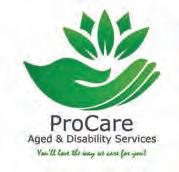
Home and garden maintenance and many more – as and when needed

How much you pay is discussed and agreed upon between you and your service provider. The rate is set before you begin receiving the relevant services.
If you are receiving multiple services from one or more service providers and these services overlap, it may be possible to ‘bundle’ the cost for these services.
To find out specific costs, you should contact your service provider.
If you accessed Home and Community Care (HACC), National Respite for Carers Programme (NRCP), day therapy centres (DTC) or Assistance with Care and Housing for the Aged (ACHA) prior to 1 July 2015, you may retain access to these services or equivalent CHSP services until other suitable services become available, or until the service is no longer required.
You can find CHSP funded services starting on page 114 of the directory section or online on AgedCareGuide.com.au.
A Home Care Package (HCP) provides services that will help you to remain at home for as long as possible, as well as giving you choice and flexibility in the way that the care and support is provided.
There are four different levels of packages to support people with varying care needs, ranging from Level 1 support, if you have basic care needs, to Level 4, which can support you if you have high-level care needs.
The HCP is allocated to you personally, which gives you more control over the services you receive and who delivers those services.
Once you have been allocated a HCP you can contact any preferred approved service provider to give you the care you need.
There are four types of packages delivering different levels of care:
1 Level 1 supports people with basic care needs
2 Level 2 supports people with low-level care needs
3 Level 3 supports people with intermediate care needs
4 Level 4 supports people with high-level care needs
The same type of care and services are provided under each HCP level, however, the amount of funding is different depending on what package is allocated to you.
The hours of care are increased at each level of care; more hours of care and services are delivered under Home Care Package Level 4 compared to Level 1.
The ACAT assesses the types of care needs you may require. Someone eligible for Levels 3 and 4 HCPs would be eligible for higher levels of residential care if they were to apply for it.
If you are receiving care services through the previous Community Aged Care Package, Extended Aged Care at Home or Extended Aged Care at Home Dementia packages, you will continue to receive these services, but they will have a different name.
Package supplements are available with any of the four levels of Home Care Packages to help with the cost of meeting specific care needs. For example, the Z Dementia Supplement is for people with dementia and the R Veterans’ Supplement for veterans with an accepted mental health condition.
Some packages can be specifically for people who are e financially or socially disadvantaged, people with Y housing needs or at risk of homelessness, or for people who live in t rural, remote or isolated areas. Some providers might cater for people with a certain g cultural background or have staff that speak a foreign language.
Your care provider will apply for these subsidies and ensure you meet the eligibility criteria.
For a list of HCP providers, see pages 134-151.
Home Care Package services are based on your individual needs. Your provider coordinates the care and services to support you at home and these are agreed between you and your provider. Services may include:
Personal assistance with bathing or showering, personal hygiene and grooming, dressing, toileting and mobility
Assistance with communication, including assistance to address difficulties arising from impaired hearing, sight or speech, or lack of common language. This can also include assistance with the fitting of sensory communication aids, checking hearing aid batteries and assistance in using the telephone
Domestic assistance for household jobs like cleaning, clothes washing and ironing
Food services, such as preparing meals or having meals delivered, assistance with using eating utensils and assistance with actual feeding and providing enteral feeding formula
Nursing services, including dressing wounds by providing bandages, dressings and skin emollients, as well as continence management and assistance in using continence aids and appliances
Assistance in taking your medications
Providing mobility equipment, such as crutches, walking frames, wheelchairs and mechanical devices for lifting, bed rails, slide sheets and pressure-relieving mattresses, and assistance in using those aids
Home maintenance for care of your house or garden
Modifications to the home – installing safety aids, such as alarms, ramps and support rails; identifying risks in the house and proposing solutions










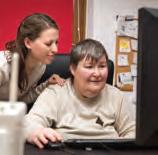


Illawarra 02 4244 3470 Liverpool 0479 070 119 Central Coast 02 4326 9030
Cairns 0458 720 217
Western Australia
Lower North Perth 08 9371 9115
South East Perth 0416 205 819




Mable is an online platform where you can connect with approved independent support workers that meet your needs. On Mable, you can connect with support workers, book your support sessions and easily manage your support.

Transport and assistance for appointments or social activities
Encouragement to take part in social and community activities that promote and protect your lifestyle, interests and wellbeing
The following services or items are not included in a package in any of the four levels of home care:
Using the package money as a source of income for the consumer
Purchase of food, except for enteral feeding requirements
Paying for accommodation, such as assistance with home purchase, mortgage payments or rent
Payment of fees or charges for other types of care funded or jointly funded by the Australian Government
Home modifications or capital items that are not related to the consumer’s care needs
Travel and accommodation for holidays
Cost of entertainment activities, such as club memberships and tickets to sporting events
Payment for services and items covered by the Medicare Benefits Schedule or the Pharmaceutical Benefits Scheme
Gambling activities
To receive a Home Care Package you will need to be assessed by an Aged Care Assessment Team (ACAT).
The ACAT helps you and your carer determine what kind of care will best meet your needs when you are no longer able to manage on your own.
A member of the service, which may include a doctor, nurse, social worker and/or other health professional will meet with you to assess your care needs and how well you are managing at home.
They will identify the right services for your needs and the level of care you require.
The ACAT will give you a letter stating the types of subsidised services you have been approved for and might also put you in contact with organisations in your area that can deliver these services.
For more details about assessments go to page 98 or call 1800 200 422 to organise an assessment.
Access to Home Care Packages is managed through a national pool of all available packages. After approval for a HCP, you will be placed in a ‘queue’ until a suitable package becomes available. This may take a number of weeks or even months.
Your place in the queue will be determined by your personal needs, circumstances and the time you have been waiting for care since your assessment.
When you reach the front of the queue and a package is assigned to you, you can begin to receive care from the provider of your choice.

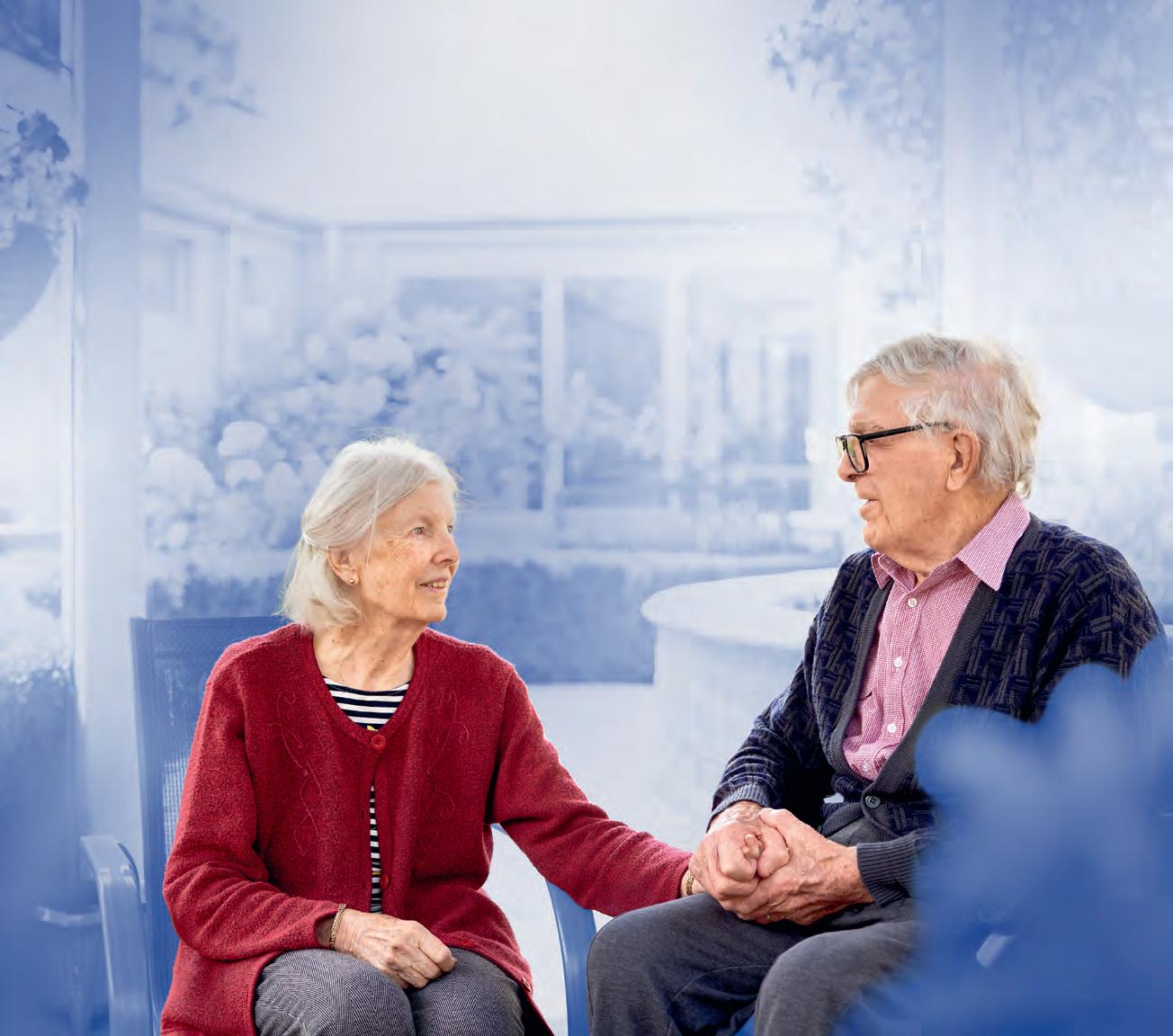
Guided by Calvary’s 135 year history in health care, you will have peace of mind with access to quality care.
Calvary is recognised as a continuing source of healing, hope and nurturing to the people we serve. Our personalised approach ensures every person receives the attention and care that they need. All of our care is delivered with dignity and is designed to improve your health and wellbeing.
You have 56 days from the date you were assigned a package to find a provider and commence services.
You can request an extension, for example, if you have trouble finding a service provider. However, if you haven’t started receiving care within 84 days, the package will return to the queue and be assigned to the next person in line.
An organisation that has been approved by the government to provide aged care services is called an approved provider. The government will pay your approved provider your allocated funding so they can pay the carers and any other bills.
An approved provider can manage your care, liaise with you about your preferences, requirements and care plan, but it doesn’t have to be the provider delivering your care.
It is important to know that even though a HCP can only be managed by an approved provider, the care can be delivered by any provider, even one that is not supported by the government. This gives you more choice as to who delivers your care.
This agreement is made between you and your provider and covers information such as the care and services you will receive and how much they will cost.

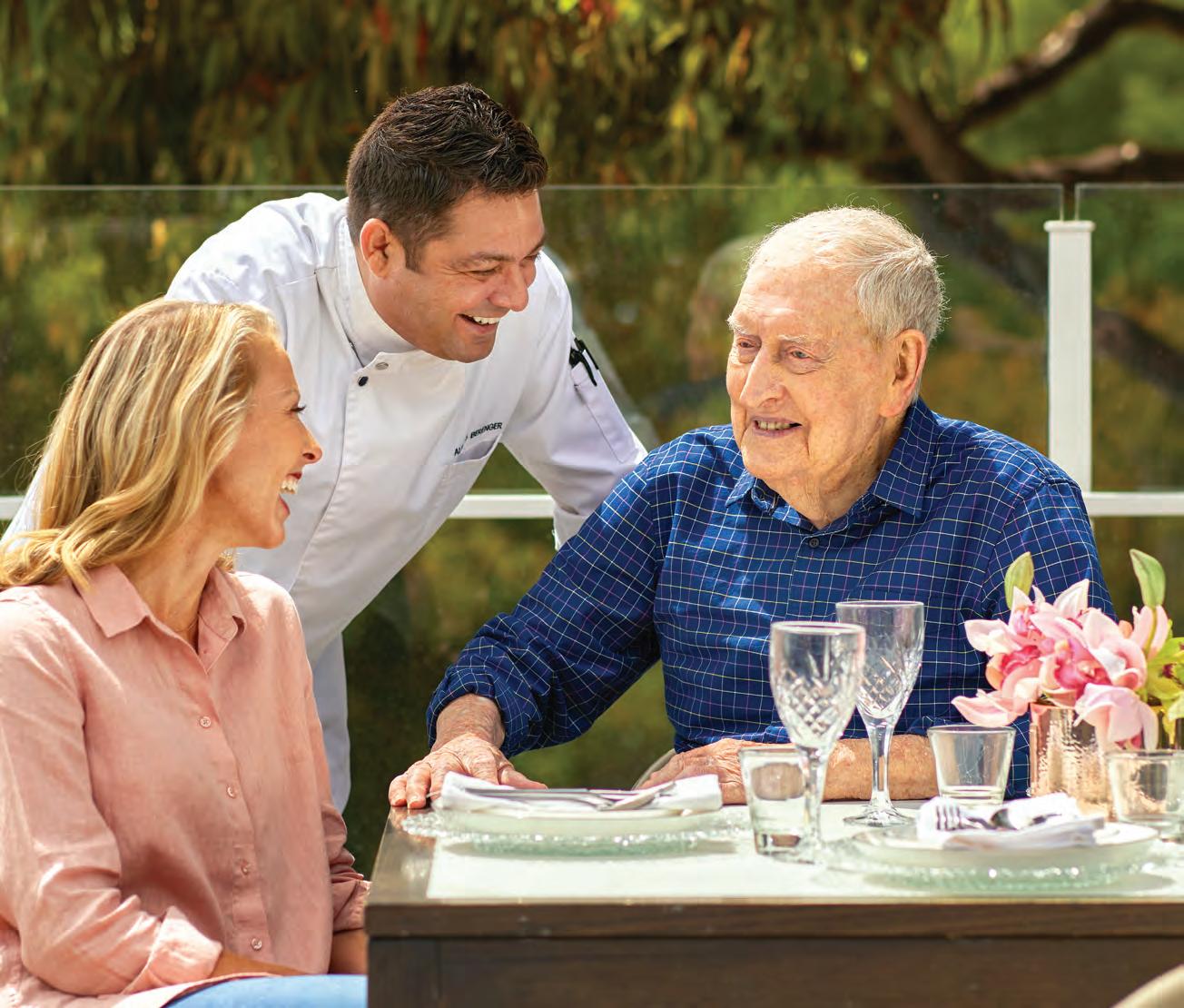
Arcare has over 50 high quality aged care residences across Victoria, Queensland and New South Wales. Each is supported by four decades of understanding and expertise.
Our first residence in the ACT is currently being constructed in Gold Creek. To find out more, contact Arcare today.
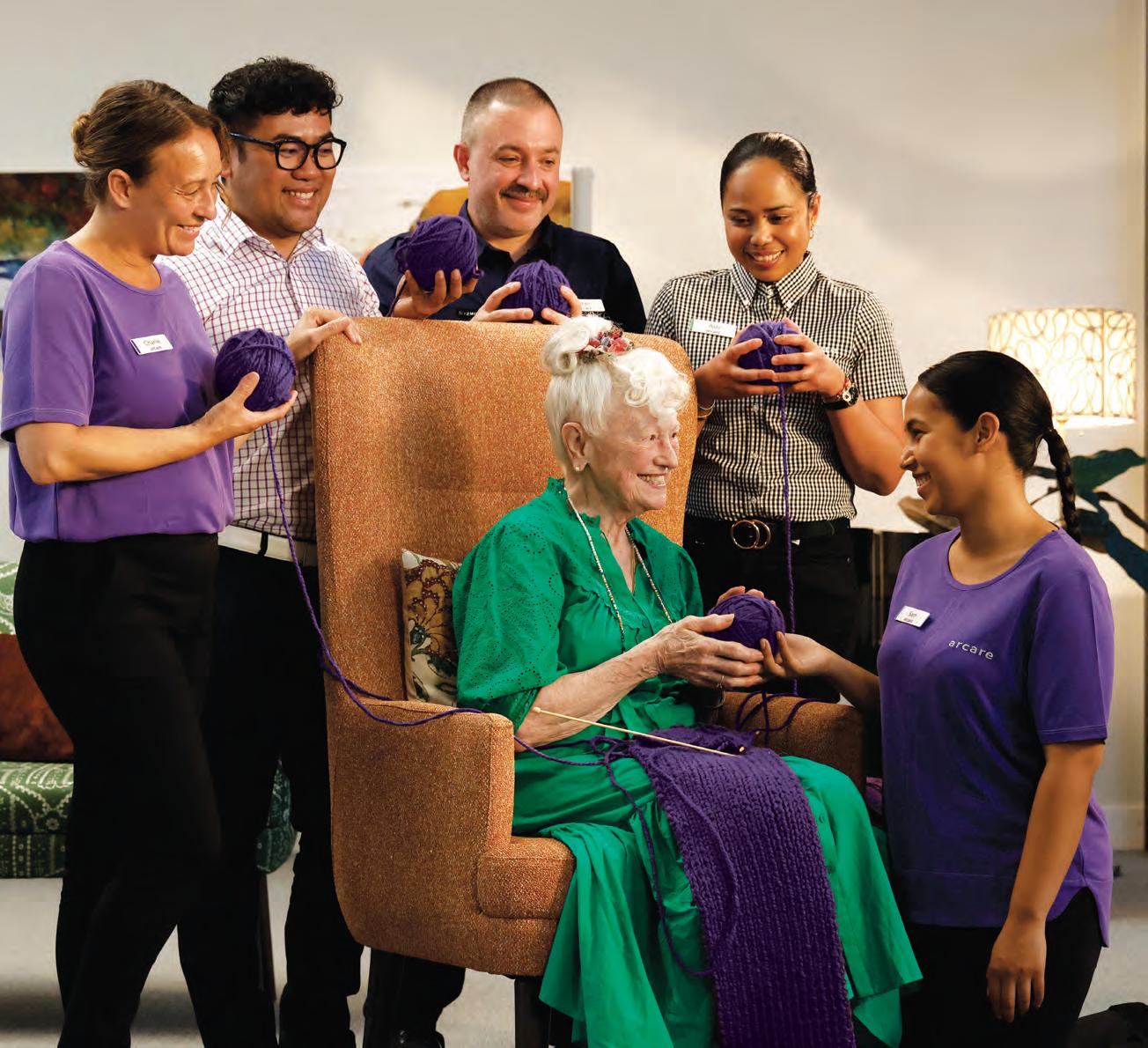
It takes many threads to make something special. Just as it takes many great people to ensure our residents enjoy the best of care. When you join an Arcare community, you’ll experience our unique Relationship-First Approach, that is centred around the needs of the resident, and is driven by valuable inputs from the resident, their family and a dedicated group of carers.














































At Bupa Aged Care, whether for respite short-stay care or as a new home, our experienced registered nurses and carers aim to provide the care each resident needs, in the way they prefer.
Care is first and foremost
We embrace and support residents to live their day their way, with teams dedicated to their wellbeing.
People rarely expect to need aged care, but if your family does, we’ll guide you through the steps.
To book a visit with one of our 24 homes throughout Sydney and regional New South Wales, call us on 1800 718 357 or visit bupaagedcare.com.au/region/NSW
Admission to one of our Bupa Aged Care homes is subject to availability and your care needs.
Your provider will work with you to develop a care or service plan that is based on your needs.
The care plan you agree to should include:
The exact types of services you will receive
Who will provide which services
How much involvement the service provider will have in managing and coordinating your services
When your services are delivered
Any exit amount the provider will charge to cover administrative cost if you decide to take your package elsewhere or cease care
The government covers most of the cost of care but your provider may ask you to contribute towards the cost of delivering your services, if you can afford to do so.
Depending on the Home Care Package level you are eligible for, the government pays your approved provider a subsidy toward the cost of your care. This amount is calculated daily and paid monthly to the provider.
ADS Care is an approved service provider that provides high quality care to support you or your family member in their own home. ADS Care offers services across greater Sydney to people of all ages and cultural backgrounds. We provide support 24 hours a day, 7 days a week.
We offer a full range of care support to satisfy all your needs delivered by our trained and qualified team.
Our support services cover the following aspects:
Personal care
Domestic assistance
Mental Health and Dementia
Manual Handling
Transportation
Meal preparation
Companionship and conversation


amount
The government contributes the following amounts to each person receiving a Home Care Package (March 2024 rates): Home Care Package Daily subsidy amount
1
2
3
Level 4
This amount may be supplemented with an additional payment for people with higher care and specialised support needs, such as a Dementia, Veterans’ or Housing supplement.
Rates are reviewed generally in March and September each year in line with changes to the Age Pension. This applies to each person receiving a Home Care Package, even if you are part of a couple.
Any government funding you receive will be paid directly to the provider who can spend the funds on the items you both agreed to in the home care agreement.
After commencement of your package, you will receive a monthly statement of income, expenditure and the balance of funds enabling you to see how the money is being spent.
A provider may charge the maximum basic daily fee for a Home Care Package depending on what level you have been given. Maximum fees for each level currently are (March 2024 rates):
There may be additional benefits available depending on your personal circumstances, contact My Aged Care on 1800 200 422 for more details.
If your income is higher than the Age Pension you may be required to pay extra for your care.
How much extra depends on your income and unavoidable expenses, such as pharmaceutical bills, rent, utilities and other living expenses. However, the maximum amount you can be asked to pay over the maximum basic daily fee for a HCP is up to 50 percent of your income exceeding the maximum base rate of the Age Pension.
The current Age Pension amount is $1,020.60 per fortnight for a single person or $1,116.30 with the included maximum Pension Supplement and Energy Supplement.
You can negotiate with your provider on the costs of the services and care you receive.
These costs will be agreed upon and fixed in your agreement before you receive any aged care services. This is your legal agreement with your service provider.
No full pensioner will pay an income tested care fee and no part pensioner will pay an income tested care fee greater than $6,661.80 per annum.

If you have an income of more than $63,351.60 per year, you will pay an income tested care fee on a sliding scale up to a total of $13,323.68 per annum.
However, no one will pay more than $79,942.44 in an income tested care fee over their lifetime (March 2024 rates).
You will only pay an income tested care fee if you can afford to do so. Your income assessment will determine if you can afford to contribute towards the cost of your care.
Your assets, including the family home, are excluded from the means testing arrangements for home care.
HCPs are portable which means that if you are moving to a different area or if you’re not happy with a provider’s services, you can simply take your package and any remaining funds with you to a new provider.
If you decide to change providers, the provider may charge you an exit fee to cover any administrative cost which will be deducted from any unspent funds.
This is the amount that is ‘left over’ in your HCP budget and it will move with you to a new provider.
If you no longer require your HCP, these unspent funds will be returned to the government.
Exit fees may vary between providers and the amount should be clearly stated in the home care agreement between you and the provider.


We’re your local provider, we value your independence and strive to ensure you continue to enjoy the comforts of your own space. Let us support your journey.
• Approved Home Care Package Provider level 1, 2, 3, 4
• No Basic Daily Fee
• No Sign-Up Fee, No Exit Fee
• Reliable, flexible, friendly staff
• Services include shopping, transport, domestic and personal care, etc.
• Additional offerings such as gardening, physiotherapy, podiatry, home modification, etc.
The Australian Aged Care Quality and Safety Commission is responsible for the review of aged care services, including government-subsidised home care services.
As an independent body, the Commission manages the accreditation of residential aged care services and the quality review of home care services across Australia.
It evaluates these services against the set Aged Care Quality Standards. The Commission is committed to promoting continuous improvement of aged care and ensures that quality and other reporting by service providers is streamlined while supporting accountability, information and confidence for consumers.
If you are concerned about the care or services you are receiving, it is recommended that you first try to resolve any issues with your service provider.
If you feel you are not being heard or need help to address the issue, you can contact an aged care advocacy service to help you.
If the matter is not resolved, you can make a complaint to the Aged Care Quality and Safety Commission on 1800 951 822 or visit agedcarequality.gov.au .
No matter who you are, where you live or the types of care you need, you have rights related to your home care that should be respected by providers.
You have a right to:
Be accepted as an individual and have your preferences respected
Be treated with dignity, with your privacy respected
Receive care that is respectful of you, your family and home
Receive care without being obliged to feel grateful to those providing the care
Full and effective use of all human, legal and consumer rights, including the right to freedom of speech regarding your care
Have access to advocates and other avenues of redress
Be treated without exploitation, abuse, discrimination, harassment or neglect

Under the consumer-directed care principles, you also have the right to: Set your own goals for your supports
Determine the ongoing level of involvement and control you have over your home care
Make decisions in relation to your care
Maintain your independence as much as possible
Choose the care and services that best meet your goals and assessed needs, within the limits of the resources available
Have choice and flexibility in the way the care and services are provided in your home
Participate in making decisions that affect you
Have your representative - family member or close friendparticipate in decisions relating to your care if you request it or need support to make decisions
These rights mean you can live the life you want to live for as long as possible.
If you think your rights are not being respected you should talk to your provider about your concerns. If this does not solve the issue you can contact the Aged Care Quality and Safety Commission.


Southern Cross Care (NSW & ACT) is a leading not-for-profit aged care provider that has been caring about people for more than 50 years. We support you to live happily and independently in your own home.
Our local experienced care managers guide you through the services available and create a flexible, individualised plan that helps you live life to the full.
If you’re aged 65 years and over, or Aboriginal & Torres Strait Islander aged 55 years and over, why not enquire about how home support services could assist you.
Our Home Care services include:
• Meal Assistance
• Transport
• Social Support & Activities
• Wellbeing
• Allied Health Support
• Assistive Technology
• Aids & Equipment
• Home Maintenance & Modifications
• Respite for Carers
• Personal Care
• Nursing Care
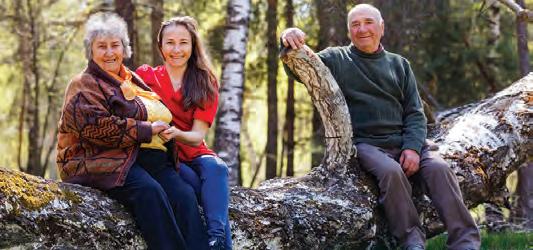


New Age is a family owned and operated organisation with 10 years experience. We provide support for our aged/frail and disabled population.
We’re Government registered service provider committed to ensuring our care recipients live the life they choose, with dignity, choice and confidence. We are also multilingual company with specialised department for Ex-Yugoslavia clients.
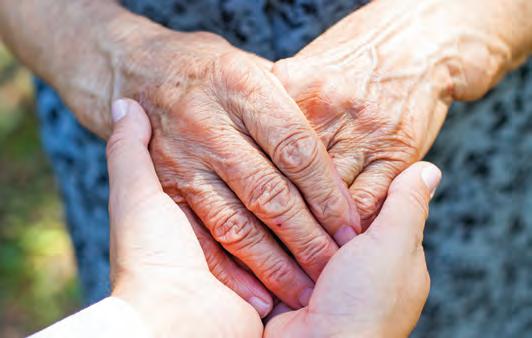



Rather than a government-funded service, you may choose a private home care provider and pay for services out of your own pocket.
Maybe this is more cost-effective for you or there is a waiting list for the government service you are trying to access.
Private home care services are arranged directly between you and the service provider. You pay for all the services provided and there is no government subsidy.
Private home care organisations provide a wide variety of services, including registered nurses for complex care needs and carers for companionship, personal care, housekeeping, cooking and outings.
They may also provide other types of staff, such as advisors, assistants, dietitians, drivers, personal trainers, physiotherapists and occupational therapists.
There is no limit to the number of hours of care provided each week and you can generally increase or decrease the time as your requirements change. With an agreed notice period, you are not required to pay for shifts you do not require.
While private home care may seem expensive, you may find that it is more cost-effective than other institutional alternatives. There is a wide variety in the level of quality and cost of home care companies.


If you are a veteran, war widow or widower, you may be in line to receive extra help in your home from the Department of Veterans’ Affairs.
If you are having a hard time completing household chores, struggling to get in and out of the shower or bath safely, or if you just can’t manage the gardening or household maintenance, then the Veterans’ Home Care (VHC) program could organise people to help you.
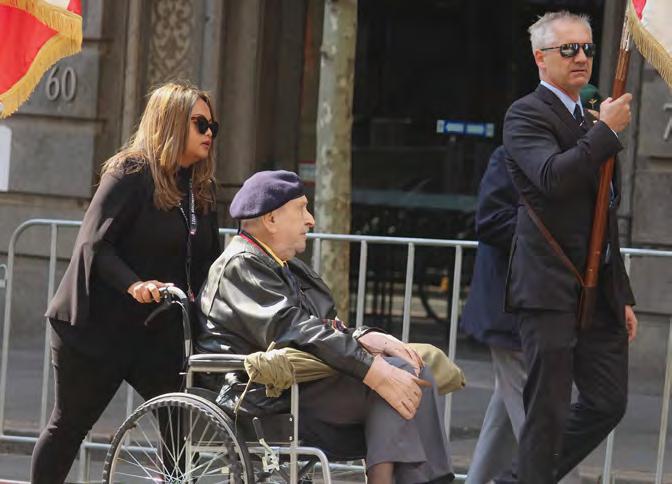
The VHC program offers a range of services including:
Domestic assistance
Personal care
Safety-related home and garden maintenance
Respite care
Services can be delivered in your own home or a residential care facility.
If you have specific medical care needs or need more intensive assistance, a nurse from the Community Nursing program may be able to help you stay in your own home for longer.
Nursing services may include:
Medication management
Wound care
Hygiene assistance
To receive these services, you need to be referred for an assessment by an appropriate health professional.
This could be your GP, a treating doctor in hospital, a hospital discharge planner or a VHC assessment agency.
There is a fee you will need to pay towards the VHC program. It is cost per service, currently at a $5 per hour co-payment, however, there is a limit to how much you will pay.
For instance, the maximum co-payment for domestic assistance is $5 per week, whereas personal care is limited to $10 per week.
If you can’t afford the co-payments, you can apply to have these fees waived.
Contact the Veterans’ Home Care Assessment Agency on 1300 550 450 to find out what support services are available to you and how you can access them.
Taking some time off from caring is crucial and known as ‘respite’. Respite can be provided in your own home, a community setting or an aged care home.
Respite care offers the opportunity for both you and your carer to take a break. This may be for a few hours, a day, a night or a few weeks.
Respite care is provided by residential aged care homes and by community care services under the Carer Gateway.
Accommodation and services include:
day-care centres that provide respite for a half or full day; in-home respite services, including overnight, home and personal care services; activity programs; a break away from home with a support worker; respite for carers of people with dementia and challenging behaviours; respite in an aged care home or overnight in a community setting; respite for employed carers and for carers seeking to return to work.
Access to respite care is based on priority and need. For respite care in your home or in a day-care centre, the respite service provider or the Carer Gateway will assess whether you and your carer are eligible.
The amount of care you receive will depend on your needs and the availability of respite care services.
Centre-based respite care (CBRC) can provide respite services to carers, offering individualised social and recreational activities. Through CBRC, you can also attend day programs which may include excursions, outdoor/indoor activities or holiday programs.
Trained respite workers often undertake client assessments. Needs-based programs are then developed with you and your carer to help enhance your quality of life.
There is no charge for assistance provided at Carer Gateway, however, individual service fees may apply.
Community-based respite services charge fees according to the type of service being used and your ability to pay. For respite in an aged care home, you will be charged the daily fee amount but do not have to pay the accommodation fee.
For more information, contact the Carer Gateway on 1800 422 737. Your call will automatically be directed to your nearest state or territory provider.

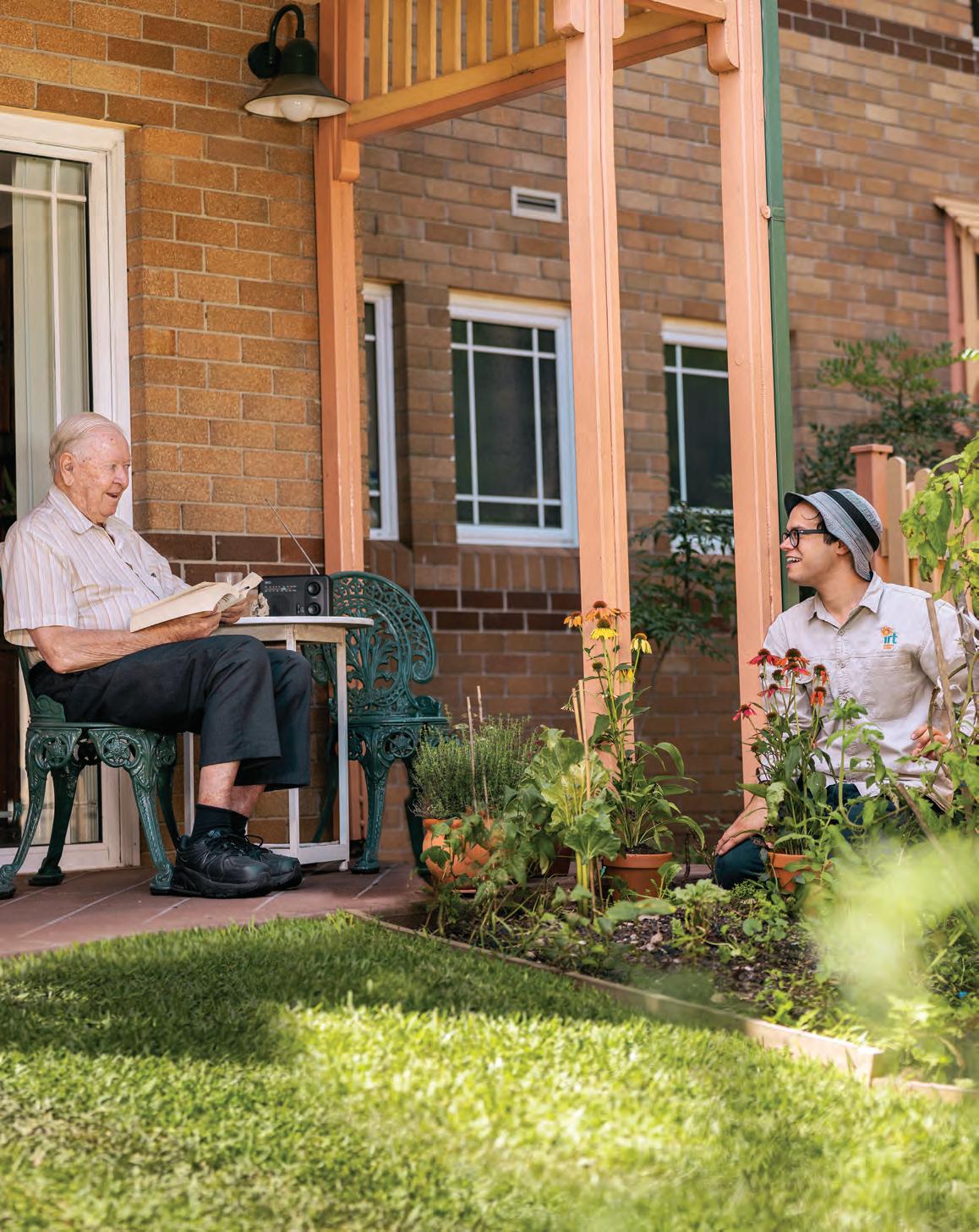
To help improve your independence and confidence at the end of a hospital stay, the Transition Care Program provides short-term support and assistance.
The Transition Care Program is goal oriented, time-limited and therapy focused care which can be delivered in your own home or in a home-like ‘live-in’ setting, which may be an aged care home.
To be eligible for transition care, you must be an in-patient of a hospital and have been assessed by the Aged Care Assessment Team (ACAT).
Transition care can be provided for a period of up to 12 weeks, with a possibility to extend to 18 weeks if assessed as requiring an extra period of therapeutic care. Seven weeks is the expected average period of support.
Transition care is delivered by approved providers who will offer a package of services including a range of low-intensity therapy services and nursing support and/or personal care services.
Low-intensity therapy services may include:
counselling and social work
dietetics
occupational therapy
Personal care services may include: help with showering and dressing assistance with eating and eating aids
managing incontinence
physiotherapy podiatry
speech therapy
transport to appointments help with mobility and communication
You may be charged a contribution fee to cover the cost of your transition care. Talk to your provider about what fees apply and how much you need to pay.
For transition care received in your own home, the maximum amount is currently $12.75 per day (March 2024 rates).
For care delivered in a ‘live-in’ setting, such as a residential aged care facility, the maximum amount you can be asked to pay is $61.96 per day, (March 2024 rates).
Access to transition care is decided on a needs basis and not on your ability to pay fees. Talk to your hospital social worker or discharge planner to find out more about how to access the Transition Care Program.
Aged care homes offering transition care beds are listed in the residential aged care tables from pages 153–174 for metropolitan NSW, 175–194 for regional NSW & ACT.
To help regain your independence if you have not been admitted to hospital, the government has introduced a flexible care option.
You may benefit from the Short-Term Restorative Care (STRC) program if you have been sick or had a fall and your mobility is temporarily impaired.
The program focuses on regaining wellbeing over a short period of time, with a maximum of eight weeks.
The Federal Government created the program to reverse or slow functional decline in older people and help improve their health and wellbeing through the time-limited service.
The ultimate aim is to avoid you having to access ongoing in home care services or residential care.
The program is designed around improving your capabilities at performing everyday tasks you may be having difficulties with.
A team of professionals would provide the service to help you adjust to the differences in your abilities.
This could involve activities and exercises that will benefit your mobility or could result in home modifications to make everyday tasks more manageable.
You will be able to choose the services you want to be provided so the assistance you receive will be tailored to your specific needs.
Services can be delivered at your home, in a nursing home or a combination of both.
You may need to pay a small fee, although you won’t have to pay an accommodation payment if you receive STRC in a nursing home setting.
The daily fee is currently $12.75 for STRC received in a community setting or $61.96 if accessed in residential care or a hospital.
The STRC program is not linked to any other government-funded home support and you will be able to access the program even if you’re already receiving support through the CHSP.
You will not be eligible to receive the STRC program if you are currently: Receiving a government-funded Home Care Package
Have received transition care in the last six months
Live in residential aged care
You do need an assessment to access the program.
This assessment is done by the Aged Care Assessment Team (ACAT) and is only valid for six months. You can access the STRC program twice over a 12-month period.
Read more about assessments on page 98 or call My Aged Care on 1800 200 422 for more information about STRC.
Wellness centres offer a range of programs and services that focus on mobility, exercise, rehabilitation and relaxation. A well-equipped wellbeing centre also provides the opportunity to address areas of concern, enhance your mobility and reduce your pain levels and risk of falls or injury.
You can access a wide range of physical and emotionally rewarding activities with the guidance of allied health specialists in these centres, also known as ‘day therapy centres’, ‘health & lifestyle centres’ or ‘allied health hubs’.
Most centres offer a range of stimulating and fun activities, one-on-one or in group settings to help improve your memory, wellbeing and independence.
Some allied health and wellbeing services you may be able to access include:
Occupational therapy
Diversional therapy
Massage therapy to reduce pain and maintain overall wellbeing
Physiotherapists or exercise physiologists
Podiatry
Hydrotherapy
Dementia and cognitive support programs
Personal training
Exercise classes for all levels, including chair-based and dance classes
Nutrition information
Mat and equipment-based Pilates classes
Specialised group classes for specific conditions, such as Parkinson’s disease, multiple sclerosis, diabetes, cardiac and pulmonary rehabilitation
These wellness or day therapy centres are sometimes combined with different centre-based care services focused more on social inclusion and community connection.
The programs and services offered through this centre-based care are all about encouraging positive ageing and wellbeing and work to provide you with emotional, mental and physical stimulation. Some programs may be tailored to specific groups, such as people from a multicultural background or those living with certain chronic conditions, such as dementia.
You can enjoy a range of activities which may include daily exercise programs, arts, crafts, cooking, gardening, as well as education and learning services, group excursions and respite or overnight care.
There are many benefits of centre-based care, including:
Improved social wellbeing through companionship and connection
Maintaining mental health, nutrition and exercise
Positive impacts on overall health and wellbeing, including reducing symptoms of pain
Support for carers and families
If you are over the age of 65 years, the services offered at a wellness centre may be the key to better physical health to help you stay strong and independent. A range of allied health specialists may be able to support your mental agility and keep you performing day-to-day tasks properly.
You may be able to claim the associated costs of a wellness centre through the Regional Assessment Services (RAS) or Aged Care Assessment (ACAP) Programs. To receive an assessment, call My Aged Care at 1800 200 422, then ask for a referral code. Based on the outcome of your assessment and the package which you are eligible for through the Commonwealth Home Support Programme (CHSP) or Home Care Package (HCP), health and wellness services may be subsidised by the government.
You can still access the services at a wellbeing or day therapy centre privately and pay for services as you go. To do so, you would need an initial meeting to identify which services you need and the amount you will pay to access them.

Getting to appointments, the shops or social events can be challenging if you don’t have a car and even more challenging if you have mobility issues.
There may be times when friends, family and neighbours are unable to help out. While transport can be part of government-funded supports, there is also a range of free or subsidised transport options available through a variety of outlets.
In New South Wales (NSW) and ACT, there are many volunteer groups, such as local churches, clubs or Rotary groups, that support frail older people over 65 years of age in many ways, including through transport services.
These community volunteer transport services provide either direct transport or assist older people in accessing public transport. They can take you to appointments, out and about in your community, visit friends and family, or go to the shops.
Most of these community schemes or groups are staffed by volunteer drivers. Depending on the organisation, the services may be free or you may have to pay a small contribution towards the organisation.
St John’s Ambulance Australia provides a community transport service and patient transport service in most states or territories. These services can support older people who need to attend medical appointments or hospital, visit loved ones, attend events or family gatherings, or for grocery shopping.
New South Wales and ACT’s local councils frequently offer transport in two forms – community buses and personal transport.
Some councils operate community buses on a weekly basis with many offering the convenience of door-to-door pick-up and drop-off. There is usually a nominal minimal charge for using the community bus which may vary depending on where it is going and whether you require a return journey.
Additionally, some councils offer personal transport for medical, wellbeing and other essential appointments, and are usually provided by council volunteers.
Contact your local council for information about transport in your area.
You may be eligible for free or cheaper public transport in NSW and the ACT if you hold a Pensioner Concession Card, Seniors Card, Veterans’ Gold Card or Health Care Card, or are an ACT senior over the age of 70.
NSW and ACT Governments both operate a Taxi Subsidy Scheme that assists people who are unable to use public and community transport due to disability or significant mobility restriction.
Contact Transport NSW on 13 15 00 or online at transportnsw.info . In the ACT, call Access Canberra on 13 22 81 or visit accesscanberra.act.gov.au
The changes that occur with ageing can lead to problems with mobility, such as unsteadiness while walking, difficulty getting in and out of a chair or falls.
These are reportedly the top mobility problems experienced by older people and a major cause of injury and death.
Muscle weakness, joint problems, pain, disease and neurological difficulties can also contribute to mobility problems. Keeping mobile can give you the opportunity to maintain independence in order to fulfil daily tasks and live happily in your own home.
Although light physical activity can help improve your mobility and remain independent, some people also find comfort and assistance in mobility equipment or aids that aim to help them live more satisfying and productive lives.
Creating a safe living space is critical to keep your independence and prevent injuries.
You can improve the safety of your home by making some basic changes. Examples of some easy changes you can make at home include:
Remove clutter around the home to reduce the risk of tripping over
Install grab bars and hand rails to help you get down the stairs safely or step in and out of the shower or bathtub without injuring yourself
Repair or remove tripping hazards such as loose carpet, slippery throw rugs or floorboards that stick up
Ensure stairways and narrow hallways are properly lit to prevent injury
Consider installing a stair lift or non-slip strips to prevent falling
Get a personal alarm or GPS tracker that can detect falls or call for help in an emergency
There are several different types of mobility aids available which can help you maintain independence and safety, assist in walking and moving about, help you with personal care, make it easier for you to remain socially active and maintain your quality of life.

The following equipment may be available to you:
Mobility aids – Aids which can help to prevent falls, such as walking sticks or frames, wheelie walkers, manual and motorised wheelchairs and scooters
Personal care – Including shower stools or chairs, shower hoses, bath seats and boards, over-toilet frames, commodes, urinals, continence pads and supplies, aids to assist with dressing or manage medications
Home safety – Some of the aids that can assist you around the house during day-to-day living may include handrails, ramps, tap turners, non-slip mats, easy-grip utensils, and easy-pour kettles
To remain independent and in good health, it’s important that you can look after yourself, move, eat and drink well, stay connected and have fun. Fortunately, there is a range of assistive technology solutions that can support you to achieve all of this.
Assistive technology can help you prepare your own meals independently, communicate and stay connected, move around your home and community, manage your personal care, use technology, participate in sport and recreational activities and undertake daily tasks safely.





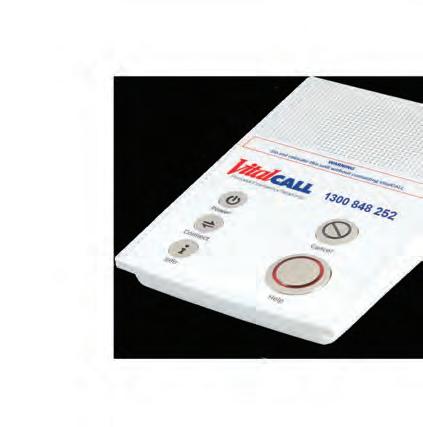

Independent Living Centres (ILCs) are information resource centres, located in every state and territory, that display a range of products and equipment to assist with daily living activities.
They can support your assistive technology choices through information and advice, allied health support, as well as help with grants to get access to a range of technology items including emergency call systems, wheelchairs and scooters, kitchen and bathroom equipment, hoists and transfer aids, vehicle modifications, smart home technology and much more.
Through an online National Equipment Database (NED), you can search over 25,000 assistive technology products Australia-wide, including supplier details and product specifications. Find out more at askned.com.au.
For further information, visit ilcaustralia.org.au or call 1300 885 886.
Any small habits that your parents may not be doing in their usual everyday routine can be considered a sign that a little extra help around the home could be beneficial.
If your parents are avoiding their chores or social events, it may indicate that they are struggling with basic tasks and some extra help at home might be the next step.







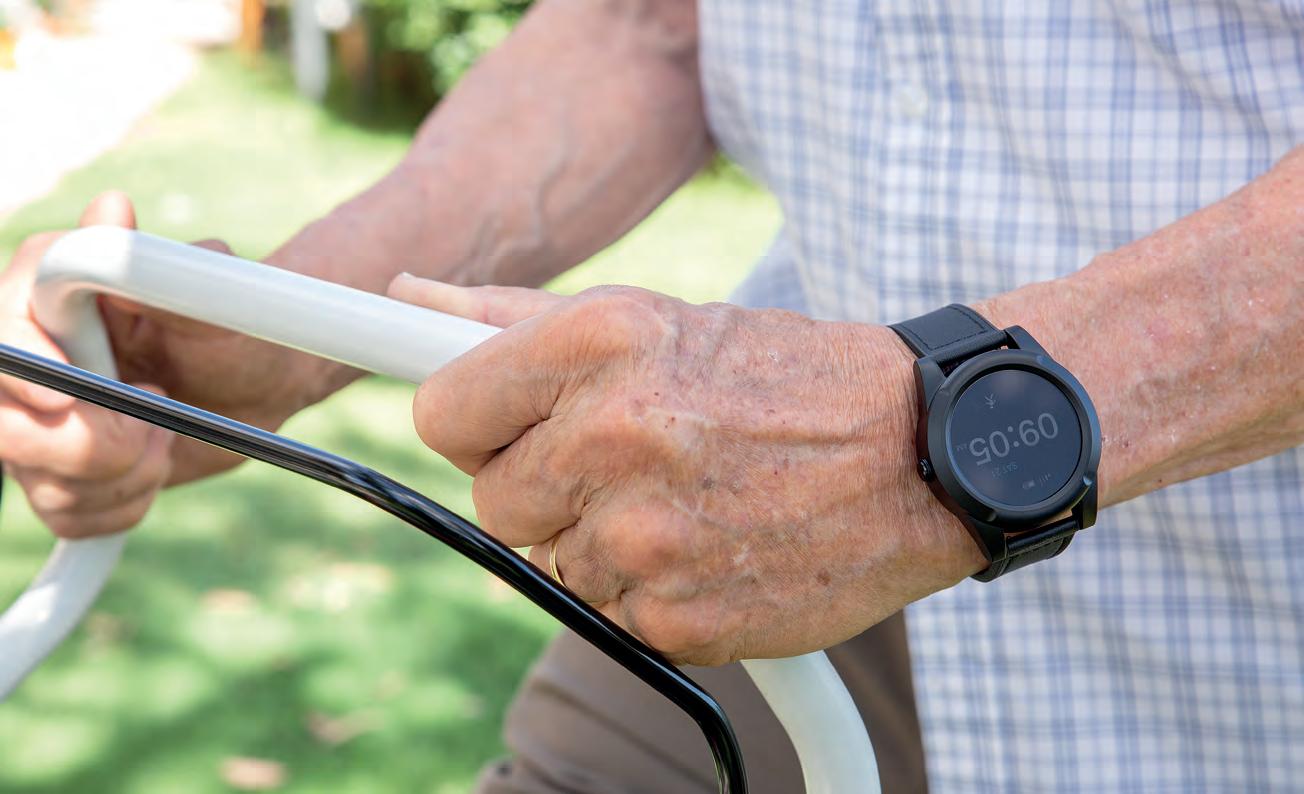










If you are unable to continue living independently at home, you may choose to move into an aged care home. The Australian Government regulates and funds the provision of aged care in Australia.
‘Aged care home’ is the term most commonly used, but you may also find this type of accommodation referred to as nursing home, aged care facility, residential aged care or high- and low-care facility.
Entry into a government-funded aged care home requires approval by an Aged Care Assessment Team (ACAT).
There are also non-government-funded aged care homes which are called supported or assisted living complexes. These do not require an ACAT or government approval.
If you, or someone close to you, feel you are in need of some form of residential care, you can speak with your doctor who can make initial contact with My Aged Care.
You can also contact My Aged Care directly or a representative, like a family member or friend, can do this on your behalf. Call 1800 200 422 to organise an ACAT assessment. See page 98 for information about assessments.

It’s a tough decision leaving your home and changing your lifestyle. So why choose Mareeba Aged Care?

Ten reasons to choose Mareeba:
• Registered nurses are on site 24 hours every day
• Award-winning, personalised care
• Professional, experienced and committed staff


• Private suites in our resort-style facility
• All meals cooked on site in our A-Rated kitchen
• Great social program
Situated in Maclean, just 600m from the sparkling Clarence River. Phone (02) 6645 2966 to find out more.
• Pastoral care
• Dementia specific care
• Palliative care
• More than 40 years supporting our local community.
After being approved by an ACAT for government-funded residential care, you may begin looking for your future home. You can do this yourself or you can hire a placement consultant who can make the job much easier for you.
It is important to know and understand the types of homes available in your area as this may affect the cost and services you receive.
It is also recommended that you visit as many homes as possible, just as you would when buying or renting a house. This will let you gauge the feel and culture of the home.
Aged care homes provide accommodation ranging from single rooms with ensuites to rooms with shared bathroom facilities.
They must provide specified care and services to all residents at no additional cost.
Services that must be provided at no additional charge for all residents who need them, irrespective of their level of care needs, include: basic accommodation related services, such as beds, mattresses, linen, bedside lockers and chairs general laundry and cleaning services maintenance of buildings and grounds utilities, such as electricity and water
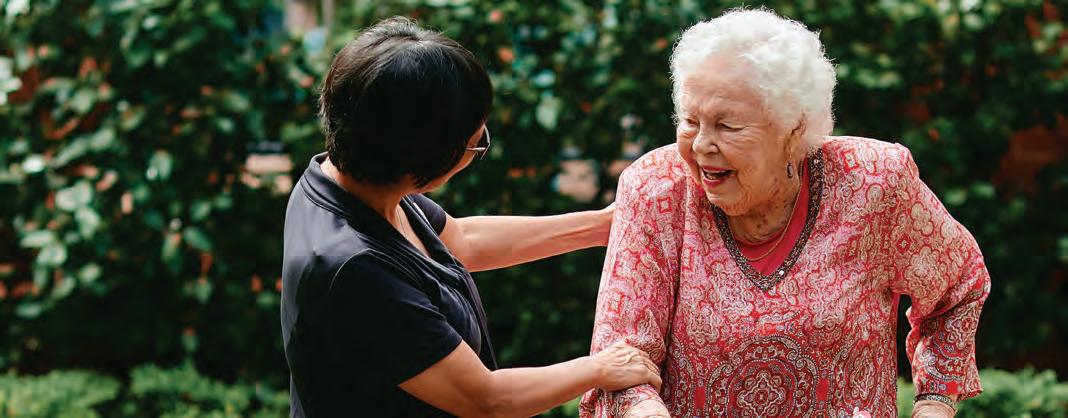





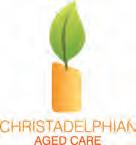

Tucked away in a quiet oasis in Waverley, Charingfield’s small household design offers a unique living experience. With large premium suites that feel like master bedrooms, award-winning outdoor spaces and a choice of home-made meals each day, this is a community with a true sense of home.

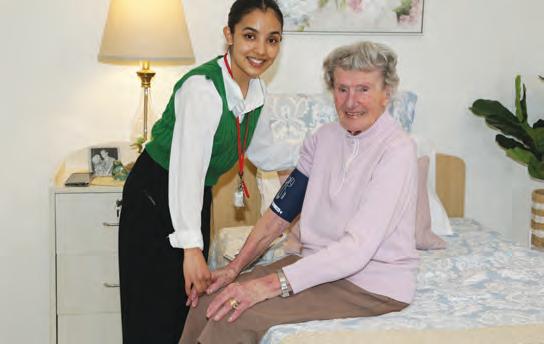
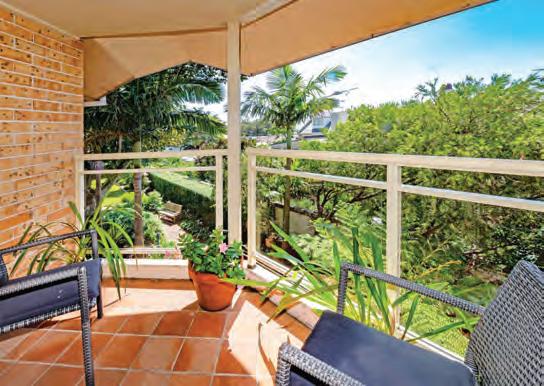

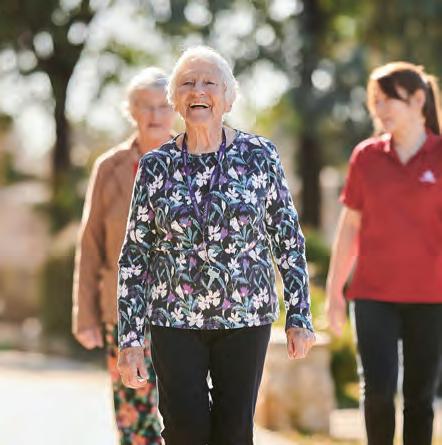

Homes and their services cont’d
the provision of staff continuously on call to provide emergency assistance
assistance with personal care, such as bathing, going to the toilet, eating and dressing assistance with mobility and communication assistance in obtaining specialised therapy services or a health practitioner service meals, including special diets toiletry goods, such as towels, washers, soap and toilet paper support for people with cognitive impairment, like dementia social and recreational activities rehabilitation support
Depending on an individual’s care requirements, additional services may be provided for a fee, such as: goods to assist with toileting and continence aids; therapy services, such as speech therapy, podiatry, occupational, recreational and physiotherapy; registered nurses to assess, plan and manage care, including complex pain or wound management, palliative care programs, special feeding, dialysis and oxygen therapy.
For people with dementia, it is important to ask a home whether it offers separate or secure dementia-specific units or wings.
Some nursing homes may have a secure garden area specifically designed for people with dementia, which is generally attached to the secure dementia unit.
There are homes that cater to a specific cultural and linguistic group or may offer culturally appropriate services. See pages 134–151 for a list of culturally appropriate care homes and services g.

Georges Estate is a remarkable care community that supports residents to live a vibrant and connected life.

• We are excited to launch our world class Wellness Centre, Hydrotherapy Pool and other luxury facilities during early 2024 for our residents and community to enjoy;
• Relax knowing you have 24-hour care and support; and
• Splash out on life’s luxuries with our package of extra services.
For an exclusive tour in person or a virtual tour online, book through our website: www.georgesestate.com.au/bookatour/
Pets can help lessen feelings of loneliness or isolation and some homes are happy to accommodate you and your pet.
Some nursing homes even have live-in pets. You’ll find these C listed in the directory section of this guide, starting on page 152.
All government-funded care homes must meet required accreditation standards and demonstrate continuous improvement with regard to the quality of care and services provided to residents.
The standards that must be met cover areas such as management, staffing, health and personal care, resident lifestyle, living environment, catering, cleaning, continuous improvement and safety and security.
The Aged Care Quality and Safety Commission is responsible for the review of aged care homes.
It monitors residential aged care services to ensure their compliance with the accreditation standards.
You can ask the provider for the accreditation status of the home or access reports and find information about the process on the Commission’s website – agedcarequality.gov.au
The Aged Care Quality Standards measure quality in aged care and have a strong focus on helping consumers to make informed decisions about aged care services.
It gives consumers confidence that aged care providers will work in partnership with them and their families to deliver care that supports their health, wellbeing and quality of life.
The following Quality Standards will remain in effect until 2024:
Consumer dignity and choice
Ongoing assessment and planning with consumers
Personal care and clinical care
Services and supports for daily living Organisation’s service environment
Feedback and complaints
Human resources
Organisational governance
Each of the standards looks at three key aspects: What is the outcome for the consumer?
What are the expectations of the organisation?
What are the organisational requirements to show that the standard has been met?
This partnership between the provider and consumer needs to work in order for the eight areas to succeed.
All government-funded aged care homes and home care services are measured against these standards, and organisations must be able to provide evidence of their compliance and performance with the Quality Standards. The Strengthened Aged Care Quality Standards will take effect from when the new Aged Care Act is introduced.
Exceptional care, tailored to your needs. Discover living with real care at one of our welcoming Montefiore Residential Care campuses.
Private ensuite rooms set in beautiful grounds, quality dining and wide-ranging activities, together with award-winning clinical & allied health services. Accommodation ranges from low-level care to high care needs & specialised dementia care.
Leading aged care across Sydney: Randwick Woollahra Hunters Hill




Did you know that Help at Home by Montefiore provides personalised and flexible Home Care services that allow you to continue to live independently at home?
Help at Home by Montefiore is an industry-leading home care provider offering care packages for seniors, ranging from social & emotional support to domestic, clinical and allied health assistance.
With government subsidised home packages, a tailored and balanced approach to ageing & wellbeing has never been easier to enjoy.
Supporting the Aged Care Quality Standards is a single Charter of Aged Care Rights, protecting the rights of consumers receiving aged care services and their right to be properly looked after, treated well and given high-quality care and services.
All aged care providers have to provide a personally signed copy of the Charter of Rights to every one of their residents or care recipients.
The Charter covers 14 fundamental protections stating all older Australians receiving any type of government-funded aged care supports have the right to:
1. Safe and high-quality care and services;
2. be treated with dignity and respect;
3. have your identity, culture and diversity valued and supported;
4. live without abuse and neglect;
5. be informed about your care and services in a way you understand;
6. access all information about yourself, including information about your rights, care and services;
7. have control over and make choices about your care and personal and social life, including where the choices involve personal risk;
8. have control over, and make decisions about, the personal aspects of your daily life, financial affairs and possessions;
9. your independence;
10. be listened to and understood;
11. have a person of your choice, including an aged care advocate, support you or speak on your behalf;
12. complain free from reprisal and to have your complaints dealt with fairly and promptly;
13. personal privacy and to have your personal information protected;
14. exercise your rights without it adversely affecting the way you are treated.
You or your representative will be asked to sign the Charter to acknowledge that your provider has given you information about your rights in relation to the aged care service under the Charter.
As a consumer, you have the option of signing the Charter of Aged Care Rights, however, even if you choose not to sign the document you can still access care and services.
If you have concerns or are unhappy about the standard of care you are receiving, you or your representatives are strongly encouraged to firstly take all complaints to the facility management for resolution.
It’s always best to address concerns rather than leaving it to escalate. If you don’t feel comfortable to deal with it yourself, you can ask an advocacy service to help you.
If the matter is not resolved, you can then make complaints to the Aged Care Quality and Safety Commission on 1800 951 822 or visit agedcarequality.gov.au
Anyone can make a complaint about anything that may constitute a breach of the service provider’s responsibilities to past or present residents.

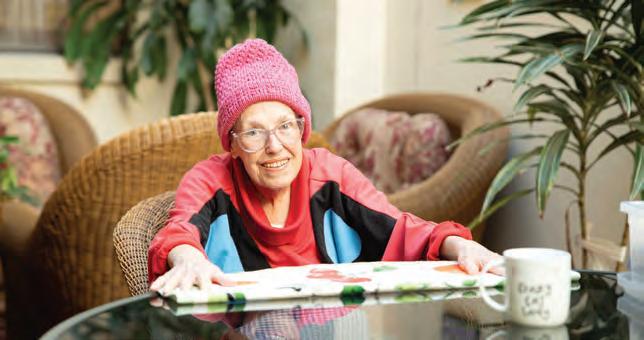
Columbia Aged Care is an experienced privately owned family business which means we are agile and adaptive to the changing requirements of our sector, to meet the evolving and diverse requirements of both residents and staff. We believe in residents ‘living well your way’, and ensure the highest standards of care and skills from our amazing staff. We have facilities located in metropolitan Sydney at Chatswood and Strathfield, and in rural NSW at Oberon. We offer a range of rooms and welcome RAD/ DAP/combined payments, as well as welcoming those residents deemed


Chatswood - 02 8644 1400
Strathfield - 02 9764 7800
Oberon - 02 6339 1000
concessional. We are here to serve our community and committed to service excellence.
At Columbia our approach to care is individual, not institutional, driven by individual wants and needs, Columbia provides the invaluablespace for people to explore, express and experience wellbeing on their terms. We are a service provider in the aged care industry, providing modern and progressive ways for people to live and work in aged care
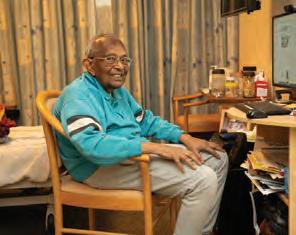
At Columbia, we believe your twilight years should be lived in the comfort, connection and care that is unique to your needs and your lifestyle. Through our progressive tailored care, our dedicated and specialist staff, our contemporary living spaces and lifestyle services enable you to live well your way.



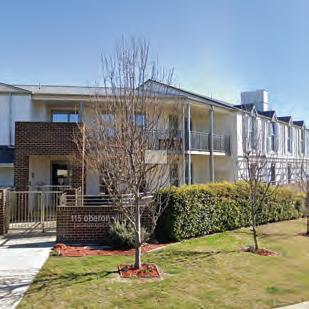

02 8644 1400 02 9764 7800 02 6339 1000
columbia@cnh.com.au www.columbiaagedcare.com.au


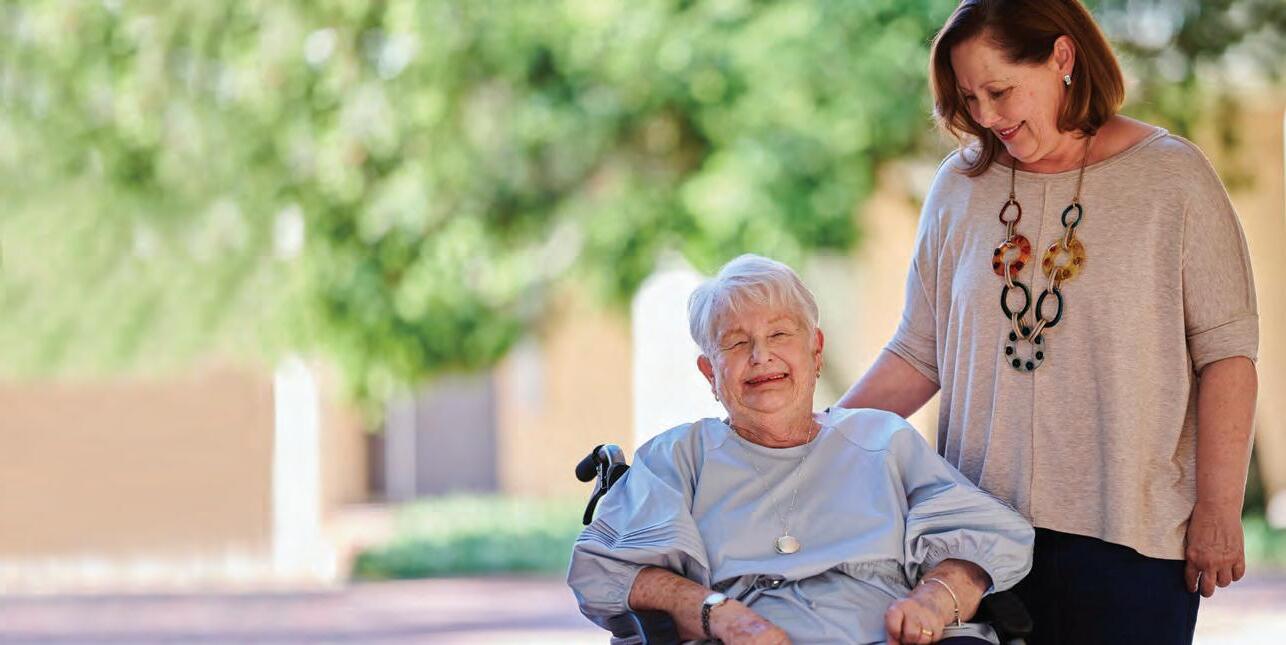
Aspire Aged Care by LDK, co-located in Greenway Views, is a first-of-its-kind alternative to traditional aged care. While we offer the same level of care as a nursing home, the built form and lifestyle of our villages differ vastly. We’re building places our residents can call home.
Our residents can access all levels of care, including dementia and palliative care, delivered 24/7 in the comfort and privacy of their own home. Our ethos of Love, Decency & Kindness underpins our care offering, and we will support your loved one to live with independence and purpose throughout their ageing journey. The cost of care can be privately or government funded (where eligible) and we have dedicated staff to help residents secure and maximise their funding wherever possible.
The standard of our spacious, self-contained apartments is second to none. It’s a place our residents can make their own home, and we treat it as such. LDK delivers lifestyle for life through our Supported Lifestyle Program, so our residents can live their lives to the fullest. You can be assured your loved one will be supported to enjoy all the activities they love and more in our vibrant and engaged village community.
Our One Move Promise® means once residents move into an LDK village, they will be cared for - for life, and never have to move again. With LDK care staff, onsite, around the clock you always have peace of mind. We’re also committed to bringing couples back together and have done so on multiple occasions, where one partner initially moved into a nursing home and was separated from their loved one.
Experience Aspire Aged Care for yourself. Call us on 1300 535 000 and book your personalised tour today.

There are some places that make you feel comfortable as soon as you arrive, because it’s like coming home. At Australian Unity’s aged care residences, we provide you with high-quality, reliable care that supports your independence and dignity. Our Better Together® service puts your wellbeing first, so you can keep enjoying the life you always have.
To find out more, please visit australianunity.com.au/aged-care or call 1300 160 170 © Australian Unity 2024, 271 Spring St, Melbourne VIC 3000

As soon as you have been approved by an Aged Care Assessment Team (ACAT) for government-funded residential care, you can begin looking for your future home.
You can do this yourself or you can hire a placement consultant to do this for you.
When searching for nursing homes, decide what features are important to you. Are you looking for an extra service facility, a specific cultural environment or a facility with pets?
It is important to know and understand the types of homes that are available in your area because this may affect the cost and services you receive.
It is recommended that you visit as many homes as possible, just as you would when buying or renting a house. This will allow you to get a feel for the culture of the home and its surroundings.
You can also use residential respite as a way of finding out about the quality of care at a nursing home before deciding if the home is a good place for you to move into.
When you have narrowed down which homes would suit your needs and wants, it is best to apply to a number of homes to increase your chances of finding a place quickly.
Nursing homes don’t always have bed vacancies available – it is likely that you will have to wait for a period of time for a bed to be made available.
Some aged care homes may have waiting lists and the length of these varies between homes. If your situation is urgent, please inform the staff at the home.
Generally, bed places are offered to people on the waiting list who have a health priority or have been waiting for a place and have risen to the top of the waiting list.
You can be on as many waiting lists for facilities as you would like, but once you accept a vacancy offer, you will be removed from all other nursing home waiting lists.
If you require a bed urgently, you may not have as much choice with the facility you move into. You may have to accept the first offer that is made to you, no matter if it is your first choice of facility.
Aged care homes can’t predict or know when a vacancy will occur, so it is important to keep in regular contact with the aged care homes to ensure they are aware you are still interested in admission to their home.
If you’ve engaged the services of a placement consultant they will monitor vacancies for you.
Deciding on a home

With more than two decades of caring for communities, we celebrate our residents and help them live their best lives.
Choose from one of our six NSW home locations:
Botany
Fairfield East
Illawong
Kingswood
Pennant Hills
Queanbeyan
Scan to visit our website to learn more or to book a tour.
It is ideal to plan ahead and take the time to choose the facilities that you want to live in. This means no matter who offers you a bed first, you will be satisfied with the placement.
The person in charge at the aged care home will either ring you, your carer or family directly or phone the social worker if you are in hospital, to let you know they have a spot available for you.
You may be asked to make a decision within hours because there are usually other people also waiting.
You or the relevant hospital worker will need to arrange for your transfer to the home as soon as possible.
If you are unable to move into a home straight away, you will be given seven days after you have agreed to accept the place to move in. These seven days are called ‘pre-entry leave’.
From the date of acceptance you may be charged for your care and be eligible to receive financial assistance from the government.
Once your place in the aged care home has been confirmed, you will be provided with two or three important documents which will address all the information and details you need to know. This information should also include the resident agreement, the accommodation agreement or an extra services agreement, if applicable.
It is not acceptable to be charged any fees or be expected to make any donation before you formally accept a place in an aged care home.
When you enter Nazareth Care, you enter a unique world of warmth and belonging. We have been providing residential aged care to the community for over one hundred years. Driven by our core values, we understand the needs of the elderly – to be respected, treated with dignity and cared for with comfort and love.
Our experienced team deliver exceptional care to all our residents and support to their families. We provide consistency of care, with a team focus to support care needs, lifestyle and wellbeing.
Our residential aged care homes offer:
• Permanent and respite care
• Individual care plans, unique to the needs of each resident
• Clinical, social, emotional & spiritual support
• Dedicated memory support unit
• Mass held daily & regular services for other denominations
• Our sisters are available to provide pastoral care

Continuing Lansdowne Gardens’ tradition of providing excellence in care and services, our brand new Lansdowne Gardens on Wycombe Residence in Neutral Bay offers:
• 24/7 registered nursing care with highly experienced and caring staff
• Extra services, dementia care, palliative care and respite care
• Luxurious private suites with ensuites, some with Sydney Harbour or City Skyline views
• Heritage restored building
• Fresh à la carte meals
• Life enriching activities
• Hotel-like interior design with intimate lounge and dining areas
• Café, Hair & Beauty Salon and Gym on-site
• Multi-award-winning aged care provider



your
lansdownegardens.com.au
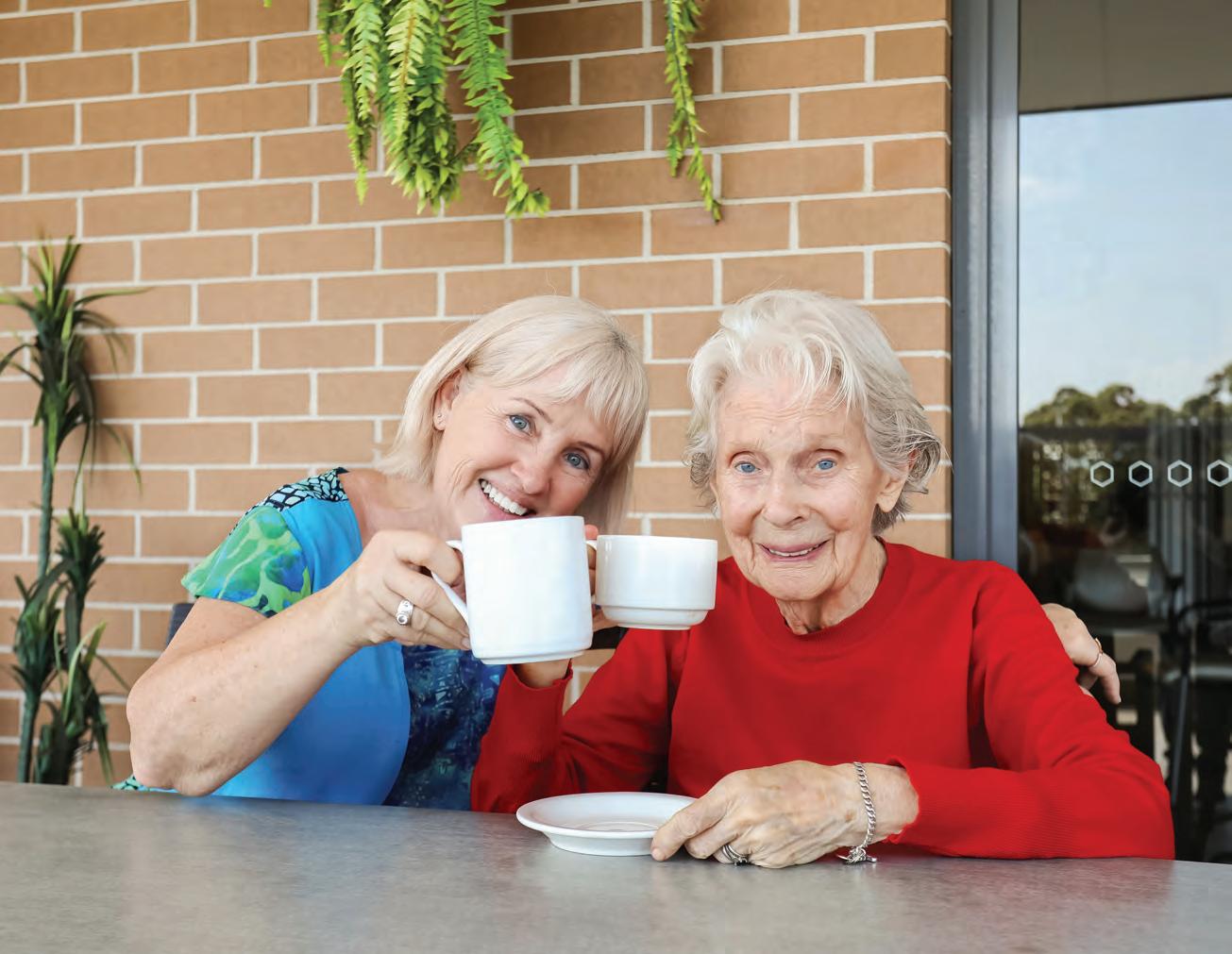

There are many things to consider when deciding which aged care home will best suit your needs.
Deciding to move into a home can be a really big decision, so you want to make sure you choose a nursing home that not only suits your needs, but also feels like home.
Making a list of your personal preferences and requirements can make it easier to shortlist aged care facilities. This list could include the care you require and lifestyle options.
One of the best ways to gauge the environment and atmosphere of a nursing home is by visiting it.
Contact the home you are considering to organise a tour of the facility, in most cases, your family should be able to come with you.
By visiting the facility, you will be able to assess whether the nursing home meets your needs and if it is a place you would be happy to live.
Any questions you have can be answered by your tour guide from the aged care home.
Additionally, you can have a talk with the site manager to understand how the aged care facility runs and have all your questions answered.
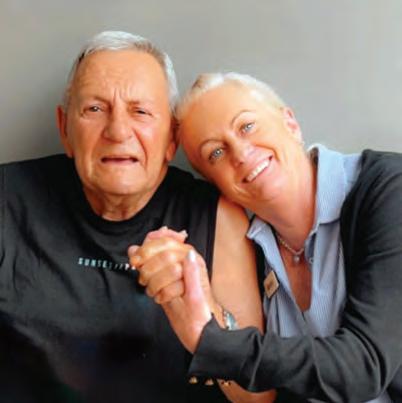

At Moran Aged Care we work in partnership with you, your family, GP and other allied health professionals to enable you to make the best of every day.
We offer:
• personalised care, lifestyle and wellness programs
• professional clinical care with registered nurses on duty 24/7
• dementia support programs
• a homely environment where you’ll feel like you belong
• an onsite chef preparing fresh, nutritious meals
To find out more call us for a chat on 1300 544 944


The following is a brief checklist of areas you should consider before deciding to move in:
Is the home clean, fresh and in good repair?
Are the staff warm and friendly? You want to be able to feel at ease and comfortable communicating with the staff.
How many staff work at the home and what is the night time ratio of staff to residents?
Is the home secure, particularly at night?
Are there keypad locks on the doors or are CCTV cameras installed?
Does the home have the provision for you to age in place and remain as your care needs increase?
Do they offer single rooms with ensuite?
If you are looking to move into a home with your spouse, is this provision available?
Are clothes laundered on- or off-site?
Does the room have access to a private phone line, internet connection or NBN, or pay-TV?
Are the floor coverings clean and fresh, or is there an odour throughout the home?
Is the room temperature comfortable for you and are you able to control your own room temperature?
What personal items and furnishings can you bring into the home, and what provisions are there for storage of personal items?
Inspect the kitchen and find out if meals are cooked on-site or are delivered.
Are the meals flexible and will they meet your special requirements?
Are there spaces for you to meet with family and friends and to celebrate special events?
If you like pets, find out if the home is pet-friendly and whether they have pets at the home or a visiting pet program.
Be sure to enquire about the range of activities available and entertainment programs, as these are vital for your ongoing wellbeing.
Beneficial services and amenities could include:
Outdoor areas or gardens, if relevant, check whether they are secure
A hairdressing salon or day spa
An on-site café
A chapel or provision for church services
Gymnasium
Allied health services
It is important to have all your queries answered, as it can really help you gauge whether a facility is the right fit for you.
The process of moving in is often referred to as the ‘admission process’ and starts with an initial introduction, orientation and assessment.
During the assessment, a staff member will gather information including medical conditions, family history, food preferences, social and recreational likes, dislikes and interests.
This information will be used to create a care plan. The care plan is updated regularly and you can request to see a copy at any time.
The care plan will be an overview of your care needs, wishes and outcomes you want to achieve while living in the facility.
Family members and carers are welcome to assist in identifying social and care needs.
Your aged care home will already have most of the furniture and furnishings, such as beds, chairs, wardrobe, curtains and floor coverings, so it may be helpful to directly ask the home what you can bring with you. You can find an overview of what to consider when moving into a home on page 84.
Mercy Health is a trusted, leading Catholic provider of health, aged and community services with 30 residential aged care homes across Australia.
We provide the places and choices to support people to age well, and lead healthy and fulfilling lives. We do so in the spirit of the Sisters of Mercy, who have always sought to care for the whole person – body, mind and soul.
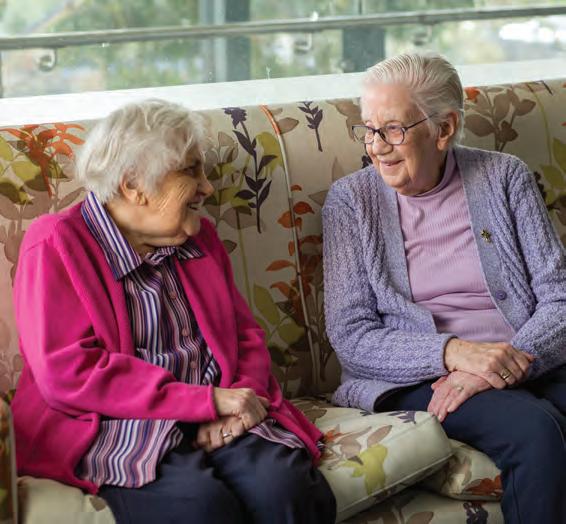
Having personal belongings around you may help you to feel at home in your new environment.
Some people may like to bring family photographs, their favourite films, books, music or other treasured items.
It is important to ensure that personal clothing is properly labelled. Most nursing homes will launder your clothing either on-site or through a laundry service.
Bring enough clothing to allow for items being washed as it might take a couple of days before clean laundry is returned to you.
Due to the the large volume of washing, nursing home laundries often use commercial washing and drying machines, so make sure your clothes are machine washable and labelled with your full name.
Residents with higher-level care needs, who require products for the management of continence, will have these provided by the aged care home. However, other residents may be required to purchase these items.
Residents can bring their preferred electrical and electronic items with them. Each item will be checked, tested and tagged by the home prior to use.
It is quite common to have space available for some items like a favourite chair, small table, dresser and bedside light, but it’s best to check with the aged care home regarding what and how many items you can bring.
It is important that you bring all prescription medication you’re currently taking with you on admission. Care staff will manage and administer the medication to ensure safe and quality use of your medicines.
Topical creams, herbal remedies, vitamins and elixirs that are non-prescription items should be declared to the staff.
The aged care home supplies the basic necessities such as toothpaste, soap and toilet tissue. Specific items or particular brands need to be purchased at your own expense.
Wheelchairs, scooters, walking frames and other mobility aids will be assessed to ensure that these are appropriate to your current situation. The maintenance and upkeep of scooters and wheelchairs is your responsibility.
Once you have been offered a place in an aged care home, it is also important to organise your medical matters and who you will need to tell about your move.
If you have not done so already, this is a good time to talk to your loved ones about your wishes for your future medical care.
Writing your wishes in a letter or statement can help guide health professionals and those close to you if you become seriously ill or injured and are unable to make decisions about your own care.
This is called an Advance Care Directive and it should include clear and specific details about treatments you would accept or refuse.
Keep your Advance Care Directive in a place that is easily accessible and share the document with your doctor and loved ones.
It is recommended that you tell your family, carer, friends, neighbours, community centre or council and any health professionals, such as your doctor or pharmacist, that you’re leaving your home to enter an aged care home.
If you need to change doctors, you can ask to have your medical history sent to your new doctor.
It is also a good idea to keep track of any health professionals you see and make a note of your current medical treatments and medication so you

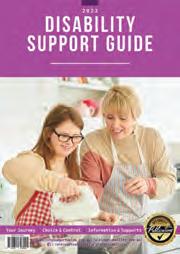
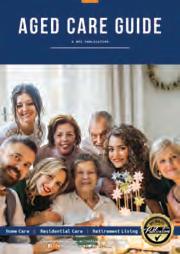









Moving house is often stressful and it may take time to settle into your new environment. Here’s what you can expect from life in a nursing home:
If you are thinking about moving into a nursing home, you’re likely to experience a massive range of emotions, varying from relief and excitement to uncertainty and apprehension.
Living in a nursing home will be different and it may take a little bit for you to settle into your new life.
There may be some ‘common’ areas that are shared with other residents, such as the dining room and lounge room, but your room is your own.
Nursing homes positively encourage you to bring personal items for your room, such as pictures, photos, ornaments, furniture throws and smaller pieces of furniture.
Find out prior to moving what extra personal belongings you can bring.
The chances are you’ve moved from living in a house on your own or with a partner, so you’ll need to get used to a few more people being around. However, the choice is yours as to how social you want to be.



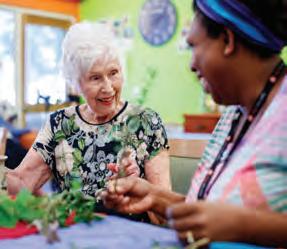
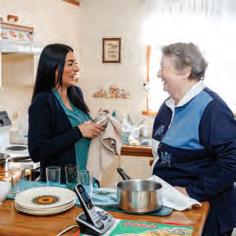

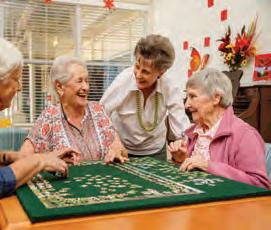







While your cherished ones may require additional assistance with their daily routines, we firmly believe that this shouldn't compromise the quality of their lives. At Hardi, we are committed to the notion that embracing and relishing life remains paramount, irrespective of age. Whether it involves savoring a warm breakfast each morning or partaking in frequent outings aboard the Hardi bus, our dedicated team strives to ensure that each day is filled with moments of joy and fulfillment.



You can choose to be social in the communal areas and spend time with other residents or simply find a quiet corner or remain in your room to enjoy your own company.
Many nursing homes have strong links to the local community. You can choose to get involved with activities, such as meeting local school children or other people from other groups.
As well as adjusting to new people, there may be some changes to your daily routines, such as slightly different meal and shower times.
Nursing homes offer many social aspects and multiple activities, such as exercise classes, religious services/classes, bingo, arts and crafts, concerts and outings. It doesn’t mean you have to take part – you still decide what you want to do.
You can continue to enjoy your usual activities outside the nursing home, such as attending any regular classes or meeting friends in your favourite coffee shop.
Whether it’s reading or watching TV in your room, chatting with other residents or going to the cinema with friends, the choice of how you spend your time is yours.
Some homes offer rooms for couples in the form of adjoining rooms, double rooms or even a single unit for couples. This means couples can continue living together even if they have different care and support needs.
While most homes do not allow residents to have their personal pets, many homes now have ‘live-in’ animals such as cats, rabbits, dogs and birds. Some nursing homes also arrange for a variety of animals to visit regularly.
Your family and friends are always encouraged to visit and depending on your health, you will be able to come and go as you please.
Visit friends, enjoy family celebrations, go shopping and even go on holiday.
Many nursing homes also have special areas available for private functions. This means you can still hold special events for family and friends in your nursing home.
When you live in an aged care home, you can still go on a holiday
You can leave the aged care home for up to 52 nights in a financial year, which is called ‘social leave’.
The government will continue to pay subsidies on your behalf to the aged care home and you still have to pay your daily fees and income tested fees.
If you are away for longer than 52 nights, the government will stop paying subsidies and you may be asked to pay any owing amounts to the aged care home.
The 52-night rule can’t be extended.
Two residents of not-for-profit independent living community, James Milson Village share their thoughts on retirement living as North Sydney locals
Ruth, what made you take the leap and move to James Milson Village?
My sister had been living at JMV for many years and had been extremely happy here. The opportunity arose and I was shown a unit I really liked. At the time I had a property that was becoming cumbersome to manage – this definitely made life easier.
What do you most enjoy about village life?
I enjoy the atmosphere of being at the edge of a busy city, yet with access to public transport. I’m President of the local resident’s committee, and we have classes together, outings and social soirees of an evening. I’m also part of a group of women, we call ourselves ‘La Belle Dame’. We meet at each other’s houses for a potluck dinner, go walking, and sit and discuss the world. The whole atmosphere at JMV of really working together to create a vibrant community is an exciting era that’s happening now.
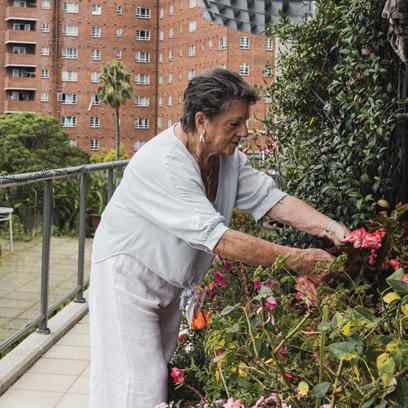
What does your day-to-day look like?
I love archaeology so I study that a bit. I also try and get out into the wider community on my walks – I’ve met a lot of people around the area who’ve become good friends.
How does being here enrich your life?
Mostly convenience. It is wonderful being so close to the city and the beautiful areas around the lower North Shore. We are close to the most beautiful harbour in the world and there are many activities that occur on its foreshores. There’s a lovely café society all around us with beautiful little coffee shops. We live a very enriched and beautiful lifestyle, as simple or as complicated as you want it to be.
Ken, what attracted you to JMV initially?
My wife and I used to live at Huntley’s Cove and realised we needed to downsize into a retirement village. We looked at 11 places and my wife Frances liked JMV the best. Especially the area and availability of care. After about four years of living in independent living Frances needed to move into the residential aged care building for extra support. Being so close enabled me to visit her every day without having to travel. Some days I would take her out for a drive in the car.
What do you enjoy about living here now?
We have a lovely outlook of the water and park. I like sitting in the park and watching the world go by. We’re also walking distance to Milson’s Point and its cafes and shops. JMV has given me a lot of great friendships with other

residents in the Village who care and look out for one another. Now that I’ve stopped driving, many residents offer to take me places.
Do you get out into the community much?
I visit people in JMV’s residential care – especially those who used to live in the ILU. I also partake in the monthly BBQ, movie night, musical performances and happy hour that’s offered to residents.
Do you feel supported at JMV?
The service provided by management staff is fantastic. I couldn’t ask for more, they are always helpful and friendly, whether it be for care, general services or maintenance. I feel very lucky and supported.

Independent living with 24-hour care and support, centrally located at Milson’s Point
• Social events and activities
• In-home support and wellness services
• Maintenance, gardening and IT support services
• Onsite security
• Access to gym and physio services
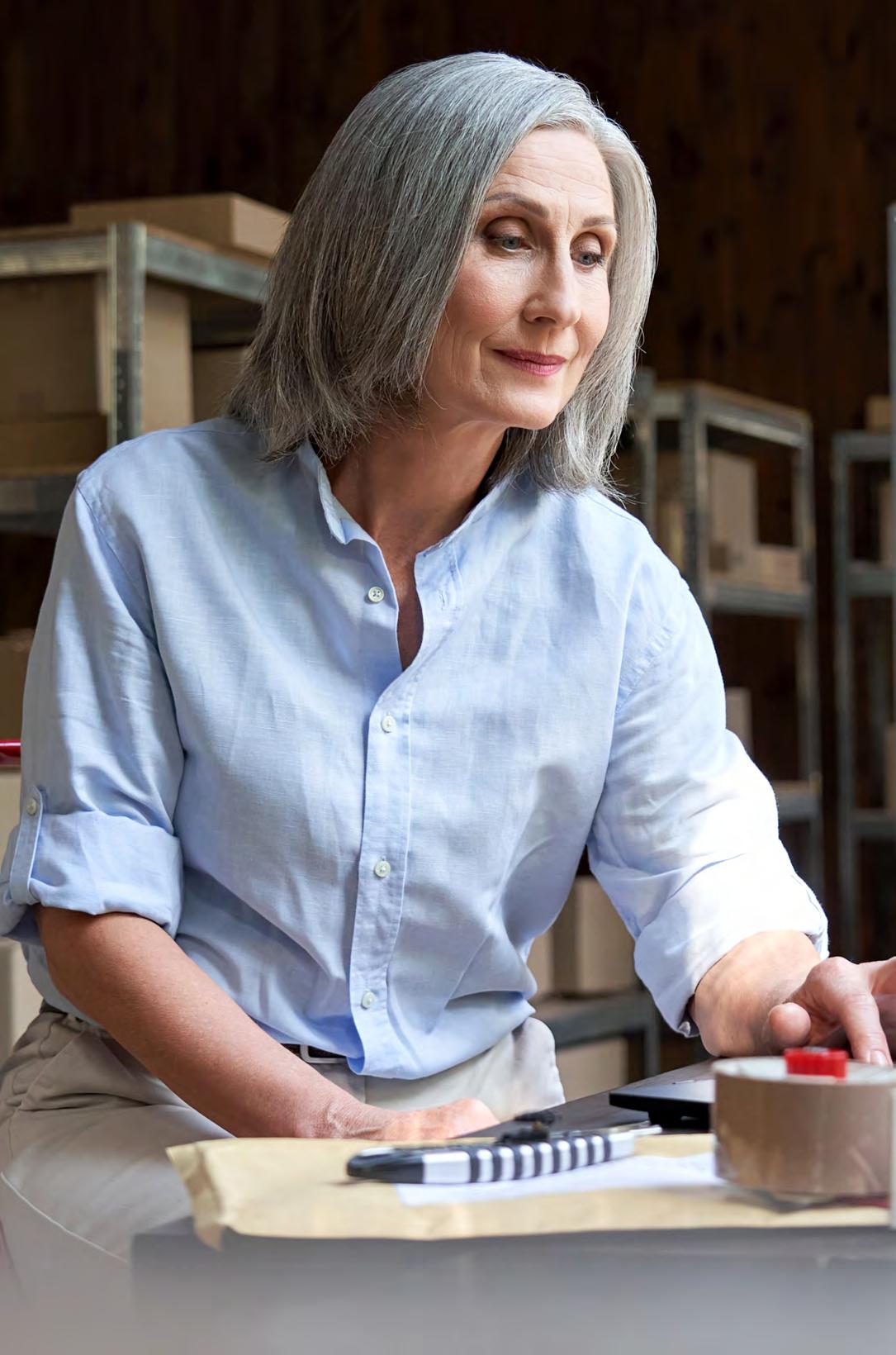
There are a few things to organise before being ready for aged care services. Make a list of what support you’re currently getting, what you feel you need help with and key areas that are important to you in a provider that best align with your wishes and interests.
If you’re wanting to access government-funded supports, the first step in starting your aged care journey is to register with My Aged Care. This can be done online or via a phone call to the My Aged Care contact centre on 1800 200 422.
An operator will ask you a number of questions about your personal circumstances and care needs and set up a central client record.
Examples of the questions you may be asked are:
Are you currently receiving aged care services?
Are you getting support from a carer or family member?
Can you prepare your own meals and do housework?
Do you need assistance taking a shower or bath and do you need help getting dressed?
Are there any health concerns or did you have a recent fall?
Do you feel lonely or isolated?
Are there any safety risks in the home?
The aim of this screening is to figure out what needs and support you require and whether you are eligible for a further assessment in person.
Following this conversation you will be contacted by someone from either the Regional Assessment Service (RAS) or a local Aged Care Assessment Team (ACAT) for an assessment to determine your abilities and what level of care you require.
Here is a list of documents and information you should prepare for the assessment:
Medicare card and a form of identification, for instance, Department of Veterans’ Affairs (DVA) card, driver’s license, passport or healthcare card
Notes or referrals from your doctor
Information about previous home or aged care services you have received
Details about support you receive from family, friends or the community
Questions and information about aged care that you wish to discuss with the assessor, so you have a better understanding about services
Contact details of your doctor and any other health professionals you see regularly
Translator or Auslan interpreter if needed
Support person to be present for the assessment if you want Other factors in preparing ahead of starting aged care services include organising your finances and getting advice about how you can pay for any support at home or a place in an aged care facility. It’s also worth making sure you collect medical records, have details about medication handy, have an Advance Care Directive in place and ensure your will is up to date.
When trying to decide which aged care home or service best suits your needs, a checklist is an excellent evaluation method.
Take note of your first impressions when you first call the nursing home or service. Are staff friendly and accommodating to answering your questions? When considering a nursing home, ask to tour the facility and speak to people already living in the care home. You may know someone who lives there or has a loved one at the facility – ask them about their experience. You may want to consider a short-term respite stay at the home. That way, you can experience what it is like to live in the facility before you make the final decision as to whether it is a place you would like to move into permanently.
Below are a number of questions to ask the provider when assessing the suitability of an aged care home, supported living facility or other service, to assist you in making your decision.
Is the provider for-profit or not-for-profit, church or charity based?
Do the owners/directors of the company have a health and/or aged care background?
When was the last time a complaint was made to the provider, what about and how was it dealt with?
Are residents and their families encouraged to have input into services offered and the quality of care?
Does the home look and smell fresh and appear sanitary?
Are the carpets and floor coverings clean?
Is the inside temperature comfortable?
Does the home meet safety regulations?
Is there good and clear signage throughout the facility?
Are there secure and interesting outdoor areas?
Are there spaces and activities to support people living with special needs, such as dementia?
Do the residents appear clean and neat?
Can you stay in the facility if your needs change?
Are the staff friendly and welcoming?
Do staff provide clear answers to your questions?
What is the mood of interaction between staff and residents?
Do staff look like they take their time with residents to give them personal attention?
What is the ratio of nurses/care workers to residents on weekdays, weekends and at night-time?
Is it a single or shared room?
Is the room you’re shown the actual room you’ll be moving into or is it for display only?
Does the room have an ensuite or are the bathrooms shared?
Are there provisions for married couples?
How is the room allocation determined?
Is there access to a private phone line, internet connection or pay-TV?
How is the heating/cooling controlled?
What personal effects and furnishings can you bring to the home?
Are there provisions for safe storage of personal items?
Are there easily accessible alarm buttons in the room and how many?
Are staff respecting residents’ privacy – do they knock before entering a resident’s room?
Are there areas for families and friends to meet and celebrate special events?
Can family and friends take part in activities?
Are meals cooked on-site or delivered?
Are menus flexible and able to meet special requirements?
What types of individual and group activities are offered and how often?
Are there activities that include cultural and spiritual preferences?
Are there any activities organised together with the local community?
What special events are celebrated?
Does the facility have pets on-site or offer a pet visitation program?
Is there a GP on-site or can you continue to see a physician of your choice?
How do staff administer and monitor residents’ medicine intake?
How are medical emergencies handled?
What other services, such as speech therapy and occupational therapy, are available on-site?
Is there a dietitian or nutritionist as part of the care team?
Does the facility have a wellness program?
How does the facility deal with end-of-life/palliative care?
Are any provisions, such as continence pads, rationed?
What are my payment options?
What is the breakdown of the payable fees?
Can you negotiate on the fees and how they are paid?
Aged care homes charge a range of fees to cover the cost of care, accommodation and living expenses and these can vary enormously between facilities, from resident to resident.
Understanding the rules and seeking specialist advice from an aged care financial advisor to minimise costs is recommended. See page 91 for more information on financial advice.
Both your income and financial assets affect your entitlements. The income and asset tests are combined, to ensure a consistent fees policy. This will address the issue of asset-rich, income-poor residents paying for all of their accommodation and nothing for care/the income-rich, assetpoor residents paying for their care, but not for accommodation.
The cost of care is divided into three parts – daily care fees, accommodation payments and a means-tested care fee.
As a resident in an aged care home you are asked to pay a daily fee as a contribution towards the cost of care and living expenses, such as meals and refreshments, cleaning, laundry, heating and cooling, as well as social activities.
In addition, the daily fee contributes to the costs for personal care, including assistance with daily living such as bathing, dressing and toileting, assistance with mobility aids, therapy and certain medical and pharmaceutical services.
The maximum basic daily fee for all permanent residents who enter an aged care home is 85 percent of the maximum base rate of the Age Pension for a single person.
This is the same amount you will be charged if you’re staying in a nursing home for a temporary stay as a respite resident. It is generally adjusted each March and September at the same time as the Age Pension.
As of March 2024, the maximum basic daily fee is $61.96 per day for all full pensioners and some part pensioners.
Depending on your income and level of care, you may also be asked to pay an income-tested fee as part of the daily fees. However, this does not apply to respite residents in aged care.
If you do receive income other than your pension, you will be assessed by Centrelink or Veterans’ Affairs if you are a veteran, to determine how much extra you can be asked to pay as an income-tested fee.
If you were a permanent resident in an aged care home, prior to 20 March 2008, you will continue to be subject to the pre 20 March 2008 rules governing the basic daily fee unless you are discharged from permanent aged care for a continuous 28 days.
Accommodation payments are different from daily care fees. They are used by the aged care home as capital funding to improve the quality of the buildings and services they provide.
Not everyone pays an accommodation payment. It depends on the value of your assets and income at the time of entry into care.
If you have more than $59,500 in assets and income, you can be asked to pay an accommodation payment, but you must be left with at least $59,500 in assets after your payment (rates as at March 2024).
The means-tested care fee is an extra contribution on top of the other residential aged care payments, and the amount can differ from person to person.
The means-tested care fee will incorporate you financial assets and your income, and then determine how much you will be contributing to the cost of your personal and clinical care services.
This contribution amount can fluctuate depending on if your income or assets change.
There are annual and lifetime caps on the means-tested care fee. There an annual cap of $33,309.29 that will apply to your means-tested contribution to your care costs, together with a lifetime cap of $79,942.44 (March 2024 rates).
Depending on your personal financial situation, you may not have to pay this contribution towards the cost of your care.
If you can afford to, you will pay a basic fee of up to 85 percent of the maximum base rate of the Age Pension for a single person, a means-tested (your income and assets combined) contribution to your accommodation, and a means-tested contribution to your care.
The maximum means-tested contribution will be allocated toward your accommodation payment until the full cost is paid and then toward your care fee.
Any income-tested contributions you may have made as a recipient of Home Care Packages will be taken into account in calculating lifetime care expenditure.
The family home will continue to be exempt from the aged care assets test if occupied by a spouse or other protected person.
Even when the value of your former home is included as an assessable asset, its value will be capped at $201,231.20 (March 2024 prices). It is only counted in determining your ability to pay for your accommodation.
When moving into an aged care home, if you have the capacity to contribute to the cost of your accommodation, you can now choose how you pay for it.
You have a choice of three options, however, if you start with one option and change your mind, you have up to 28 days from the date you move into the care home to decide how you wish to pay.
This is a single payment made to the care home and works similar to an interest-free loan.
The balance of the deposit is guaranteed to be refunded when you leave the home, but only after any amounts which have been used to pay for agreed services have been deducted.
In this option, you pay a periodic payment (usually on a monthly basis) for your accommodation; it is calculated based on the daily rate of the RAD.
To calculate the daily payment equivalent of the refundable deposit, the RAD is multiplied by the maximum permissible interest rate (MPIR) and divided by 365 days.
The MPIR is set by the government and is updated every three months –as of 1 April 2024, it is 8.34 percent.
The daily payment amount must be equivalent to the refundable deposit amount and is the maximum you can be charged per day for the room.
These periodical payments are not refunded when you leave the home.
If you wish, you can also choose to pay a combination of both a RAD and a DAP. For example, let’s assume the RAD is $400,000 but you want to only pay half of a deposit ($200,000) and the other as a DAP.
Use this formula to calculate the DAP:
(Balance of price x MPIR) / 365 = ($400,000 - $200,000) x 8.34% / 365 = $45.69 per day (MPIR from 1 April 2024).
Or use our easy to use fee estimator calculator on agedcareguide.com.au/nursing-home-fee-estimator
For further information, call My Aged Care on 1800 200 422 or Centrelink on 13 23 00, or discuss with a placement consultant or financial advisor.
Disclaimer - This information is a summary of the main provisions relating to aged care costs and while care has been taken to ensure that it is current on date of publication, it should not be taken as an authoritative source. Please phone 1800 200 422 for more complete, up-to-date information.
Many older Australians take up an aged care bed within one month of being assessed for residential aged care. This is often triggered by an unexpected event, such as a fall or a decline in health.
The financial decisions surrounding aged care may be overwhelming, due to the different funding mechanisms that apply.
Reoccurring questions such as ‘what are your options?’, ‘what will it cost?’, ‘will you keep the house and rent it out or should it be sold?’ and ‘what will happen to your Age Pension?’ can require urgent answers during what is often the busiest time of your life.
These can be further complicated by the impact that a move to care has in terms of the pension paid by Centrelink and the fact that the family home is treated differently for pension purposes than for aged care purposes.
Throw in the payment/deposit system – refundable accommodation deposit (RAD) or a daily accommodation payment (DAP) – negotiating various fees with a facility, filling in Centrelink forms and things can quickly become overwhelming.
Just getting a basic understanding of what forms you need to complete, when to complete them, and where to send them can be difficult.
By understanding the rules and being able to apply them to individual circumstances, financial advisors are able to save their clients thousands of dollars.
Decide to sell the home before understanding the Age Pension and aged care fee impact.
Choose how you will pay the aged care fees before understanding all of your options.
Make untested or inaccurate assumptions about your ability to meet the aged care costs.
Allow or enable the dominant family member to influence the decisions.
Incorrectly assume that all decisions must be made before you can get the care needed.
Instead, seek help from a certified financial planner who is experienced in aged care.
• Guide you through the process.
• Help you to understand the range of care options.
• Explain the fees and how they are calculated.
• Support you to create effective solutions, so your family can worry less.
• We help you identify what’s important and achieve your goals and objectives.
• We discuss the financial implications of keeping or selling the home.
• Review the potential for strategies to maximise the Age Pension, minimise aged care fees.
• Review your estate planning needs.
02 6813 0977
info@foundationwplan.com.au foundationwplan.com.au
Level 1, Endeavour


GV Private Wealth is a respected financial advisory firm located in Wollongong, NSW. We specialise in providing expert aged care advice in the Illawarra and Sydney regions. Our commitment also extends beyond these areas, where we offer expert aged care advice solutions to families across NSW and Australia through online mediums.
Our professional services and support include:
• Helping you create a clear plan for aged care, including best strategies to deal with the family home.
• Assisting with family discussions to minimise disputes
• Assisting with evaluating the options and strategies for your accommodation payment
• Helping you identify what’s important to achieve your goals and preferences
• Reviewing your financial situation and helping you evaluate what you can afford
• Developing strategies to optimise your financial position, including Centrelink age pension maximisation.
• Reviewing your estate plan to avoid unintended consequences


We invite you to take advantage of our complimentary, no-obligation initial consultation, designed to align our services with your requirements. At
Private Wealth we offer transparent, pre-agreed fixed fees, providing certainty in achieving your desired financial outcomes.

The best financial strategies and options will depend on your specific circumstances, objectives and situation.
A financial advisor can help you focus on the information and issues that are important to you and your specific financial situation.
While every situation is different, there are some common elements of aged care financial advice which professional consultants often provide to their clients, including:
Strategies to fund accommodation payments
Financial modelling of multiple care options
Review and planning of tax implications
Maximising government pensions
Minimising nursing home fees
Negotiating with aged care facilities
Some important questions you should ask before engaging the services of a financial advisor include:
Do they specialise or have experience with aged care?
What licenses, credentials or other certifications do they have?
Will they provide their advice in ‘plain English’ and in writing?
Will they deal with the Department of Veterans’ Affairs or Centrelink?
How much do they charge?
Is the service a once-off or an ongoing service?
You should be open with your financial advisor about your financial situation and what assets are available, so your advisor can provide the best advice for your situation.
That is why, when choosing a financial advisor, you should also consider their decisions are considerate and measured as opposed to emotional or impulsive and actively listen.

Which option works best for you financially in Aged Care?
RETIREMENT VILLAGE
Which option works best for you financially in a Retirement Village?
Am I able to get additional home care to stay at home longer?
GRANNY FLAT RIGHTS
Do you want to stay at home longer? A Granny Flat Right may be the answer.
Do you know if you’re getting the right amount of pension? Can you get more?



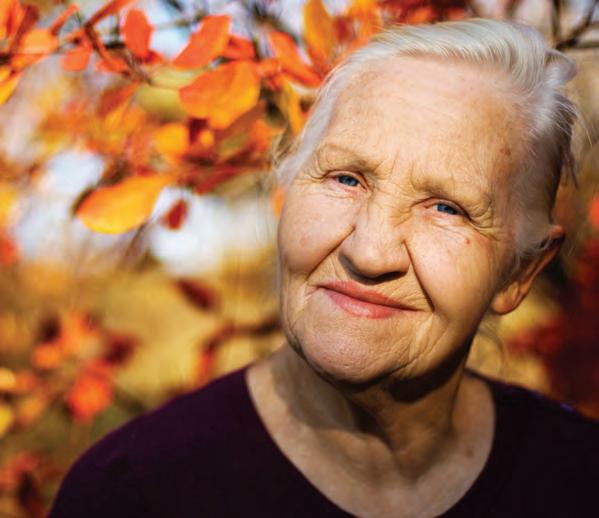
Aged Care Financial Advisers (NSW)(ACFA) have the industry knowledge and understanding of the complex financial issues surrounding aged care to support individuals and families navigate through the system. We listen to your needs, answer your questions and provide comprehensive information.
Get the peace of mind you deserve. Let us guide you in your Aged Care journey and help you choose an option that best suits your unique circumstances. Our fixed fee service includes: 4 Strategy options
4 Assistance with Government agency paperwork Transitioning
At ACFA, our inclusive and proactive approach can show you how best to afford your preferred Aged Care service or facility and look after your family.



Fees will vary and it pays to contact a number of experts for a quote on their services so you can compare.
While financial advisor services do cost money, the amount they can save you in the long run can make the advice and services worth it.
Seeking help from an expert means they will be able to access all the benefits and schemes available for your situation that you may not have known about.
If you’re experiencing financial difficulties and have little income, you may be able to receive free financial counselling services.
Operating from community organisations, financial counsellors can provide independent and confidential information, support and advice on a range of areas including consumer credit law, bankruptcy and debt collection laws, industry hardship policies, and government concession frameworks.
Find out more about financial counselling services in your state or territory on financialcounsellingaustralia.org.au or call the National Debt Helpline on 1800 007 007 to speak to a financial counsellor over the phone.
Disclaimer: The information in this book is general in nature and does not constitute legal or financial advice. Readers should seek their own personal legal and financial advice from a suitably qualified practitioner.

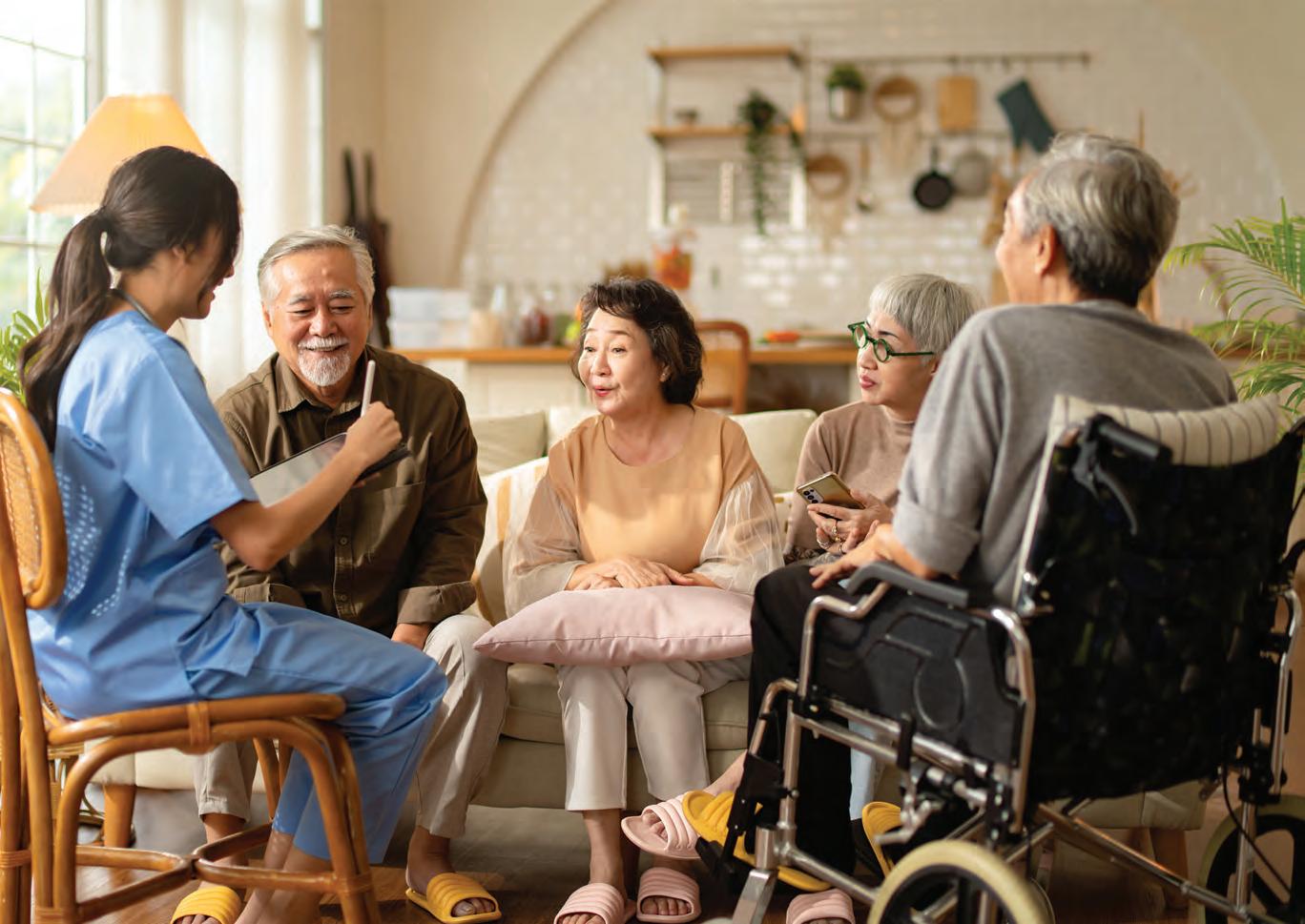

Aged care can be complex and emotional, especially when navigating the financial implications. A financial adviser can help you understand the Aged Care costs and benefits for your family situation to ensure your loved one gets the best possible care.
Determine the best care option. There are many reasons to consider either in-home care or a residential facility. The first step in understanding what would be best for you is to arrange an assessment via the Aged Care Assessment Team (ACAT).
Maximising Aged Care Benefits. It’s essential to regularly reassess care and financial arrangements to ensure you, or your loved one, receives adequate care and accommodations whilst not incurring unnecessary financial costs.
Understanding the costs of aged care in Australia.
The government provides funding options for people requiring in-home care or for those moving into residential aged care. These include a means-tested subsidy for residential aged care.
Fiducian Financial Services Advisers have extensive knowledge of the Aged Care sector and can assist in navigating the process of accessing funding while ensuring the individual is maximising any benefits available.
A well prepared and executed estate plan can not only save your estate unnecessary costs in the future but can also save your loved ones from unnecessary stress after your death.
Estate planning is the process in which you discuss with a legal practitioner what you want to happen with your estate, known as your assets, when you die.
It is a plan which involves you considering who you want to be in charge of your will, who you want to benefit from your estate, your funeral wishes, and who you want to look after your financial and personal/health matters if you were to lose capacity during your lifetime, for example, by way of dementia or stroke.
Effective estate planning ensures your assets are protected and distributed to the right people according to your wishes.
A properly drafted, up-to-date will is the only way that you can be sure your assets will be dealt with as you wish when you die.
In New South Wales, an executor of an estate will need to receive a Grant of Probate to administer the estate and handle the disposal of any assets.
If you die without a valid will, or your will is invalid, your estate will be treated as an ‘intestate’ and a suitable administrator will be appointed by the Supreme Court.
In the ACT, the administrator of the will must apply for a Grant of Probate through the Supreme Court for permission to take control of the estate.
If there is no will, a next of kin can request for the role as administrator of the estate, however, they need to apply to the Supreme Court to receive control of the estate.
In NSW and ACT, if you get married your will is automatically revoked. On the other hand, getting a divorce does not revoke your will, but it does revoke any rights or distributions to your former spouse.
If you decide to make a will through a DIY Estate Planning kit, it can save you money now, but can often add to the costs of your estate administration.
The only way to ensure that your loved ones are protected is to obtain proper legal advice regarding your estate planning.
To find out more information, visit the website of the NSW Trustee & Guardian in NSW at tag.nsw.gov.au , or in ACT contact the ACT Trustee & Guardian on ptg.act.gov.au.
Most people know you should write a will to make sure your loved ones are provided for when you die, but what happens if you are left unable to make decisions for yourself due to accident, illness or other circumstances?
It is a popular misconception that a family member can step in at this time as they may lack the legal authority to do so.
By creating an Enduring Power of Attorney and nominating a trusted friend, family member, or organisation, you put in place an effective plan to enable someone of your choosing to step in on your behalf when you are unable to make your own decisions. Think of it as a ‘living will’.
An Enduring Power of Attorney can only manage your assets and financial matters. They cannot made any decisions around medical treatment or lifestyle.
If you wish for someone to make medical treatment or lifestyle decisions on your behalf, it is recommended you nominate someone in your Advance Care Directive.
The best time to create an Enduring Power of Attorney is while you are healthy and still capable of managing your affairs.
It is important to understand what a difference it can make to have a well-chosen Attorney. If you lose the ability to make important decisions, whether they be medical, lifestyle, financial, or legal, and you do not have an Enduring Power of Attorney or Advance Care Directive, there may be conflict over who should make these decisions on your behalf.
Family and carers may be uncertain about who can or should make decisions for you. Often they may not understand the full implications of the choices that they are offered.
Looking after your affairs requires responsibility, experience, and the ability to deal with such matters. Often a spouse or family friend is appointed. Although, increasingly in the case of important documents like an Enduring Power of Attorney, trustee companies are appointed because of their professional expertise.
Once an Enduring Power of Attorney has been executed, people or organisations nominated should be made aware of the document. It is advisable that people closely involved with your affairs should also be notified.
Each Australian State and Territory has separate Powers of Attorney legislation. For more information and necessary forms you should contact the Trustee or Advocate services in your state or territory.

The aged care assessment will help decide what level of support you require. Your assessor will best be able to help you if you provide lots of information about yourself and what day-to-day tasks you struggle with.
The assessment will be done by a social worker, nurse, doctor or other health professional and can take an hour or so.
If the My Aged Care contact centre believes that you are eligible for basic home support, you will be assessed by a professional from the Regional Assessment Service (RAS).
If you require higher care support, a member of an Aged Care Assessment Team (ACAT) will visit you at home to assess you for a higher level of support at home to meet your needs or a place in a residential care home.
Some of the documents and information you should collect before your assessment include:
Medicare card and a form of identification, for instance, Department of Veterans’ Affairs (DVA) card, driver’s licence, passport or healthcare card
Notes or referrals from your doctor
Information about previous home, community or aged care services you have received
Details about support you receive from family, friends or the community
Prepared questions and information about aged care that you wish to discuss with the assessor so you have a better understanding about services
Contact details of your doctor and any other health professionals you see regularly
Have a translator or Auslan interpreter arranged if you require one
Ask a support person to be present for the assessment if you want one
During a face-to-face assessment, an ACAT assessor will visit you in your home to get to know you and your circumstances and determine the types of support you need.
The assessor will ask you a number of questions about any supports you receive, your current lifestyle, any health concerns or chronic illnesses, how you deal with tasks at home, if you struggling with any cognitive issues or memory loss, whether you are struggling at home or have concerns about personal safety, in addition to any activities you engage in with family or in the community.
Topics that might be covered or that you may want to bring up during your assessment include:
Medical history
Living arrangements
Your support network
Current services and supports you are receiving
Cognitive and behavioural functions
How you deal with daily tasks around the home
Any health and lifestyle concerns you have
Be open and transparent about your wishes and what you believe will be of assistance around the home. They might also ask for your permission to talk with your doctor or specialist about the impact of any health conditions on your day-to-day life.
The assessment is also an opportunity for you to ask questions – if you don’t understand something, make sure you clarify with your assessor You shouldn’t be leaving your assessment confused or stressed. Some if the questions you may want to ask are:
What are my rights and responsibilities during this assessment process?
What services are available in my area?
Are there support options available for my carer?
What financial assistance am I eligible to receive?
Are there culturally appropriate services in the area?
Who can I contact if I have any questions after the assessment?
If you don’t want to receive government-funded home care or go into government-funded aged care, then that is perfectly fine. There are private providers that don’t require any assessment to receive care or enter their facilities. However, you can’t receive government funding to pay for your stay in a private nursing home.
The ACAT assessment will take around an hour and at the end of the meeting the assessor will discuss the results of the assessment with you. They will review the information you have provided to determine what support option best suits you.
You will receive a letter within two weeks of your assessment to let you know if you have been found eligible for aged care services. This letter will also detail the types of services you will be able to access and any further information about how to access these supports.
If your situation is urgent, it may only take a couple of days before you get confirmation of approval for aged care.
You’ll be given a referral code linked to the type of service you are eligible to access. The service provider or aged care home of your choice will need this referral code to access your information with My Aged Care and manage the referral. They’ll also be able to access the funding allocated to you.
When you’re ready to start looking for providers to deliver the support services you have been found eligible for, you can use our online directory at AgedCareGuide.com.au for a comprehensive overview of the care options and care providers available near you.
Being approved for funded supports doesn’t always mean you will be able to access services straight away. You may need to wait until a suitable package or place in an aged care home becomes available, and wait times can range from a few weeks to a number of months.
You have the final decision to accept or reject an ACAT recommendation.
If you are unhappy with the recommendations, first talk with the person in charge of the ACAT; most concerns can be resolved this way.
If you can’t come to an agreement, you can appeal the decision and have the assessment reviewed.
To have the decision reviewed, you must write to the Secretary of the Australian Department of Health within 28 days of your assessment letter arriving. The request should be answered within 90 days with a decision.
If you do not agree with the secretary’s review, you can escalate the matter further by contacting the Administrative Appeals Tribunal.
While asking for a review by the secretary is free, the Administrative Appeals Tribunal does incur a charge.


Once you have been assessed and approved for government-funded aged care, either for services in your own home or a place in an aged care home, you can start the process of finding a provider that suits your needs.
Your letter from My Aged Care confirming you are ready to start accessing services will include a referral code linked to the type of service you are eligible to access. If you need the support of multiple services, you will be given multiple referral codes, one for each service.
The service provider or aged care home of your choice will need this referral code to access your information with My Aged Care and manage the referral. They’ll also be able to access the funding allocated to you.
Choosing which provider to trust with providing support is an important and personal decision – one that you want to think carefully about and shouldn’t rush.
You may want to start by writing down what you are looking for in a provider and what is important to you. Are low fees important to you or would you like a provider who can support your cultural needs? If accessing home care, do you want the same support worker to assist you each time and do you want to receive support on specific days or are you more flexible with time?
It’s a good idea to discuss your wishes and options with your family and support network, as they may be able to help you research, provide independent opinions on providers or share personal experiences.
It’s useful to create a shortlist of providers in your local area that may help narrow down your search.
When considering a potential provider take your time to do some research:
Look at the provider’s website, social media pages and online reviews
Check out their credentials, such as quality certifications and industry awards
Do they have any past or present sanctions or notices of non-compliance?
You can ask them directly or check the government’s non-compliance finder tool at myagedcare.gov.au/ non-compliance-checker
You can use this Guide or the AgedCareGuide.com.au directory online to search for service providers in your area that meet your requirements
If you aren’t comfortable finding or choosing a provider by yourself, then there are experts who can help you find a nursing home that suits your needs and preferences. A placement consultant has knowledge of local aged care facilities and can make the process of entering aged care smoother. Find a placement consultant on AgedCareGuide.com.au or call 1300 606 781 to access placement services.
Once you have chosen a provider, you will need to contact them to start the home care services you need or to be placed on their waiting list for a bed vacancy. During this conversation it is also essential to discuss fees and services with your new provider, so you know how much the support or aged care bed is going to cost.
When looking into home care services, here are some things to investigate and ask the provider you are considering:
Do they service your area?
Is the company Australian owned?
Is it independent or part of a franchise?
Do the owners / operators have experience in home care?
Does the company have appropriate insurance?
Does the company comply with Australian tax law? For example, does it charge GST appropriately?
Do they provide documents about financial arrangements before service begins?
Do they have a service agreement? It is important so that there’s no misunderstanding about the service and cost to be provided.
Are they flexible? After all, it is all about you.
What are their recruitment processes?
Is there a criminal background check performed prior to employment with an agency?
Does the company provide workers compensation for employees? This is important so that you are not responsible for any injuries that occur on the job.
How do they determine appropriate staff for your needs? If a company asks where you live and then offers you staff before even hearing about your needs, you can be reasonably assured they allocate based on location as a priority.
Is it possible to interview potential carers and make a selection after those interviews?
Do you get to decide what times and days suit your needs?
What is the minimum shift length?
Do they have male/female workers and can they cater for specific cultural backgrounds?
Who will be working in the home? Will there be regular staff providing continuity of care or do they change shifts around?
Is there a professional staff member, such as a registered nurse, who liaises with you to create a plan that meets your needs?
Who is the organisation’s main contact for you?
Do you meet a manager / owner and then never hear from them again?
What additional support is offered within the cost of your care? For example, are they available 24-hours a day, seven days a week.
You’ll find a list of in-home care service providers from page 114 in this Guide or visit AgedCareGuide.com.au to find providers servicing your location.
Needing to place a loved one into an aged care home can be a highly stressful event for families and carers.
You might think it’s a lack of information or understanding, but it’s because you are both the carer and the person emotionally involved as well as the decision maker.
This process can be eased significantly with the help of an aged care placement consultant who can take control of the running around, paperwork and planning.
Moving into residential care is a situation most people postpone for as long as possible until the point of necessity, often leaving little time to organise everything.
If some initial planning were to be undertaken it could soothe the transition and reduce the stress at what is a critical turning point in people’s lives.
Planning should include obtaining information on the financial implications of entering residential care, gaining information on the facilities available in your area and ensuring wills, powers of attorney and guardianship are up-to-date.
A placement consultant can take over a lot of the stress of searching for and transitioning into an aged care home.
These professionals can also assist you in finding a bed placement more promptly because of their connections with aged care providers and services.
Every single transition to aged care is unique and a placement consultant will take several things in consideration to make sure the advice is right for your circumstances:
Are you looking for care options for a single person, or a couple?
Is there a physical condition that is deteriorating, are mental faculties and awareness impaired?
Is there acceptance or understanding of this part of the journey?
What are the family dynamics around the placement decision and the impact on everyone involved?
Having extensive knowledge of facilities in their area, as well as the placement process, an aged care placement consultant can often find a home faster, and one that is specially suited to your requirements.
Through their established relationships with aged care homes, they are familiar with the culture of each home and, most importantly, they have advanced knowledge when vacancies become available.
By knowing the culture of each facility and getting to know you, placement consultants can determine which homes would best suit your needs and preferences, and make prior applications to these homes.
Without the assistance of an aged care placement consultant, you or your carer would need to constantly phone the facilities of your choice to demonstrate your eagerness and commitment to obtaining a bed in that home.

The aged care placement consultant advocates on behalf of you and your family and is able to assist with the whole assessment process. They also complete all the necessary paperwork and application forms for entry into an aged care home which is helpful, as the applications can be quite daunting. They may suggest seeking financial advice where required.
An aged care placement consultant helps share the load at this crucial time, can significantly speed up the time it usually takes to find a placement at a suitable home, thereby easing the transition into residential care.
Be sure about your expectations of service and what the placement consultant is able to provide, including:
Face-to-face family meetings to discuss your situation and a respect for the emotions of all the family members involved
Support and recommendations that cater for the specific requirements of your family and loved one
Counsel that prioritises family sensitivities, needs and special requests, before asking how much money is available and getting the status of the financial situation
Practical assistance with urgent placement situations – which they often are – where reducing the typical waiting times, or arranging respite care, is a necessity
There are many qualified placement consultants within both New South Wales and the Australian Capital Territory who can help you in your aged care journey.
When you’re choosing a placement consultant to support you through the aged care transition, look for someone who is an expert in building and nurturing relationships, who is unbiased and independent, and has no business investment or alignment with any aged care facility.
An independent professional is able to provide guidance based entirely on your individual circumstances, not biased by commission or kickbacks from any particular facility or provider.
Choose an advocate who will ease your concerns, supporting your family with all aspects of this transition, allowing you to focus on your loved one. Placement consultants are most happy for you to call them for a chat and understand you may talk to a number of them before making your choice.
You can be open in your discussions because, as health professionals, they have a policy of confidentiality.
Their professional fees may differ and it is reasonable to advise them if you are working to a budget.
Some placement consultants charge by the hour, whilst others offer a package of services for one fixed price. Ensure that you are advised of all the possible fees and costs upfront.
Finally, make sure you feel comfortable talking with the placement consultant, because your professional relationship will rely on them understanding what you want and organising the appropriate care services to meet those needs.
Placing a family member into care can be life-changing. There are many factors – physical, social, psychological and financial – that may arise which families sometimes find too difficult to cope with by themselves.
Each family member may want their opinion to be considered when it comes to making important decisions.
There are specialist health professionals who offer independent, non-judgmental services which can explore the subtleties of each situation and offer caring support in addition to counselling and conflict resolution.
The journey into aged care is often a challenging and emotional time. Not only for you, the person going into care, but also for family members who have sometimes cared for their loved one for a long time.
You may feel rejected and unloved — scared to take the step of going into care and worry you’ll lose your independence.
At the same time, many family members feel guilty about not being able to look after their loved one anymore. They feel overwhelmed by the aged care system and can’t give the assistance that is required.
Finding professional support may relieve you from negative beliefs and provide you with coping skills which can ease the difficult journey towards placing a loved one in care.
Some placement consultants offer counselling as part of their services or may be able to refer you to a counsellor.
You can find placement consultants in the products and services directory on pages 213 or search on AgedCareGuide.com.au
The case management process uses a comprehensive approach to identify and implement health and social care services to optimise your health, quality of life and active participation in the community.
Case management may be short or long-term, or episodic. It plans for both current situations and your long-term needs.
Case managers work in partnership with you, your carer and family, as well as other service providers to develop and implement individualised care plans and strategies best suited to your needs and goals.
Health-based case managers are usually a nurse, social worker or allied health professional.
Community-based case managers generally have skills from a range of disciplines, such as social work, behavioural science, allied health or nursing.
If you are eligible for a government-funded care package, case managers are often assigned through your service provider as part of your Home Care Package or home care services.
However, If you have complex and multiple needs and you’re looking at different care options or you would prefer not to use a government-funded package, you may choose to use the services of a private case manager.
Private case management services are supplied by experienced, tertiary-qualified case managers, to provide support services and coordination across a wide range of community and supportive health services.
Waiting periods for private case management are generally reduced compared to some government-subsidised services.
The duration of private case management is flexible and may be short-term or ongoing, depending on your needs.
The service of a private case management is not government-subsidised in any way, so you will be charged for all services.
Hourly rates vary between private case management organisations, so always ask for a breakdown of costs before employing them.
Generally, an invoice for all care services purchased on your behalf will be provided to you each month.
Many case managers offer no-lock-in contracts, meaning care can be arranged for one, several or many ongoing visits and you only pay for what you use.
The aim of care planning is to provide appropriate and coordinated care that you have control over. Care plans are person-centred and prioritise the needs identified in the comprehensive assessment.
The case manager implements the care plan and this may include identifying support services that other community care agencies will provide.
Services may include the purchase or hire of equipment or installation of assistive aids, such as bathroom rails, and negotiating with support agencies for delivery of services.
The case manager also monitors each individual to ensure the service provision is effective and financially accountable, to identify changes and make adjustments to the care plan if needed.
The tables below provide you with an alphabetised list of LGAs and the page reference where you can find details about aged care homes and home care packages in that local government area (commonly referred to as a Council District).
Council District
Page Reference
Home Care Residential
ACT 142-151 195-196
Albury 142-151 175
Armidale 142-151 175
Ballina 142-151 175
Balranald 142-151 175
Bathurst 142-151 176
Bayside 134-142 156
Bega Valley 142-151 176
Bellingen 142-151 176
Berrigan 142-151 176
Blacktown 134-142 154
Bland 142-151 176
Blayney 142-151 176
Blue Mountains 134-142 154-155
Bogan 142-151 177
Bourke 142-151 177
Brewarrina 142-151 177
Broken Hill 142-151 177
Burwood 134-142 155
Byron 142-151 177
Cabonne 142-151 177
Camden 134-142 155
Campbelltown 134-142 155
Canada Bay 134-142 156
Canterbury-Bankstown 134-142 156-157
Carrathool 142-151 177
Central Coast 134-142 157-159
Central Darling 142-151
Cessnock 142-151 177
Clarence Valley 142-151 178
Cobar 142-151 178
Coffs Harbour 142-151 178
Coolamon 142-151 178
Coonamble 142-151 178
Cootamundra-Gundagai 142-151 179
Cowra 142-151 179
Cumberland 134-142 159-160
Dubbo 142-151 179
Dungog 142-151 179
Edward River 142-151 179
Eurobodalla 142-151 179-180
Fairfield 134-142 160
Federation 142-151 180
Forbes 142-151 180
Council District Page Reference Home Care Residential
Georges River 134-142 160-161
Gilgandra 142-151 180
Glen Innes Severn 142-151 180
Goulburn-Mulwaree 142-151 180
Greater Hume 142-151 181
Griffith 142-151 181
Gunnedah 142-151 181
Gwydir 142-151 181
Hawkesbury 134-142 161
Hay 142-151 181
Hilltops 142-151 181
Hornsby 134-142 162
Hunters Hill 134-142 163
Inner West 134-142 163-164
Inverell 142-151 182
Junee 142-151 182
Kempsey 142-151 182
Kiama 142-151 182
Ku-ring-gai 134-142 164-165
Kyogle 142-151 182
Lachlan 142-151 182
Lake Macquarie 142-151 183-184
Lane Cove 134-142 165
Leeton 142-151 184
Lismore 142-151 184
Lithgow 134-142 165
Liverpool 134-142 165-166
Liverpool Plains 142-151 184
Lockhart 142-151 184
Maitland 142-151 184-185
Mid Coast 142-151 185
Mid Western 142-151 185-186
Moree Plains 142-151 186
Mosman 134-142 166
Murray River 142-151 186
Murrumbidgee 142-151 186
Muswellbrook 142-151 186
Nambucca 142-151 186
Narrabri 142-151 186-187
Narrandera 142-151 187
Narromine
A list of suburbs and the page references where all the aged care homes in that suburb are listed. If a suburb/town is not listed, please refer to the next closest suburb.
Suburb / Town Page
Abbotsford 156
Aberglasslyn 184
Ainslie 195
Albion Park 189
Albion Park Rail 189
Albury 175
Allambie Heights 166
Alstonville 175
Annandale 163
Armidale 175
Arncliffe 153
Ashfield 163
Ashford 182
Auburn 159
Austral 165
Avalon Beach 166
Ballina 175
Balmain 163
Balranald 175
Bangalow 177
Bangor 170
Banksia 153
Bankstown 156
Banora Point 192
Baradine 193
Barden Ridge 170
Barham 186
Barraba 191
Basin View 190
Bass Hill 156
Bateau Bay 157
Batehaven 179
Batemans Bay 179
Bathurst 176
Batlow 191
Baulkham Hills 167
Bayview 166
Beecroft 162
Bega 176
Belconnen 195
Bellevue Hill 174
Bellingen 176
Belmont 183
Belmont North 183
Suburb / Town
Suburb / Town Page Calwell 195 Camden 155
Cameron Park 183
Campbell 195 Campbelltown 155
Campsie 156
Canley Vale 160
Suburb / Town Page
Corrimal 194
Cowra 179
Cronulla 170
Crookwell 192
Croydon 155
Culburra Beach 190
Culcairn 181
Cundletown 185
Curtin 195
Daceyville 153
Dalmeny 180
Dapto 194
Darlinghurst 171
Deakin 195
Dean Park 154
Delegate 191
Denham Court 155
Denhams Beach 180
Charlestown 183 Charmhaven
Deniliquin 179
Denman 186
Doonside 154
Dorrigo 176
Drummoyne 156
Dubbo 179
Dulwich Hill 163
Dunedoo 193
Dungog 179
Dural 162
Earlwood 156
East Gosford 158
East Maitland 184
Eastwood 168 Eden 176
Edensor Park 160
Edgecliff 174
Edgeworth 183
191
Coonabarabran 193
Coonamble 178
Cooranbong 183
Cootamundra 179
Coraki 184
Corlette 189
Corowa 180
Eleebana 183
Elermore Vale 183
Elizabeth Bay 171
Emmaville 180
Emu Plains 169
Engadine 170
Epping 168
Erina 158
Suburb / Town Page
Ermington 168
Eugowra 177
Fairfield 160
Fairfield East 160
Farrer 195
Figtree 194
Finley 176
Five Dock 156
Forbes 180
Forestville 167
Forster 185
Frederickton 182
Galston 162
Garden Suburb 183
Garran 195
Georges Hall 156
Gerringong 182
Gilead 155
Gilgandra 180
Gladesville 163
Glen Innes 180
Glenfield 155
Glenhaven 162
Glenmore Park 169
Glenroy 175
Gloucester 185
Goonellabah 184
Gordon 164
Gordon 195
Goulburn 180
Grafton 178
Grasmere 155
Green Valley 165
Greenacre 157
Greenhill via Kempsey 182
Greenway 195
Greenwich 165
Grenfell 193
Greystanes 159 Griffith 181 Griffith 195
Guildford 159
Gulargambone 178
Gulgong 185
Gundagai 179
Gunnedah 181
Guyra 175
Suburb / Town Page
Haberfield 163 Hamilton 187
Hamlyn Terrace 158 Hammondville 166 Harden 181 Harris Park 168
Hawks Nest 185 Hay 181
Heathcote 171
Henty 181
Hillston 177
Hillvue
Hornsby
Kemps
Killarney Vale 158
Suburb
Suburb / Town Page
Norwest 172
Nowra 190
Nyngan 177
Oatlands 168
Oatley 161
Oberon 188
Old Bar 185
Oran Park 155
Orange 188
Paddington 171
Padstow 157
Padstow Heights 157 Page 196
Pambula 176
Parkes 188
Parramatta 168
Peakhurst 161
Pemulwuy 159
Pendle Hill 160
Pennant Hills 162
Penrith 169
Penshurst 161
Petersham 164
Picton 174
Plumpton 154
Point Clare 158
Port Kembla 194
Port Macquarie 189
Portland 165
Pottsville 192
Prestons 166
Punchbowl 157
Quakers Hill 154
Queanbeyan 189
Quirindi 184
Raleigh 176
Randwick 169
Raymond Terrace 189
Red Hill 196
Redfern 171
Redhead 184
Revesby 157
Rhodes 156
Richmond 161
Rockdale 153
Rooty Hill 154
Rose Bay 173
Rosehill 168
Suburb / Town Page
Suburb / Town Page
Tenterfield 191
Teralba 184
Terrey Hills 167 The Ponds 154 The Rock 184
Thirlmere 174 Thirroul 194
Thornleigh 162
Thurgoona 175
Suburb / Town Page
Warren 193
Warriewood 167
Waterfall 171
Waterloo 172
Wauchope 189
Waverley 173
Wee Waa 187
Wellington 179
Wentworth 193
Wentworth Falls 155
West Albury 175
West Gosford 159
West Kempsey 182
West Pennant Hills 162
West Ryde 170
West Wyalong 176
Westmead 160 Weston 196
Willoughby 173 Windsor 161 Wingham 185
Winston Hills 168
Wollongong 194
St Georges Basin 190
St Ives 164
St Johns Park 160
St Marys 169
Stanmore 164
Stanwell Park 194 Stirling 196
Stockton 187
Strathfield 155
Stroud 185
Suffolk Park 177
Summer Hill 164
Surry Hills 172
Sussex Inlet 190 Sutherland 171 Sylvania 171
Tamworth 191
Tanilba
Tumut 191
Tuncurry 185
Tura Beach 176
Turramurra 165
Turvey Park 193
Tweed Heads 192
Tweed Heads South 192
Tweed Heads West 192
Ulmarra 178
Umina Beach 159
Unanderra 194
Uralla 192
Urana 180
Urbenville 182
Vaucluse 173
Wagga Wagga 193
Wahroonga 162
Walcha 193
Walgett 193
Wallsend 188
Warabrook 188
Waratah 188
Warialda 181
Warrawee 165
Warrawong 194
Woolgoolga 178
Woollahra 174
Woolwich 163
Woongarrah 159
Woonona 194
Worrowing Heights 190
Woy Woy 159
Wyee 184 Wyoming 159
Yagoona 157
Yamba 178
Yass 194
Yennora 160
Yeoval 177
Yoogali 181
Young 181
See Definition of Terms pages 214-215
See Definition of Terms pages 214-215
See Definition of Terms pages 214-215
See Definition of Terms pages 214-215
See Definition of Terms pages 214-215
See Definition of Terms pages 214-215
See Definition of Terms pages 214-215
See Definition of Terms pages 214-215
See Definition of Terms pages 214-215
See Definition of Terms pages 214-215
See Definition of Terms pages 214-215
Nth-Coffs Harbour, Urunga, Tamworth, Armidale
Nth-Mullumbimby, Byron Bay, Ballina
RSL
Nth - Tweed Heads, Gold Coast
Sth - ACT, Queanbeyan & Yass
Sth - Merimbula, Bega,
Sth-Wagga Wagga, Griffith, Gundagai, Narrandera
See Definition of Terms pages 214-215
See Definition of Terms pages 214-215
See

C K A G E S
Home Care Package (HCP) approved providers offer home care and support services to members of the community who live at home.
If you’ve been approved for a government-funded Home Care Package of any type, you may approach any Home Care Package approved provider to provide the services you need.
Some providers may only provide services in one region while others can service multiple areas. On the following pages you’ll find alphabetical lists of approved providers in NSW and ACT.
To help you know which approved providers offer services in a certain region, we’ve included coloured bars down the left hand side of the directory pages.
The list on page 131 is a quick reference guide to help you find in which group council districts are listed. For example Central Coast LGA is grouped under Northern Sydney.
The colour-coded maps on pages 132–133 show you which council districts are grouped together.
The table on the next few pages lists Home Care Packages approved providers in alphabetical order, detailing the Home Care Packages level they offer and if they offer any package supplements.
Ethnicity, country or cultural groups listed under ‘Notes’ applies to all package levels in that row. If service providers have an advertisement in this Guide, then the page number of the advert is listed in red under ‘Advert Page’. The ‘DPS Web ID’ number can be used as a unique identifier to find out more information on AgedCareGuide.com.au.
The same type of care and services are provided under each Home Care Package level of care, and these may include transport, domestic assistance, social support, personal care, home maintenance, home modification, nursing care, food services and medication assistance. The hours of care are increased at each level of care, i.e. more hours of care and services are provided under Home Care Package Level 4 and the least under Home Care Package Level 1. Package supplements, like the Dementia Supplement Zand the Veterans’ Supplement R, are offered to eligible persons only.
Some packages are specifically for people who are financially or socially disadvantaged e, people with housing needs or at risk of homelessness Y or for people who live in rural, remote or isolated areas t. The cultural environment g indicates providers offering services for people from culturally diverse backgrounds.
Based on your care needs, an ACAT assessment will determine what level of care you are eligible for and if any supplements apply to you.
The index below provides you with an alphabetised list of councils and the regions they are grouped in.
Bayside South Eastern Sydney
Blacktown Western Sydney
Blue Mountains Western Sydney
Burwood Inner Western Sydney
Camden South Western Sydney
Campbelltown South Western Sydney
Canada Bay Inner Western Sydney
Canterbury-Bankstown Inner Western Sydney
Central Coast Northern Sydney
Cumberland Western Sydney
Fairfield South Western Sydney
Georges River South Eastern Sydney
Council District Regional NSW
ACT ACT
Albury South Western NSW
Armidale Northern NSW
Ballina Northern NSW
Balranald Western NSW
Bathurst Western NSW
Bega Valley Southern NSW
Bellingen Northern NSW
Berrigan South Western NSW
Bland South Western NSW
Blayney Western NSW
Bogan Western NSW
Bourke Western NSW
Brewarrina Western NSW
Broken Hill Western NSW
Byron Northern NSW
Cabonne Western NSW
Carrathool South Western NSW
Central Darling Western NSW
Cessnock Northern NSW
Clarence Valley Northern NSW
Cobar Western NSW
Coffs Harbour Northern NSW
Coolamon South Western NSW
Coonamble Western NSW
Cootamundra-Gundagai South Western NSW
Cowra Western NSW
Dubbo Western NSW
Dungog Northern NSW
Edward River South Western NSW
Eurobodalla Southern NSW
Federation South Western NSW
Hawkesbury
Hornsby
Hunters Hill
Inner West
Ku-ring-gai
Lane Cove
Lithgow
Liverpool
Mosman
North Sydney
Northern Beaches
Parramatta
Western Sydney
Northern Sydney
Northern Sydney
Inner Western Sydney
Northern Sydney
Northern Sydney
Western Sydney
South Western Sydney
Northern Sydney
Northern Sydney
Northern Sydney
Western Sydney
Council District Regional NSW
Forbes Western NSW
Gilgandra
Glen Innes Severn
Goulburn-Mulwaree
Greater Hume
Griffith
Gunnedah
Gwydir
Hay
Hilltops
Inverell
Junee
Kempsey
Kiama
Kyogle
Lachlan
Lake Macquarie
Leeton
Lismore
Liverpool Plains
Lockhart
Maitland
Mid Coast
Mid Western
Moree Plains
Murray River
Murrumbidgee
Muswellbrook
Nambucca
Narrabri
Narrandera
Narromine
Council District Sydney Metro
Penrith
Randwick
Ryde
Strathfield
Sutherland
Sydney
Western Sydney
South Eastern Sydney
Northern Sydney
Inner Western Sydney
South Eastern Sydney
Inner Western Sydney
The Hills Western Sydney
Waverley
Willoughby
Wingecarribee
Wollondilly
Woollahra
Council District
Western NSW
Northern NSW
Southern NSW
South Western NSW
South Western NSW
Northern NSW
Northern NSW
South Western NSW
South Western NSW
Northern NSW
South Western NSW
Northern NSW
Southern NSW
Northern NSW
Western NSW
Northern NSW
South Western NSW
Northern NSW
Northern NSW
South Western NSW
Northern NSW
Northern NSW
Western NSW
Northern NSW
South Western NSW
South Western NSW
Northern NSW
Northern NSW
Northern NSW
South Western NSW
Western NSW
South Eastern Sydney
Northern Sydney
South Western Sydney
South Western Sydney
South Eastern Sydney
Regional NSW
Newcastle Northern NSW
Oberon
Orange
Parkes
Port Macquarie-Hastings
Port Stephens
Queanbeyan-Palerang
Western NSW
Western NSW
Western NSW
Northern NSW
Northern NSW
Southern NSW
Richmond Valley Northern NSW
Shellharbour
Shoalhaven
Singleton
Snowy Monaro
Snowy Valleys
Tamworth
Temora
Tenterfield
Tumbarumba
Tweed
Upper Hunter
Upper Lachlan
Uralla
Wagga Wagga
Walcha
Walgett
Southern NSW
Southern NSW
Northern NSW
Southern NSW
South Western NSW
Northern NSW
South Western NSW
Northern NSW
South Western NSW
Northern NSW
Northern NSW
Southern NSW
Northern NSW
South Western NSW
Northern NSW
Western NSW
Warren Western NSW
Warrumbungle
Weddin
Wentworth
Wollongong
Yass Valley
Western NSW
Western NSW
Western NSW
Southern NSW
Southern NSW
provide
(ACT).
South
South
General packages suitable for all eligible clients
Packages for people with dementia

These icons help you find the packages that are most suitable for you.
Packages for people who are financially or socially disadvantaged
Packages for people with housing needs and at risk of homelessness
Packages for people who live in rural, remote or isolated areas
Packages for veterans
General packages suitable for all eligible clients
Packages for people with dementia
These icons help you find the packages that are most suitable for you.
Packages for people who are financially or socially disadvantaged Y
Packages for people with housing needs and at risk of homelessness
Packages for people who live in rural, remote or isolated areas
Packages for veterans
3.
4. Arabic,
General packages suitable for all eligible clients
Packages for people with dementia
These icons help you find the packages that are most suitable for you.
Packages for people who are financially or socially disadvantaged Y
Packages for people with housing needs and at risk of homelessness t
Packages for people who live in rural, remote or isolated areas
Packages for veterans
General packages suitable for all eligible clients
Packages for people with dementia
These icons help you find the packages that are most suitable for you.
Packages for people who are financially or socially disadvantaged Y
Packages for people with housing needs and at risk of homelessness
Packages for people who live in rural, remote or isolated areas
Packages for veterans

General packages suitable for all eligible clients
Packages for people with dementia
These icons help you find the packages that are most suitable for you.
Packages for people who are financially or socially disadvantaged Y
Packages for people with housing needs and at risk of homelessness t
Packages for people who live in rural, remote or isolated areas R
Packages for veterans Z
General packages suitable for all eligible clients
Packages for people with dementia
These icons help you find the packages that are most suitable for you.
YPackages for people who are financially or socially disadvantaged
Packages for people with housing needs and at risk of homelessness t
Packages for people who live in rural, remote or isolated areas
Packages for veterans
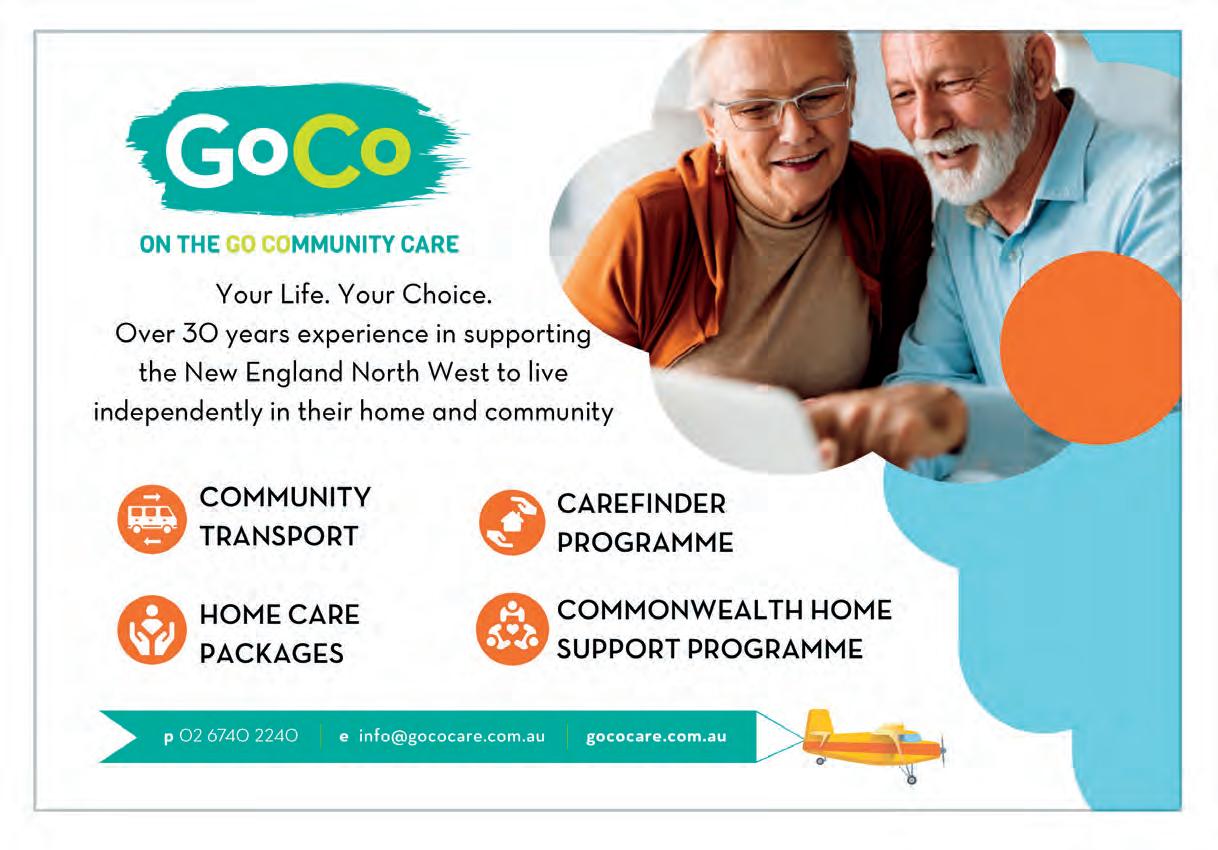
General packages suitable for all eligible clients
Packages for people with dementia
These icons help you find the packages that are most suitable for you.
Packages for people who are financially or socially disadvantaged Y
Packages for people with housing needs and at risk of homelessness
Packages for people who live in rural, remote or isolated areas
Packages for veterans
General packages suitable for all eligible clients
Packages for people with dementia
These icons help you find the packages that are most suitable for you.
Packages for people who are financially or socially disadvantaged Y
Packages for people with housing needs and at risk of homelessness
Packages for people who live in rural, remote or isolated areas
Packages for veterans
General packages suitable for all eligible clients
Packages for people with dementia
These icons help you find the packages that are most suitable for you.
Packages for people who are financially or socially disadvantaged Y
Packages for people with housing needs and at risk of homelessness
Packages for people who live in rural, remote or isolated areas
Packages for veterans
Icons in the residential listings represent various types of services available in aged care facilities.
Booked Respite Beds — Dedicated respite beds that should be booked in advance. Prior assessment by an Aged Care Assessment Team (ACAT) is required.
Extra Services — A service offering a ‘higher’ standard of accommodation, including increased entertainment and food choices at an additional cost to the resident.
Pets on Premises — The facility owns dogs or cats that are able to interact freely with residents. Some facilities may consider you bringing your small pets.
Secure Dementia Unit — Safe and secure wing or unit of the aged care facility offering specialised care to those living with dementia.
Secure Garden — An onsite secure gated garden for residents (especially those with dementia) to enjoy for recreation or therapy.
Transition Care Beds g
Culturally Specific
Specialist Palliative Care — Specialised care services for those nearing the end of their life in an aged care facility. Staff are trained in pain management and other palliative care measures.
Transition Care Beds — A bed-based service allowing older people more time and support post-hospitalisation in a ‘non-hospital’ environment to optimise their functional capacity.
Culturally Specific — Care services catering to the needs of those from non-English speaking or culturally and linguistically diverse backgrounds. Seldom exclusive, for example, all people are welcome. The home has special knowledge of the referenced culture or group.
Retirement Living Onsite — Retirement living services/village co-located on the same geographic site as the aged care facility.
BAYSIDE Council
Arncliffe 2205
2216
Bexley 2207
Kogarah 2217
Rockdale 2216
2216


BLACKTOWN
Blacktown
2767
Langley 2147
2148
Park 2765
2761
Quakers
2763
Rooty Hill 2766
2769
Toongabbie 2146
Toongabbie
BLUE MOUNTAINS Council
Katoomba 2780
2780
BLUE
Springwood 2777
Falls 2782
BURWOOD Council
Burwood 2134
Croydon 2132
Strathfield 2135
2136
Council
Camden 2570
Grasmere 2570
Oran Park 2570
Council
Campbelltown 2560
Denham Court 2565
Gilead 2560
Glenfield 2167
Minto 2566
Abbotsford 2046
2046
Concord 2137
Drummoyne 2047
2192
2194
Earlwood 2206
Greenacre 2190
Lakemba 2195
2211
2211
2196
2212
Roselands 2196
Yagoona 2199
Note: 1. Arabic, CALD, Asian; residents with challenging behaviours welcome

CENTRAL COAST Council continued
Berkeley Vale 2261
Charmhaven 2263
2250
Kanwal 2259
2250
2263

CENTRAL COAST Council continued
Toukley 2263
Tumbi Umbi 2261
Beach 2257
West Gosford 2250
Woongarrah 2259
Woy Woy 2256
2250
Auburn 2144
Council
Greystanes 2145
2161
2141
West 2160
Pemulwuy 2145
2145
2145
2177
2176
Cabramatta 2166
2166
2163
Park 2176
2165
East 2165
Smithfield 2164
2176
2161
RIVER Council Beverley Park 2217
GEORGES RIVER Council
Blakehurst 2221
Hurstville 2220
Kogarah 2217
Mortdale 2223
Oatley 2223
Peakhurst 2210
2222
Sans Souci 2219
2221
Council
Kurrajong 2758 Kurrajong
North Richmond 2754
Richmond 2753
Windsor 2756
Beecroft 2119
2158
2159
2156
2076
2131
Balmain 2041
Croydon 2132
Dulwich Hill 2203
Haberfield 2045
Leichhardt 2040
Lewisham 2049
Lilyfield 2040
Lindfield 2070
2074
Roseville 2069

2066
Council
Bowenfels 2790
Lithgow 2790
Portland 2847
Council
2179
Casula 2170
Chipping Norton 2170
Denham Court 2565
Green Valley 2168
2060
Collaroy 2097
Forestville 2087
Manly 2095
Manly Vale 2093
2103
2101
Narraweena 2099
Warriewood 2102
Council
Baulkham Hills 2153

Councils (LGAs) and then Suburbs
PARRAMATTA Council continued Beecroft 2119
Eastwood 2122
Epping 2121
Ermington 2115
2150
Northmead 2152
2117
Parramatta 2150
2142
2146
2145
2153
Council Emu Plains 2750
Glenmore Park 2745
Park
Creek 2178
2747
Penrith 2750
2760
Marys 2760
Council Kensington 2033
Bay 2036
Malabar 2036
Maroubra 2035
Matraville 2036
Randwick 2031
continued to SUTHERLAND
RANDWICK Council
2034
2122
2111
Macquarie Park 2113
2122
2114
2190
2135
Bangor 2234
Council
Barden Ridge 2234
Cronulla 2230
2233
2233
2234
2226
Kirrawee 2232
2228
2232
2224
Taren Point 2229
2233
2010
Elizabeth Bay 2011
2021
Baulkham Hills 2153
2158
Kellyville 2155
North Kellyville 2155
North
2151
Norwest 2153
Pennant Hills 2125
Bundanoon 2578
WINGECARRIBEE
Burradoo 2576
2575
2572
ALBURY Council
Albury 2640
2640
Lavington 2641
Thurgoona 2640
West Albury 2640
Armidale 2350
2365
Tingha 2369
Council
Alstonville 2477
Senior Living
Ballina 2478
Council
Balranald 2715
BATHURST Council
Bathurst 2795
2795
BEGA VALLEY Council
Bega 2550
Eden 2551
Merimbula 2548
Pambula 2549
2548
Bellingen 2454
Dorrigo 2453
2454
Berrigan 2712
2713
2714
Blayney 2799
2671
2791
Nyngan 2825
2840
2839
HILL Council
Broken Hill 2880
Council
Bangalow 2479
Bay 2481
Mullumbimby 2482
2481
Council Canowindra 2804
2806
Molong 2866
Yeoval 2868
Hillston 2675
Council
CESSNOCK Council
Cessnock 2325
Kurri 2327
Grafton 2460
2463
South Grafton 2460
2462
2464
2835
2450
2452
2456
2829
2828
Cootamundra 2590
Gundagai 2722
Council
Canowindra 2804
Cowra 2794
Council
Dubbo 2830
2820
DUNGOG Council
Dungog 2420
Deniliquin 2710
Moulamein 2733
Council
Batehaven 2536
Batemans Bay 2536

Broulee 2537
2536
Dalmeny 2546
Denhams Beach 2536 Denhams
Moruya 2537
Council
Corowa 2646
Howlong 2643
Council
Eugowra 2806
2871
2827
INNES SEVERN Council
Emmaville 2371
Glen Innes 2370
2580
Note: 1. Couples accommodation available
GREATER HUME Council
Culcairn 2660
Henty 2658
Holbrook 2644
2642
GRIFFITH Council
Griffith 2680
2680
GUNNEDAH Council
Boggabri 2382
Gunnedah 2380
GWYDIR Council
Bingara 2404
Bundarra 2359
Warialda 2402
HAY Council
Hay 2711
2586
2587
2594
INVERELL Council
Ashford 2361
Inverell 2360
Tingha 2369
Junee 2663
2440
2440
Kiama 2533
Bonalbo 2469
Kyogle 2474
2431
2440
2440
Urbenville 2475 Urbenville
Condobolin 2877
Lake Cargelligo 2672
Tottenham 2873
2874
LAKE MACQUARIE Council
Belmont 2280
Belmont North 2280 Uniting
Bolton Point 2283
Bolton Clarke
Bonnells Bay 2264
Booragul 2284
Cameron Park 2285
Cardiff 2285
Cardiff Heights 2285
Caves Beach 2281
Charlestown 2290
Cooranbong 2265
Edgeworth 2285
2282
Elermore Vale 2287 Regis
2289
2290

2284
2283
2480
Quirindi 2343
Henty 2658
2656
2655
Aberglasslyn 2320
2323
2320
2320
MAITLAND Council continued
Rutherford 2320
MID COAST Council
Bulahdelah 2423
Cundletown 2430
2428
2422
Hawks Nest 2324
2430
2425
Taree 2430
2428
2429
2852
2848
2850
MID
Rylstone 2849
2833
2732
2710
2731
2733
2712
2713
2707
Jerilderie 2716
2328
2447
2382
2390
2448
Council continued
Wee Waa 2388
Council
Narrandera 2700
Narromine 2821
Trangie 2823
Vale 2287
Jesmond 2299
2304
Mayfield East 2304 Fronditha
West 2304
Merewether 2291
New Lambton 2305
Newcastle West 2302
Sandgate 2304
Stockton 2295

Wauchope 2446
Corlette 2315
Raymond Terrace 2324
Salamander Bay 2317
Shoal Bay 2315
Bay 2319
2622
2620
Casino 2470
VALLEY Council
Coraki 2471
Albion Park 2527
Albion Park Rail 2527
2528
2529
Council
View 2540
2541
2540
2538
2539
2541
2541
2541
2540
2330
SNOWY MONARO Council
Berridale 2628
Bombala 2632
Cooma 2630
Hudson House (formerly
Delegate 2633
Batlow 2730
Tumbarumba 2653
Tumut 2720
Council
Barraba 2347
Hillvue 2340
Manilla 2346
2353
Tamworth 2340
2340
Council
Temora 2666
TENTERFIELD
Tenterfield 2372
Urbenville 2475
2329
Scone 2337
2338
2485
Council
Crookwell 2583
2580
Council
Bundarra 2359
Uralla 2358
WAGGA
2656
2655
Turvey Park 2650
Wagga Wagga 2650
Council
2354
Collarenebri 2833
Lightning Ridge 2834
2832
Council
Warren 2824
Baradine 2396
Baradine
Coolah 2843
Coolah
Council
Coonabarabran 2357
Cooinda
2844
WEDDIN Council
Grenfell 2810
WENTWORTH Council
Wentworth 2648
Murray
WOLLONGONG Council
Berkeley 2506
2518 Illawarra Diggers
2530
2525
Horsley 2530
2530
2505
2518
2515
2502
2500
2517
VALLEY Council Yass 2582
Aged Care Homes listed by Councils (LGAs) and then Suburbs
Ainslie 2602
Belconnen 2617
2617
Haydon
Calwell 2905
2612
Curtin 2605
2607
2605
Gordon 2906
2900
2603
2615
2605
Kaleen 2617
2602
Aged Care Homes listed by Councils (LGAs) and then Suburbs
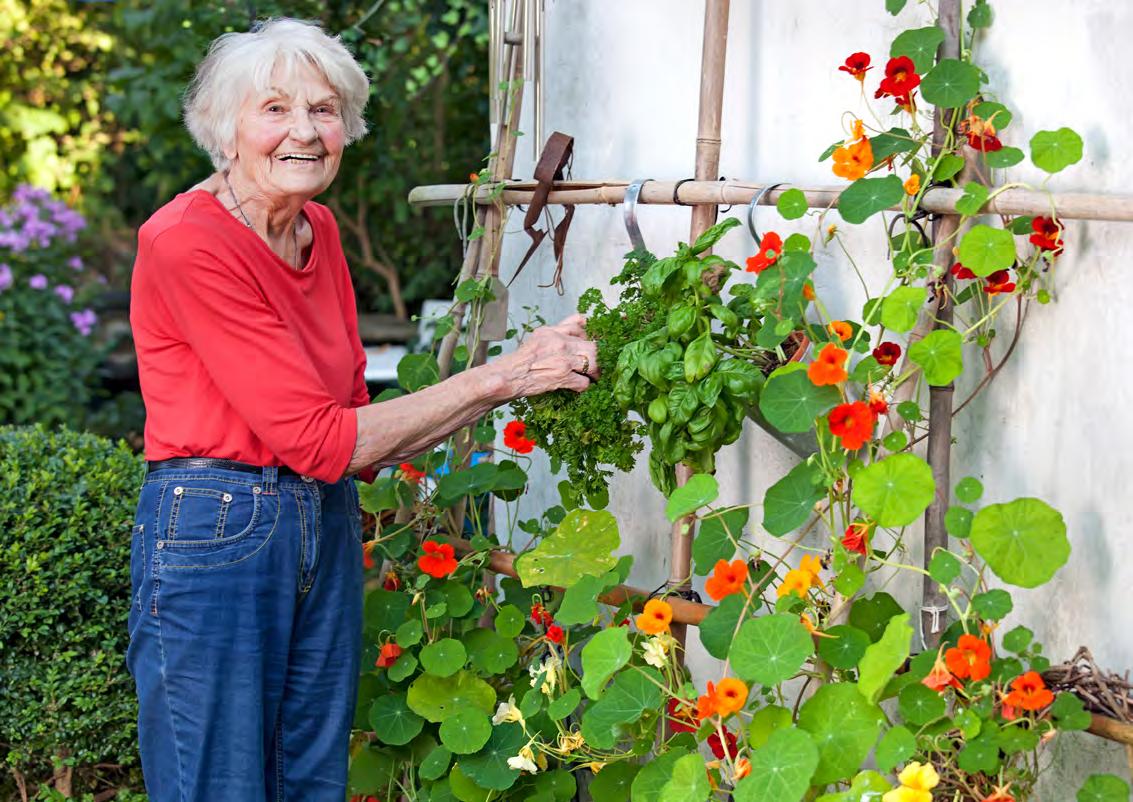
Table of aged care homes/residential care facilities offering culturally appropriate services
The following table is a guide only. The information should not be interpreted that these homes are exclusive to the noted cultural group nor the only homes that offer quality services to these cultural groups. All aged care homes should care for all people regardless of sexuality, race, or religious characteristics. The homes listed below have specifically indicated to DPS that they have specific training, expertise, funding, or heightened understanding of the special needs of the cultural group.
Cultural Group Aged Care Home Name
African Bupa St Ives St Ives 1800 718 348 21922
Arabic Belmore Place Care Community Lakemba 1300 842 924 14320
Arabic Bupa Greenacre Greenacre 1800 718 348 14306
Arabic Canterbury Place Care Community Campsie 1300 842 924 14266
Arabic Gallipoli Home Auburn 9136 3000 21096
Arabic Hall & Prior Fairfield Nursing Home Fairfield 9728 1144 13227
Arabic Hixson Garden Aged Care Bankstown 9791 9609 20108
Arabic Maronite Sisters Village Dulwich Hill Dulwich Hill 9558 2115 18566
Arabic Maronite Sisters Village Marrickville Marrickville 9558 2115 13136
Armenian Alexander Aged Care Brookvale 9938 1514 13877
Asian ACDMA Aged Hostel Canley Vale 9754 1343 13534
Asian Arete Health Care Lansdowne Cabramatta 9724 3545 12943
Asian CASS Residential Aged Care Facility Campsie 9789 4587 21065
Asian Ferndale Gardens Aged Care Facility Mortdale 9570 5555 14291
Asian Heiden Park Lodge Carramar 8197 9325 13211
Asian Heritage Pennant Hills Pennant Hills 0416 923 334 13870
Asian Huntingdon Gardens Aged Care Facility Bexley 8080 3850 14265
Asian St George Aged Care Centre Bexley 8566 1400 13747
Assyrian Bossley Parkside Care Community Bossley Park 1300 842 924 13261
Assyrian Heritage Kingswood Kingswood 0416 923 334 13417
Assyrian Heritage The Manor Fairfield East 0416 923 334 61628
ATSI Bilyara Hostel Cowra 6341 1666 13599
ATSI Boggabri John Prior Multi-purp Serv Boggabri 6749 7000 14338
ATSI Booroongen Djugun ACF Greenhill via Kempsey 6560 2120 13854
ATSI Brewarrina Multi Purpose Service Brewarrina 6830 5000 18847
ATSI Cooee Lodge Hostel Gilgandra 6817 8744 13600
ATSI Jack Towney Hostel Gilgandra 6817 8777 13056
ATSI Jerilderie Multi Purpose Service Jerilderie 03 5886 6700 14330
ATSI Mareeba Aged Care Maclean 6645 2966 13007
ATSI Rose Mumbler Village North Nowra 4428 9400 13298
ATSI Sapphire Coast Community Aged Care Bega 6492 7777 13257
ATSI St Andrew's Village Ballina 6620 5800 13751
ATSI Whiddon Belmont Belmont 1300 738 388 13963
ATSI Whiddon Bourke Bourke 1300 738 388 13285
CALD Adria Care Stirling 6288 0198 12857
CALD RSL LifeCare Bill McKenzie Gardens Page 1300 232 564 12849
CALD RSL LifeCare Sir Leslie Morshead Manor Lyneham 1300 232 564 12845
CALD Villaggio Sant' Antonio Res' Aged Care Page 6255 1794 12864
CALD Abel Tasman Village Chester Hill 9645 3388 13214
CALD Annandale Grove Care Community Annandale 1300 842 924 13873
CALD Ashfield Terrace Care Community Ashfield 1300 842 924 13200
Cultural Group Aged Care Home Name
CALD Auburn Glen Care Community Auburn 1300 842 924 12961
CALD Aurrum Aged Care Erina Erina 0417 335 622 13823
CALD Aurrum Aged Care Norah Head Norah Head 0417 335 622 13686
CALD Aurrum Aged Care Terrigal Drive Erina 0417
CALD Aurrum Wyoming Wyoming 0417 335 622 13851
CALD Bankstown Terrace Care Community Bankstown 1300 842 924 22164
CALD Bathurst Riverview Care Community Bathurst 1300 842 924 13276
CALD Belmore Place Care
Cultural Group Aged Care Home Name
CALD St Simeon Village Plumpton 9675 3285 12918
CALD Stanmore Place Care Community
Stanmore 1300 842 924 13556
CALD SummitCare Wallsend Wallsend 4944 1500 18866
CALD The Royce Manor
CALD Tweed River Care Community
Penrith 4720 5633 38776
Tweed Heads 1300 842 924 18792
CALD Tweed Valley Care Community Tweed Heads West 1300 842 924 13087
CALD Uniting Mullauna Blacktown
CALD Wahroonga Place Care Community
CALD Whiddon Belmont
CALD Whiddon Bourke
Cambodian Heritage Kingswood
Blacktown 1800 864 846 13222
Wahroonga 1300 842 924 13010
Belmont 1300 738 388 13963
Bourke 1300 738 388 13285
Kingswood 0416 923 334 13417
Cambodian Heritage The Manor Fairfield East 0416 923 334 61628
Cambodian Indochinese Aged Care Services
Chinese Adria Care
Chinese ACDMA Aged Hostel
Chinese Ainsley Nursing Home
Bonnyrigg 8786 1888 18842
Stirling 6288 0198 12857
Canley Vale 9754 1343 13534
Burwood 9124 9201 13233
Chinese Belmore Place Care Community Lakemba 1300 842 924 14320
Chinese Bernard Chan Nursing Home
Burwood 8741 0288 13266
Chinese Canterbury Place Care Community Campsie 1300 842 924 14266
Chinese CASS Residential Aged Care Facility
Chinese Castle Hill Aged Care Home
Chinese Chow Cho-Poon Nursing Home
Chinese Fairlea @ Harris Park
Chinese Fairlea @ Penshurst
Chinese Fairlea @ Rosehill
Chinese Fairmont Aged Care
Chinese Heritage Botany
Chinese Heritage Pennant Hills
Campsie 9789 4587 21065
Castle Hill 9680 8330 18888
Earlwood 9559 4088 14224
Harris Park 9637 8480 18512
Penshurst 9570 8912 13126
Rosehill 8073 4078 13127
Bexley 9567 2279 14288
Botany 0493 453 138 13207
Pennant Hills 0416 923 334 13870
Chinese Heritage The Manor Fairfield East 0416 923 334 61628
Chinese Indochinese Aged Care Services
Chinese Lucy Chieng Aged Care Centre
Chinese PAC Thornleigh
Chinese Portland Tabulam Health Centre
Chinese Rosemore Aged Care
Chinese Uniting Abrina Ashfield
Chinese Uniting Quong Tart Ashfield
Chinese Willowood Centre
Chinese Windermere Aged Care Facility
Croatian Adria Care
Croatian Cardinal Stepinac Village
Croatian Heritage Kingswood
Croatian Mona Vale View Care Community
Croatian St Ezekiel Moreno Nursing Home
Croatian St Simeon Village
Croatian The Willows Private Nursing Home
Dutch Juliana Village
Dutch Warrigal Albion Park Rail
Estn European Adria Care
Estn European Calvary St Joseph's
Bonnyrigg 8786 1888 18842
Hurstville 8558 8088 19165
Thornleigh 1800 722 679 14352
Portland 6359 2666 13369
Belmore 9718 6156 13706
Ashfield 1800 864 846 13235
Ashfield 1800 864 846 18922
Chatswood 8644 1400 18210
Summer Hill 9797 7222 13071
Stirling 6288 0198 12857
St Johns Park 9823 3855 14260
Kingswood 0416 923 334 13417
Mona Vale 1300 842 924 13138
Croydon 9747 4277 13872
Plumpton 9675 3285 12918
Ashfield 9798 6889 13131
Miranda 9541 3400 13645
Albion Park Rail 1800 927 744 13664
Stirling 6288 0198 12857
Sandgate 1800 527 272 13245
Cultural Group Aged Care Home Name PHONE (02) DPS Web ID
Estn European Huntingdon Gardens Aged Care Facility
Egyptian Gallipoli Home
Egyptian Heritage Kingswood
Estonian RSL LifeCare Agris Hutrof House
Bexley 8080 3850 14265
Auburn 9136 3000 21096
Kingswood 0416 923 334 13417
Thirlmere 1300 232 564 13597
European Ainsley Nursing Home Burwood 9124 9201 13233
European Calvary St Joseph's Sandgate 1800 527 272 13245
European Cardinal Stepinac Village St Johns Park 9823 3855 14260
European Catholic Healthcare St Hedwig Village Blacktown 1800 225 474 13221
European Ferndale Gardens Aged Care Facility Mortdale 9570 5555 14291
European Heritage Botany Botany 0493 453 138 13207
European Heritage Illawong Illawong 0493 453 138 13551
European Heritage The Manor Fairfield East 0416 923 334 61628
European Jindera Gardens Hostel Jindera 6026 3799 14329
European Marco Polo Unanderra Care Services Unanderra 4272 7700 13587
European Oolong Aged Care Howlong 6026 6800 13332
European PAC Thornleigh Thornleigh 1800 722 679 14352
Greek
Greek
Greek
Greek
Greek
Greek
Greek
Greek
Cultural Group Aged Care Home Name
Indian Arcare Kanwal Kanwal 1300 272 273 19382
Indian Ferndale Gardens Aged Care Facility Mortdale 9570 5555 14291
Indian Gallipoli Home Auburn 9136 3000 21096
Indian Huntingdon Gardens Aged Care Facility Bexley 8080 3850 14265
Indian Jesmond Aged Care Strathfield 9124 9200 14035
Indo-Chinese Indochinese Aged Care Services Bonnyrigg 8786 1888 18842
Indonesian CASS Residential Aged Care Facility Campsie 9789 4587 21065
Islamic Gallipoli Home Auburn 9136 3000 21096
Italian Ainsley Nursing Home Burwood 9124 9201 13233
Italian Bossley Parkside Care Community Bossley Park 1300 842 924 13261
Italian Carino Care at Russell Lea Russell Lea 9713 9481 13561
Italian Estia Health Bexley Bexley 1300 682 833 13181
Italian Heritage Queanbeyan Queanbeyan 0493 453 138 13577
Italian Lady of Grace Aged Care Dural 9634 1354 13964
Italian Marco Polo Unanderra Care Services Unanderra 4272 7700 13587
Italian Narraweena Grove Care Community Narraweena 1300 842 924 13001
Italian Rosemore Aged Care Belmore 9718 6156 13706
Italian S.Antonio Da Padova Nursing Home Ryde 9809 2211 13560
Italian St Ezekiel Moreno Nursing Home Croydon 9747 4277 13872
Italian St Joseph's Nursing Home Lismore Lismore 6627 9356 12982
Italian St Mary's Villa Concord Concord 8741 1400 19256
Italian St Vincent's Care Haberfield Haberfield 1300 703 346 13456
Italian SWIAA Village Bossley Park 9426 1400 13772
Italian The Willows Private Nursing Home Ashfield 9798 6889 13131
Italian Uniting Caroona Kalina Goonellabah Goonellabah 1800 864 846 14257
Italian Warrigal Albion Park Rail Albion Park Rail 1800 927 744 13664
Italian Willandra Aged Care Marrickville 9569 4117 13074
Japanese Willowood Centre Chatswood 8644 1400 18210
Jewish Bupa St Ives St Ives 1800 718 348 21922
Jewish Montefiore Residential Care Hunters Hill Hunters Hill 8345 9135 13838
Jewish Montefiore Residential Care Randwick Randwick 8345 9135 18212
Jewish Montefiore Res' Care Woollahra Manor Woollahra 8345 9135 13032
Korean Belmore Place Care Community Lakemba 1300 842 924 14320
Korean Canterbury Place Care Community Campsie 1300 842 924 14266
Korean Columbia Aged Care Strathdale Strathfield 9764 7800 13593
Korean Windermere Aged Care Facility Summer Hill 9797 7222 13071
Latin American Res' Gdns for Spanish Speaking Frail Aged Rooty Hill 8887 5555 12914
Lebanese Gallipoli Home Auburn 9136 3000 21096
LGBTIQ Marco Polo Unanderra Care Services Unanderra 4272 7700 13587
LGBTIQ Mareeba Aged Care
LGBTIQ St Andrew's Village
LGBTIQ The Royce Manor
Macedonian Carino Care at Rockdale
Macedonian Heritage Illawong
Maclean 6645 2966 13007
Ballina 6620 5800 13751
Penrith 4720 5633 38776
Banksia 9567 5333 13565
Illawong 0493 453 138 13551
Macedonian Heritage Queanbeyan Queanbeyan 0493 453 138 13577
Macedonian St George Aged Care Centre Bexley 8566 1400 13747
Cultural Group Aged Care Home Name
Macedonian St Sergius Aged Care
PHONE (02) DPS Web ID
Cabramatta 9727 9844 13220
Macedonian St Simeon Village Plumpton 9675 3285 12918
Macedonian Warrigal Albion Park Rail Albion Park Rail 1800 927 744 13664
Macedonian Warrigal Coniston Coniston 1800 927 744 14289
Malaysian Heritage Kingswood
Kingswood 0416 923 334 13417
Maltese Heritage Botany Botany 0493 453 138 13207
Maltese St Dominic's Home for the Elderly Blacktown 9831 2054 13223
Muslim Gallipoli Home Auburn 9136 3000 21096
Muslim Heritage Kingswood Kingswood 0416 923 334 13417
NESB St Simeon Village Plumpton 9675 3285 12918
Pakistani Gallipoli Home Auburn 9136 3000 21096
Polish Ainsley Nursing Home Burwood 9124 9201 13233
Polish Holy Family Services Marayong 9678 8200 14311
Russian Columbia Aged Care Strathdale Strathfield 9764 7800 13593
Russian Fairmont Aged Care Bexley 9567 2279 14288
Russian St Sergius Aged Care Cabramatta 9727 9844 13220
Russian St Simeon Village Plumpton 9675 3285 12918
Sthn European Ferndale Gardens Aged Care Facility Mortdale 9570 5555 14291
Sthn European Huntingdon Gardens Aged Care Facility Bexley 8080 3850 14265
Spanish Adria Care Stirling 6288 0198 12857
Spanish Heritage The Manor Fairfield East 0416 923 334 61628
Spanish Lady of Grace Aged Care Dural 9634 1354 13964
Spanish Res' Gdns for Spanish Speaking Frail Aged Rooty Hill 8887 5555 12914
Sri Lankan Ainsley Nursing Home Burwood 9124 9201 13233
Sri Lankan Jesmond Aged Care Strathfield 9124 9200 14035
Tongan Rosemore Aged Care Belmore 9718 6156 13706
Turkish Gallipoli Home Auburn 9136 3000 21096
Ukrainian St Sergius Aged Care Cabramatta 9727 9844 13220
Ukrainian St Simeon Village Plumpton 9675 3285 12918
Vietnamese AVACS Nursing Home Smithfield 8234 8853 21081
Vietnamese Bupa Greenacre Greenacre 1800 718 348 14306
Vietnamese CASS Residential Aged Care Facility Campsie 9789 4587 21065
Vietnamese Hall & Prior Fairfield Nursing Home Fairfield 9728 1144 13227
Vietnamese Heritage The Manor Fairfield East 0416 923 334 61628
Vietnamese Indochinese Aged Care Services Bonnyrigg 8786 1888 18842
Vietnamese Rosemore Aged Care Belmore 9718 6156 13706
Vietnamese Willandra Aged Care Marrickville 9569 4117 13074
Wstn European Huntingdon Gardens Aged Care Facility Bexley 8080 3850 14265
Table of Home Care Package (HCP) providers offering culturally appropriate services
The following table is a guide only. The information should not be interpreted that these Home Care Packages are exclusive to the noted cultural group nor the only packages that offer quality services to these cultural groups. All Home Care Packages are tailored to care for all people regardless of sexuality, race or religious characteristics. The service providers of these Home Care Packages, listed below, have specifically indicated to DPS that they have specific training, expertise, funding or heightened understanding of the special needs of the cultural group.
Cultural Group Service Provider PHONE (02) DPS Web ID
African Abigail Mamas Healthcare Services Pty Lt 0401 093 396 65824
African KOPWA Community Services 9412 0270 19807
African People First Healthcare 03 9402 9533 38676
Arabic Abigail Mamas Healthcare Services Pty Lt 0401 093 396 65824
Arabic Advance Diversity Services Help at Home Services 9136 4788 14045
Arabic Catholic Healthcare Home Care Services Sydney 1800 225 474 13778
Arabic CORE Community Services Aged & Disability Care 8717 1500 14061
Arabic FOCUS Connect 4627 1188 64593
Arabic Gallipoli Home 9136 3000 21096
Arabic Gallipoli Home - Home Care Packages 9136 3009 61991
Arabic Hayee Group Serv, Registered NDIS and Aged Care 8740 5336 62744
Arabic Home Caring 1300 875 377 39049
Arabic IWAA Home Care Services (NSW) 8764 6425 38678
Arabic People First Healthcare 03 9402 9533 38676
Arabic SydWest Multicultural Services Aged Care Services 9621 6633 13981
Arabic Tripoli & Mena Assoc HCPs and CHSP 9758 1366 13982
Arabic Wesley Home Care Nthn Sydney & Nthn Beaches 9263 5166 13927
Arabic Wesley Home Care Western Sydney 8887 4977 13986
Arabic Your Aged Care at Home 8764 3669 14103
Asian Abigail Mamas Healthcare Services Pty Lt 0401 093 396 65824
Asian Australian Chinese Com'ty Association Wstn Centre 9687 8981 18277
Asian CÜRA Home Care Packages 07 5527 8011 17404
Asian Hayee Group Serv, Registered NDIS and Aged Care 8740 5336 62744
Asian Home Caring 1300 875 377 39049
Asian Kal'ang Respite Care Centre Aboriginal Corporation 07 4124 7780 17392
Asian Northern Settlement Serv Multicultural Aged Care 4969 3399 14154
Asian Your Aged Care at Home 8764 3669 14103
Assyrian CORE Community Services Aged & Disability Care 8717 1500 14061
Assyrian Hayee Group Serv, Registered NDIS and Aged Care 8740 5336 62744
Assyrian People First Healthcare 03 9402 9533 38676
ATSI Adssi In-home Support Home Care Packages 1300 578 478 13889
ATSI annecto at Home Support ACT 1800 266 328 21545
ATSI annecto at Home Support Far West NSW 1800 266 328 21056
ATSI annecto at Home Support Inner West Sydney 1800 266 328 21546
ATSI annecto at Home Support Mid North Coast 1800 266 328 21547
ATSI annecto at Home Support Nepean 1800 266 328 21548
ATSI annecto at Home Support South East Sydney 1800 266 328 21550
ATSI annecto at Home Support South West Sydney 1800 266 328 21551
ATSI annecto at Home Support Western Sydney
ATSI Aurora Healthcare - Hunter Nursing
266 328 20772
6711 22029
ATSI Aurora Healthcare - Mayo Home Nursing 6539 0777 18843
ATSI
ATSI
ATSI
Cultural Group Service Provider
ATSI The Benevolent Society HCP - Sthn Sydney/Inner Wst 1800 236 762 14064
ATSI The Benevolent Society - HCPs 1800 236 762 14063
ATSI The Benevolent Society - HCPs - Estn Suburbs 1800 236 762 18970
ATSI The Benevolent Society HCPs - New England/Tamworth 1800 236 762 20769
ATSI Trilogy Care 1300 459 190 62701
ATSI VMCH Home Care Services Regional Nthn NSW 1300 698 624 19318
ATSI Wyanga Aboriginal Aged Care Program 9319 7175 14142
ATSI Yarrabee Community Aged Care 6686 9855 18892
Austrian Abigail Mamas Healthcare Services Pty Lt 0401 093 396 65824
Bengali People First Healthcare 03 9402 9533 38676
Bosnian CÜRA Home Care Packages 07 5527 8011 17404
Bosnian Gallipoli Home - Home Care Packages 9136 3009 61991
Bosnian IWAA Home Care Services (NSW) 8764 6425 38678
Bosnian MCWA - Aged Care With A Difference 03 9318 1111 22041
Bosnian New Age Community Services 0412 860 848 63890
Bosnian People First Healthcare 03 9402 9533 38676
Bosnian St Simeon Healthcare 8645 4010 43604
Burmese SydWest Multicultural Services Aged Care Services 9621 6633 13981
CALD Adssi In-home Support Home Care Packages 1300 578 478 13889
CALD Anglicare At Home Southern Region 1300 111 278 13230
CALD annecto at Home Support ACT 1800 266 328 21545
CALD annecto at Home Support Far West NSW 1800 266 328 21056
CALD annecto at Home Support Inner West Sydney 1800 266 328 21546
CALD annecto at Home Support Mid North Coast 1800 266 328 21547
CALD annecto at Home Support Nepean 1800 266 328 21548
CALD annecto at Home Support South East Sydney 1800 266 328 21550
CALD annecto at Home Support South West Sydney 1800 266 328 21551
CALD annecto at Home Support Western Sydney 1800 266 328 20772
CALD Aurora Healthcare - Hunter Nursing 4959 6711 22029
CALD Aurora Healthcare - Mayo Home Nursing 6539 0777 18843
CALD Australian Chinese Community Assoc Wstn Centre 9687 8981 18277
CALD BBCR Home Care Packages 4422 7422 14130
CALD Bolton Clarke Central Coast At Home Support 1300 665 444 21320
CALD Bolton Clarke Far Nth Coast (NSW) At Home Support 1300 665 444 21323
CALD Bolton Clarke Illawarra At Home Support 1300 665 444 21321
CALD Bolton Clarke Port Macquarie At Home Support 1300 665 444 21322
CALD Bolton Clarke Sydney At Home Support 1300 665 444 19825
CALD Booroongen Djugun Aged Care Facility
6560 2120 13854
CALD Canterbury City Community Centre HCPs 9750 9344 21476
CALD Carrington Community Care Home Care Packages
1300 590 590 13135
CALD CASS Care 9718 7305 14144
CALD CatholicCare Sydney Home Care Packages 13 18 19 13973
CALD Claro Aged Care & Disability Services
1300 303 770 22122
CALD Community Gateway Wollongong 1300 657 473 13933
CALD CÜRA Home Care Packages 07 5527 8011 17404
EACH Home Care Packages (NSW)
CALD GWC Community
Cultural Group Service Provider PHONE (02) DPS Web ID
Chinese Community Services #1 6126 4700 38640
Chinese CORE Community Services Aged & Disability Care 8717 1500 14061
Chinese CÜRA Home Care Packages 07 5527 8011 17404
Chinese EACH Community Services 9744 8017 14159
Chinese FOCUS Connect 4627 1188 64593
Chinese Home Caring 1300 875 377 39049
Chinese KOPWA Community Services 9412 0270 19807
Chinese Northern Settlement Serv Multicultural Aged Care 4969 3399 14154
Chinese People First Healthcare 03 9402 9533 38676
Chinese Sydney Multicultural Community Services 9663 3922 14220
Chinese Wesley Home Care Nthn Sydney & Nthn Beaches 9263 5166 13927
Chinese Wesley Home Care Western Sydney 8887 4977 13986
Croatian Community Services #1 6126 4700 38640
Croatian CÜRA Home Care Packages 07 5527 8011 17404
Croatian MCWA - Aged Care With A Difference 03 9318 1111 22041
Croatian New Age Community Services 0412 860 848 63890
Croatian People First Healthcare 03 9402 9533 38676
Croatian St Simeon Healthcare 8645 4010 43604
Croatian SydWest Multicultural Services Aged Care Services 9621 6633 13981
Dutch CÜRA Home Care Packages 07 5527 8011 17404
Dutch Warrigal Albion Park Rail 1800 927 744 13664
Estn European CÜRA Home Care Packages 07 5527 8011 17404
Estn European JewishCare (NSW) Home Support Services 1300 133 660 14137
Estn European PAWA Community Care Home Care Packages 9716 0036 14175
Estn European St Simeon Healthcare (NSW) 8645 4010 22026
Estn European Your Aged Care at Home 8764 3669 14103
Egyptian FOCUS Connect 4627 1188 64593
Egyptian Gallipoli Home 9136 3000 21096
Egyptian Hayee Group Serv, Registered NDIS and Aged Care 8740 5336 62744
Egyptian IWAA Home Care Services (NSW) 8764 6425 38678
Egyptian People First Healthcare 03 9402 9533 38676
Egyptian Your Aged Care at Home 8764 3669 14103
European CORE Community Services Aged & Disability Care 8717 1500 14061
European MCWA - Aged Care With A Difference 03 9318 1111 22041
European PAWA Community Care Home Care Packages 9716 0036 14175
European St Simeon Healthcare 8645 4010 43604
Fijian Gallipoli Home 9136 3000 21096
Fijian Your Aged Care at Home 8764 3669 14103
Filipino CÜRA Home Care Packages 07 5527 8011 17404
Filipino Hayee Group Serv, Registered NDIS and Aged Care 8740 5336 62744
Filipino Northern Settlement Serv Multicultural Aged Care 4969 3399 14154
Filipino St Simeon Healthcare 8645 4010 43604
Filipino SydWest Multicultural Services Aged Care Services 9621 6633 13981
Frmr Yugoslavian CÜRA Home Care Packages 07 5527 8011 17404
Frmr Yugoslavian MCWA - Aged Care With A Difference 03 9318 1111 22041
Frmr Yugoslavian New Age Community Services 0412 860 848 63890
Frmr Yugoslavian PAWA Community Care Home Care Packages 9716 0036 14175
Cultural Group Service Provider PHONE (02) DPS Web ID
Frmr Yugoslavian St Simeon Healthcare 8645 4010 43604
French Aurora Healthcare - Mayo Home Nursing 6539 0777 18843
French CÜRA Home Care Packages 07 5527 8011 17404
French Northern Settlement Serv Multicultural Aged Care 4969 3399 14154
German Aurora Healthcare - Mayo Home Nursing 6539 0777 18843
German CÜRA Home Care Packages 07 5527 8011 17404
German St Simeon Healthcare 8645 4010 43604
Greek Advance Diversity Services Help at Home Services 9136 4788 14045
Greek
Greek
Greek
Cultural Group Service Provider
Islamic Your Aged Care at Home
Italian Advance Diversity Services Help at Home Services
Italian CatholicCare Sydney Home Care Packages
Italian CÜRA Home Care Packages
Italian Help at Home by Montefiore
Italian Home Caring
8764 3669 14103
9136 4788 14045
13 18 19 13973
07 5527 8011 17404
1800 251 537 20057
1300 875 377 39049
Italian KOPWA Community Services 9412 0270 19807
Italian MCWA - Aged Care With A Difference
03 9318 1111 22041
Italian Northern Settlement Serv Multicultural Aged Care 4969 3399 14154
Italian PAWA Community Care Home Care Packages
Italian People First Healthcare
9716 0036 14175
03 9402 9533 38676
Italian St Carthage's Community Care 6620 0000 13934
Italian Sydney Multicultural Community Services 9663 3922 14220
Italian Warrigal Albion Park Rail
1800 927 744 13664
Italian Wesley Home Care Nthn Sydney & Nthn Beaches 9263 5166 13927
Italian Wesley Home Care Western Sydney
Italian Your Aged Care at Home
Japanese CÜRA Home Care Packages
Jewish Help at Home by Montefiore
Jewish JewishCare (NSW) Home Support Services
8887 4977 13986
8764 3669 14103
07 5527 8011 17404
1800 251 537 20057
1300 133 660 14137
Korean Australian Chinese Community Assoc City Centre 9281 1377 14143
Korean Australian Chinese Community Assoc Nthn Centre 9412 3488 22012
Korean CASS Care 9718 7305 14144
Korean CÜRA Home Care Packages
07 5527 8011 17404
Latin American CÜRA Home Care Packages 07 5527 8011 17404
Latin American Your Aged Care at Home
Latvian Your Aged Care at Home
Lebanese CORE Community Services Aged & Disability Care
8764 3669 14103
8764 3669 14103
8717 1500 14061
Lebanese Gallipoli Home 9136 3000 21096
Lebanese IWAA Home Care Services (NSW)
8764 6425 38678
Lebanese People First Healthcare 03 9402 9533 38676
Lebanese Your Aged Care at Home
8764 3669 14103
LGBTIQ Adssi In-home Support Home Care Packages 1300 578 478 13889
LGBTIQ annecto at Home Support ACT
1800 266 328 21545
LGBTIQ annecto at Home Support Far West NSW 1800 266 328 21056
LGBTIQ annecto at Home Support Inner West Sydney 1800 266 328 21546
LGBTIQ annecto at Home Support Mid North Coast 1800 266 328 21547
LGBTIQ annecto at Home Support Nepean 1800 266 328 21548
LGBTIQ annecto at Home Support South East Sydney 1800 266 328 21550
LGBTIQ annecto at Home Support South West Sydney 1800 266 328 21551
LGBTIQ annecto at Home Support Western Sydney 1800 266 328 20772
LGBTIQ Australian Chinese Community Assoc City Centre 9281 1377 14143
LGBTIQ Australian Chinese Community Assoc Nthn Centre 9412 3488 22012
LGBTIQ Australian Chinese Community Assoc Wstn Centre 9687 8981 18277
LGBTIQ BBCR Home Care Packages 4422 7422 14130
Cultural Group Service Provider
LGBTIQ Bolton Clarke Central Coast At Home Support 1300 665 444 21320
LGBTIQ Bolton Clarke Far Nth Coast (NSW) At Home Support
LGBTIQ Bolton Clarke Illawarra At Home
LGBTIQ Bolton Clarke Port Macquarie At Home Support
LGBTIQ Bolton Clarke Sydney At Home Support 1300 665 444 19825
LGBTIQ CÜRA Home Care Packages
5527 8011 17404
LGBTIQ Kal'ang Respite Care Centre Aboriginal Corporation 07 4124 7780 17392
LGBTIQ KOPWA Community Services 9412 0270 19807
LGBTIQ Lifetime Connect - Aged
Cultural Group Service Provider PHONE (02) DPS Web ID
NESB CatholicCare Wollongong Your Life Your Way 4254 9342 13903
NESB CÜRA Home Care Packages 07 5527 8011 17404
NESB Let's Get Care (NSW) 1300 497 442 38281
NESB Multicultural Care 9718 6199 63793
NESB Multicultural Care Home Care Packages 9718 6199 13895
NESB Northern Settlement Serv Multicultural Aged Care 4969 3399 14154
NESB PAWA Community Care Home Care Packages 9716 0036 14175
NESB Pinnacle Community Services Temora 6977 1326 21666
NESB St Sergius Day Centre: Social Support/Transport/HCPs 9727 9844 22027
NESB St Simeon Healthcare (NSW) 8645 4010 22026
NESB Your Aged Care at Home 8764 3669 14103
Nthn European Abigail Mamas Healthcare Services Pty Lt 0401 093 396 65824
Nthn European CÜRA Home Care Packages 07 5527 8011 17404
Nthn European PAWA Community Care Home Care Packages 9716 0036 14175
Pacific Islander CÜRA Home Care Packages 07 5527 8011 17404
Pacific Islander People First Healthcare 03 9402 9533 38676
Pacific Islander Your Aged Care at Home 8764 3669 14103
Pakistani Gallipoli Home 9136 3000 21096
Pakistani Your Aged Care at Home 8764 3669 14103
Polish CÜRA Home Care Packages
07 5527 8011 17404
Polish Help at Home by Montefiore 1800 251 537 20057
Polish PAWA Community Care Home Care Packages 9716 0036 14175
Polish St Simeon Healthcare 8645 4010 43604
Polish SydWest Multicultural Services Aged Care Services 9621 6633 13981
Russian Advance Diversity Services Help at Home Services 9136 4788 14045
Russian Catholic Healthcare Home Care Services Sydney 1800 225 474 13778
Russian CÜRA Home Care Packages 07 5527 8011 17404
Russian Help at Home by Montefiore 1800 251 537 20057
Russian JewishCare (NSW) Home Support Services 1300 133 660 14137
Russian MCWA - Aged Care With A Difference 03 9318 1111 22041
Russian Northern Settlement Serv Multicultural Aged Care 4969 3399 14154
Russian PAWA Community Care Home Care Packages 9716 0036 14175
Russian St Simeon Healthcare 8645 4010 43604
Russian St Simeon Healthcare (NSW) 8645 4010 22026
Samoan Northern Settlement Serv Multicultural Aged Care 4969 3399 14154
Serbian CÜRA Home Care Packages 07 5527 8011 17404
Serbian MCWA - Aged Care With A Difference 03 9318 1111 22041
Serbian New Age Community Services 0412 860 848 63890
Serbian PAWA Community Care Home Care Packages 9716 0036 14175
Serbian St Simeon Healthcare 8645 4010 43604
Singaporean CÜRA Home Care Packages 07 5527 8011 17404
Singaporean People First Healthcare 03 9402 9533 38676
Slavic MCWA - Aged Care With A Difference 03 9318 1111 22041
Slavic PAWA Community Care Home Care Packages 9716 0036 14175
Slavic St Simeon Healthcare 8645 4010 43604
Slavic St Simeon Healthcare (NSW) 8645 4010 22026
South African IWAA Home Care Services (NSW)
Cultural Group Service Provider PHONE (02) DPS Web ID
South African People First Healthcare 03 9402 9533 38676
South Asian SydWest Multicultural Services Aged Care Services 9621 6633 13981
South Asian Wesley Home Care Nthn Sydney & Nthn Beaches 9263 5166 13927
Sthn European PAWA Community Care Home Care Packages 9716 0036 14175
Spanish Advance Diversity Services Help at Home Services 9136 4788 14045
Spanish Community Services #1 6126 4700 38640
Spanish CÜRA Home Care Packages 07 5527 8011 17404
Spanish FOCUS Connect 4627 1188 64593
Spanish Northern Settlement Serv Multicultural Aged Care 4969 3399 14154
Spanish Sydney
Sri
Tamil
8764 6425 38678
See Definition of Terms pages 214-215
See Definition of
See Definition of Terms pages 214-215
See Definition of Terms pages 214-215
See Definition of Terms pages
See Definition of Terms pages 214-215
ADVOCACY AND INFORMATION
(02)
Aged Care Financial Advisers (ACFA) 1300 554 393 92 38147
Balance Retirement & Aged Care Specialists 1300 556 287 91 37111
VitalCALL 1300 848 252 54 63095
Aged Care Financial Advisers (ACFA) 1300 554 393 92 38147
Dementia Support Australia ACT 1800 699 799 231 38124
Dementia Support Australia NSW 1800 699 799 231 37175
Right at Home - NSW & ACT 1300 363 802 40 62728
Right at Home ACT & Queanbeyan 5127 5198 40 64211
Right at Home ACT Canberra 5127 5199 40 64210
Right at Home Central West New South Wales 5301 6418 40 63497
Right at Home Gosford 4314 6657 40 63494
Right at Home Hunter & Port Stephens 4039 3006 40 61811
Right at Home Macarthur Penrith 4708 3032 40 38322
Right at Home Newcastle 4067 5202 40 61810
Right at Home Northern Rivers 5622 6015 40 61805
Right at Home Padstow St George 8735 0025 40 38323
Right at Home RightCare 07 3054 1360 40 22069
Right at Home Southern NSW 5963 2600 40 22068
Right at Home Sydney Central and Eastern Suburbs 9137 1232 40 38682
Right at Home Sydney Five Dock 8358 7833 40 64212
Right at Home Sydney Inner West 8123 4045 40 62676
Right at Home Sydney Liverpool 8104 9897 40 63495
Right at Home Sydney Lower North Shore 9137 8561 40 61809
Right at Home Sydney Northern Beaches 8378 4314 40 38328
Right at Home Sydney Norwest 8660 0065 40 38320
Right at Home Sydney Parramatta 8613 3022 40 63498
Right at Home Sydney Ryde 9137 0582 40 62675
Right at Home Sydney Sutherland Shire 8358 7820 40 64213
Right at Home Sydney The Hills 8660 0064 40 38329
Right at Home Sydney Upper North Shore 9063 9471 40 61813
ASSISTIVE TECHNOLOGY
Calvary Home Maintenance & Modifications 1800 527 272 30 37128
Guardian Safety Pendants 1300 025 378 56 63994
24/7 Personal Alarm Service - MePACS (NSW/ACT) 1800 685 329 55 61625
VitalCALL 1300 848 252 54 63095
CASE MANAGEMENT
Dementia Support Australia ACT 1800 699 799 231 38124
Dementia Support Australia NSW 1800 699 799 231 37175
GoCo Tamworth 6740 2240 141 63827
Right at Home - NSW & ACT
363 802 40 62728
Right at Home ACT & Queanbeyan 5127 5198 40 64211
Right at Home ACT Canberra 5127 5199 40 64210
Right at Home Central West New South Wales 5301 6418 40 63497
Right at Home Gosford 4314 6657 40 63494
Right at Home Hunter & Port Stephens 4039 3006 40 61811
Right at Home Macarthur Penrith 4708 3032 40 38322
Right at Home Newcastle 4067 5202 40 61810
Right at Home Northern Rivers 5622 6015 40 61805
Right
24-Hour On Site Supervision – A person(s) who is/are employed to live in or in close vicinity of a retirement village and will respond to requests for assistance when regular staff are off duty.
Aged Care Assessment Team (ACAT) – Assess and approve older people for Australian Government-subsidised aged care services.
Aged Care On Site – The retirement village has an aged care facility at the same location.
ATSI – Services offered to Aboriginal and Torres Strait Islander older aged people and their carers.
Booked Respite Beds – At least one bed at the facility is allocated to respite and eligible people can contact the facility to book a respite stay in advance. Prior assessment by an Aged Care Assessment Team required.
CALD – Services offered to Culturally and Linguistically Diverse aged people and their carers.
Care Community (CC) – Private self-contained accommodation run by approved providers where you can access additional care or support packages as a genuine alternative to a nursing home.
Care Plan – Developed by the service providing your care and outlines care needs and instructions on how these needs will be met.
Centre-based Care (CBC) – Services, respite, and activities for social and recreational independence in a ‘centre setting’ for aged/frail clients and their carers.
CHSP Funded – An in home or centre based care service funded by the Commonwealth Home Support Programme government initiative.
Communal facilities – Shared facilities for residents such as community hall, swimming pool, or bowling green.
Consumer-directed Care (CDC) – Allows you to control the types of care you access, how it is delivered, and who provides that care. All home care packages are delivered on a CDC basis.
Daily Accommodation Payment (DAP) – This is a daily payment to a government-funded aged care facility, paid periodically, i.e. monthly. This is not a refundable payment.
Day Therapy Centre (DTC) – Allied health/therapy services to develop or maintain physical and psychological independence in a ‘centre setting’, provided to aged/frail clients and their carers. Includes clients with dementia and disabilities.
Dementia Services – Services offered to clients with dementia and/or challenging behaviours, as well as their carers.
Domestic Assistance – Help washing of clothes, dishes, floors, wet areas, ironing, minor meal preparation, vacuuming, changing bed linen, dusting, cleaning living areas.
Donor Funded – The purchase price, or entry contribution, of a dwelling by a resident in a retirement village, may be subsidised by a not-for-profit organisation.
DVA Services – Programs and services that can be accessed with funding from the Department of Veterans' Affairs.
Extra Services Beds/Places – Places at an aged care facility for which residents receive a higher standard of accommodation, food, and services for an additional charge.
Health Services – Can include dental, exercise therapy, medical practitioners, nutrition, occupational therapy, optical, podiatry, physiotherapy or speech therapy services that are delivered on site.
Home Maintenance/Gardening – Assistance with replacement of tap washers, light globes, minor weeding/ pruning, sweeping of outdoor areas, minor carpentry repairs, and gutter cleaning.
Independent Living Unit (ILU) – Sometimes referred to as a villa or apartment and located in a retirement village.
LGBTIQ – Some aged care services offer specific care to Lesbian, Gay, Bisexual, Transgender, Intersex, and Questioning residents.
Licence to Occupy – A form of retirement living tenure that gives residents the right to occupy a residence without having ownership of it.
Meals &/or Shopping – Delivery of daily cooked or frozen ready-to-eat meals, or transport to the shops and assistance provided, or having someone to do the shopping. In a CBC setting this refers to meals or light refreshments provided at the centres.
Medication Supervision – Service provider attends the client’s home daily to assist in dispensing medication.
Multi-purpose Service (MPS) – Located in centre settings and some residential aged care facilities. They deliver a mix of aged care, health and community services.
NESB – Services offered to Non-English Speaking Background older aged people and their carers.
Non-dedicated Respite – The residential aged care facility does not have a dedicated room for respite. These facilities only offer respite when they have accommodation available.
Palliative Care – Providing care to patients living with a life limiting illness, supporting and improving patients quality of life by addressing medication and pain management. Can be provided at home, in a residential care setting or in a specialist palliative care service like a hospice.
Personal Care – Assistance with personal hygiene, washing, showering, bathing, dressing, feeding, and toileting. In a CBC setting personal care is offered while the client is at the centre.
Pharmaceutical Deliveries – The delivery of medications by a service provider directly to the client or older person's home.
Privately Funded – Non-government-funded residential aged care facilities known as supported or assisted living complexes, independent living units and serviced apartments. No ACAT is needed prior to a person entering the home.
Purchase – Residents buy a loan/licence agreement for a dwelling in a retirement village or purchase on a freehold basis.
RAD/DAP Combination – This includes both partial lump sum and daily payments for aged care accommodation.
Refundable Accommodation Deposit (RAD) – This is paid as a lump sum when entering a government-funded aged care facility and refunded, minus agreed deductions, when leaving the facility.
Registered Nurse – Senior nurses who care for the sick and injured in hospitals and other health care facilities, doctors’ surgeries, and private homes.
Regional Assessment Service (RAS) – In-home assessments of new and existing clients/carers for CHSP services.
Rental Accommodation (RA) – Villas, units or ILUs available for rent in a retirement village.
Resident Funded/Purchase – Residents purchase a loan/ licence agreement for a dwelling in a retirement village or purchase on a freehold basis.
Respite Care – Services provided so a client or their carer can take a break from their daily routine. Includes care in the client’s home, at a day centre, or in an aged care facility.
Retirement Living (RL) – The site has retirement living accommodation.
Secure Dementia Unit – Secure specialised ward, wing, or unit for people with dementia and/or challenging behaviours.
Service Fee – A fee to cover the services offered by a retirement village, including maintenance, improvements, utilities, and council rates etc.
Serviced Apartment – Usually one or two bedrooms and provides residents with some domestic and ‘hotel-like’ services such as cleaning, laundry, and personal care. Services may be provided on a fee for service basis.
Single Bedrooms with Ensuites – This facility offers a number of single bedrooms with an attached bathroom. Might not be every room in the home.
Small Pets Welcome – The site has a policy for residents enabling them to have small pets but it's dependent on the type, size, and care needs.
Social &/or Recreational Support – The client participates in social or recreational activities either in their home or at a community, day, or recreational centre.
Supported Residential Services (SRS) – Privately run aged care facility that provides similar accommodation and care to that of a government-funded facility but without the funding support.
Supported & Assisted Living (SL) – Supported & assisted living communities offer accommodation and care to residents on a fee for service basis without government funding.
Transport – Organising or providing transport services such as bus, taxi, private car etc. In a CBC setting this refers to transport to and from the centre.
VHC Services – Programs and services for veterans that can be accessed through the Veterans' Home Care program.


Throughout your aged care journey, there may come a time where you need to make changes to the services you are receiving.
This may be because you’re going on a holiday or need to go into hospital and don’t need any services to be delivered while you’re away. Perhaps your needs have changed and your current supports no longer suit you. Alternatively, you may like to change providers, either because you’re moving to a different area or because you’re not entirely happy with your current provider.
The process of making changes to your current services depends on the type of support you are receiving. However, the first step should be to talk with your current provider.
Service providers have an ongoing responsibility to make sure you receive quality care and to respect your rights and preferences. They should monitor the services they provide under your care plan to ensure your needs and goals are being met. If there are significant changes in your care needs they can help you through the process of reviewing your supports.
Reviewing your needs and supports may mean that you need to have another aged care assessment. For example, if you were originally assessed as having low-level care needs but your mobility has decreased over time and you would like to access higher-level supports.
You can request a reassessment by your local ACAT to determine if you’re eligible for higher-level care. You must be reassessed to move on from CHSP supports and between different levels of Home Care Packages.
Depending on the services you’re already receiving you may need to consider other options, such as:
Reviewing your care plan to identify alternative support options and priorities, for example, replacing informal supports with formal supports or considering additional support services, such as support on weekends
Purchasing additional private services
Utilising residential care, either as short-term respite to complement your package or as a long-term option
If your current provider can’t offer the services or changes you want, you can switch to a different provider that can meet your needs.
When choosing a new provider:
Take the time to research a new provider to make sure they can meet your needs
Contact My Aged Care to get a new referral code to give to your new provider and agree on a date to switch your services
Notify your current provider, in writing, to let them know you will be terminating your services with them and from what date
Be mindful that your current provider may charge an exit fee to cover any administrative costs. Exit fees may vary between providers and the amount should be clearly indicated in your care agreement.
After making decisions for yourself throughout your adult life, it makes sense that you would want to maintain that control by self-managing your Home Care Package (HCP).
You may decide to organise and manage the coordination of your own supports in your package rather than utilise a case manager who would commonly deal with your package on your behalf and direct the care and support you receive.
As a consumer, you have every right to exercise that freedom to self-manage your package.
Some people who self-manage their own package find they have more choice and control over their HCP than before.
Additionally, people who self-manage their care can cut down on the administration costs and case management fees that they would normally have to pay. This means more of your package funding can go towards the care and services you require.
When you self-manage your HCP, you get to choose an approved provider, pick and manage your support workers, decide when you want to receive these services and negotiate how much you pay for the provided services.
Choosing to self-manage your own package doesn’t mean you are doing this all by yourself either. The provider you choose will assist you in receiving the correct care and services.
Your provider has an obligation to provide you with all the information you need to successfully self-manage your HCP and support you through the self-managing process.
You will work in partnership with your provider to decide how involved you want to be when it comes to managing your care.
This means you can set boundaries and expectations with your provider on what they should be covering and what tasks you will be organising. When considering self-management of your package, you need to consider whether you have the time and energy to undertake this role. For instance, if you have been diagnosed with dementia, it may not be the best option for you. However, you can ask your partner or loved one to self-manage your package on your behalf.
It is important to keep in mind that some providers may have policies around self-management, so you should definitely shop around and enquire with providers about how they support clients who wish to self-manage their package.
The resident agreement is a legal agreement between you and your aged care home.
You will be provided with a resident agreement to sign, which may cover the services and fees you receive, along with your rights, as a resident of the aged care home you move into.
Your resident agreement should include the following: the policies and practices used to set your fees and charges; the level of daily fee you’ll be asked to pay; any extra services you’ve agreed to receive and their costs; any circumstances where you might be asked to leave and how the aged care home will help you find somewhere more appropriate; your rights and responsibilities as a resident in your new aged care home; your aged care home’s responsibilities to you as a resident; how the aged care home will deal with any complaints you, your carer, friends or family may make; and any other matters agreed between you and the aged care home’s manager, within the requirements of the Aged Care Act 1997.
If you choose to enter into a resident agreement, you don’t have to sign it at the time it is offered. You may want to take time to ask your friends, family, carer, financial advisor or legal practitioner for help to go through the agreement, although you don’t have to.
While there is no time limit for signing the resident agreement, it is in your best interest to finalise the resident agreement as soon as you can, as it covers your rights and responsibilities.
Since the resident agreement is a legally binding document, it’s important you understand everything in the document before you sign it.
If you have any questions, you should ask your new aged care home. It’s their responsibility to make sure the agreement offered to you is clear
You can also ask your family, friends, carer or a legal practitioner to help you understand the terms of your agreement.
If you understand your agreement and want to sign it, but are physically unable to, you can ask someone with the legal authority to sign on your behalf, such as someone who holds your power of attorney.
Should you change your mind, you can withdraw from the resident agreement within 14 days of signing by notifying your aged care home of your decision in writing. You will still need to pay your care fees and charges for care you’ve received during the 14 days.
Changes can only be made to the agreement if both you and your aged care home agree.
Supported living communities combine the best advantages of retirement villages and nursing homes, to provide a new and welcome choice for seniors.
In a supported living community, you buy and have a leasehold title to your own home, as in many retirement villages.
However, unlike a retirement village, you’ll have access to various levels of personal care and nursing care, but this is provided in the privacy of your own home – a choice not available in nursing homes.
Some supported living communities promote themselves as ‘care communities’. These are unique villages with the look and feel of a retirement village and the care of a nursing home.
Run by approved providers, you can access government funding for home care services offered in the comfort of your own self-contained home in the village or purchase private home care services through the provider
Acquiring one of these homes, which is not government funded, is surprisingly easy. There is no need for asset testing or income testing, and also no need for an assessment by the Aged Care Assessment Team (ACAT) that nursing homes require.
If you already receive home support benefits before moving to a supported living community you can stay with your current provider.
Carers are always available to help out with daily housekeeping chores such as cleaning, vacuuming, clothes washing and ironing.
Registered nurses can prepare suitable care plans individually tailored to your health care requirements, including regular health checks, medication management, wound and skin care, palliative in-home care, illness prevention, pharmaceutical support and medication reminders.
While some residential aged care homes don’t cater for couples, supported living communities can offer the capacity for couples to stay together in their own home, even if they require different levels of care.
The community centres offer many comfortable facilities, including lounge areas, libraries, television, games/activities rooms and tea and coffee facilities.
There are various factors that may determine your transition to a particular supported living community.
It’s important to remember that the facility you will be happiest at will not necessarily be the most expensive. The right community for you is the community where you feel ‘most at home’.
Some aged care homes provide ‘extra services’, such as a higher standard of accommodation, increased entertainment options and more diverse food choices.
Some homes may have approval from the Australian Government to offer additional ‘hotel-like’ services at an additional cost to the resident.
‘Extra service’ only refers to the standard of accommodation, meals, food and entertainment, not to the level of care which is legislated to be of a high standard across all aged care homes.
Services delivered and cost may vary between providers and they should be outlined in your resident agreement.
In some cases, the entire home is ‘extra service’, while in others, a distinct part of that home, such as a separate building, wing or unit, is dedicated to extra services.
Some of the extra services you might be offered include:
A bigger room Internet
Daily newspaper Satellite-TV
Phone
Choice of meals
Selection of beverages, including wines, beer and spirits
Special therapies, such as massage or aromatherapy
Leisure/entertainment facilities
Extra service fees are set by the provider and approved by the Australian Government. This is an additional charge on top of the basic daily care fee, accommodation payment and any means-tested fee.
Some providers may offer rooms with a non-optional extra service package. You can only take up the room if you agree to and pay for the extra services offered.
Other providers may offer extra services as an optional package that you can choose or cancel at any time.
In this case, switching from general residency to extra service residence within the same home does not change the accommodation payment you have already agreed to when entering the home and the provider can’t charge a new or additional accommodation payment.
All people in aged care homes have the option to purchase additional services, such as entertainment or lifestyle choices, for an extra fee. Providers can not charge additional service fees for anything that is part of the normal operation of the nursing home and you have to agree to these charges before they are being delivered.
Aged care homes that offer extra services are listed in the residential table starting on page 197
For many older Australians, leaving their home to move into residential care is a lifestyle change that can lead to an emotionally challenging experience.
This transition can become more challenging for older people from culturally and linguistically diverse (CALD) backgrounds requiring access to residential and community aged care services that are sensitive to meeting their specific cultural, spiritual, dietary and linguistic needs.
With an increasing ageing and migration population, it is essential that Australian aged care services and communities have the capacity to respond to the unique needs of people from CALD backgrounds.
Meeting the needs of the nation’s older people from CALD backgrounds has been a growing focus of the Australian Government.
Providing suitable cultural care has been associated with huge health and wellbeing benefits for this growing group of older Australians, which has led to the government’s introduction of a number of initiatives.
Facilities with clusters for CALD older people generally consist of three or more residents from a similar background and staff who speak their language.

Cluster facilities also make an extra effort to focus on meeting the cultural, spiritual, dietary and social needs of CALD residents.
The aim of clustering is to:
Enhance the quality of care provided to residents from CALD backgrounds in residential aged care facilities
Promote and facilitate access to residential aged care facilities for people from CALD backgrounds
Enable residents to observe religious, spiritual, cultural and personally significant events
Improve communication between staff and residents
Maintain dietary customs according to the CALD backgrounds of residents’ religious and cultural preferences
Provide social and activity programs that appropriately cater for the needs and interests of CALD residents
There are also culturally specific aged care facilities that have formally entered into a contract with the Australian Government to, wherever possible, meet the needs of a specific cultural group.
Partners in Culturally Appropriate Care (PICAC) is a national initiative, funded by the Australian Government, designed to improve aged care service delivery for older people from CALD communities.
The PICAC initiative has resulted in:
More aged care service providers delivering culturally appropriate care to older CALD people
Better access for older CALD people to culturally appropriate residential and community care services
Older CALD people having a greater capacity to make informed decisions about residential and community-based aged care
To find out more about PICAC across NSW & ACT, contact the Multicultural Communities Council of Illawarra by calling 02 4229 7566 in NSW or 02 6169 3986 in the ACT.
Healthcare professionals in general practice treat patients from a diverse range of cultural and linguistic backgrounds. Many Australians speak a primary language other than English and patients with limited English proficiency may be less likely to adhere to medication regimes and follow-up plans.
They may also have a decreased understanding of their diagnosis and less overall satisfaction with their care. Access to high quality medical interpreter services may improve the quality of care for these patients.
The Translating and Interpreting Service (TIS National) is an interpreting service provided by the government. The service covers over 100 languages and is available 24/7 on 13 14 50.
See pages 198–200, 201–205 for a list of care homes and Home Care
Package providers in NSW & ACT who can meet the needs of people from a range of cultures.
There are a number of groups of people that the government recognises as ‘special needs’ groups when it comes to aged care services.
Aged care providers are required to consider the needs of these groups in the provision of care:
Aboriginal and Torres Strait Islander (ATSI) – The care needs of older ATSI people can be quite specific and there is a cultural element that needs to be considered in the delivery of care. See pages 198–200, 201–205 for an overview of service providers that have indicated to cater for ATSI clients.
Care leavers – A care leaver is a person who, as a child or youth, spent time in institutional care or other types of out of home care like orphanages, children’s homes or foster care.
Due to this, aged care has been flagged as an area that can cause distress and anxiety.
Culturally and linguistically diverse people (CALD) – Aged care services that cater specifically for people who are culturally and linguistically diverse might have staff that speak a foreign language, have specific cultural activities or meet spiritual needs.
The ‘National Ageing and Aged Care Strategy for People from Culturally and Linguistically Diverse (CALD) Backgrounds’ helps providers deliver quality care and aims to make culturally appropriate aged care more accessible. See pages 198–200, 201–205 for a list of culturally appropriate homes and services.
Disability – If you have a disability, are over 65 years of age and currently receive support through the National Disability Insurance Scheme (NDIS), visit ndis.gov.au or phone 1800 800 110 to find out what services are available to you.
Financially disadvantaged – If you have genuine difficulty paying aged care fees and charges, financial hardship provisions may apply These allow for your fees and charges to be reduced or waived.
Homeless – If you are currently experiencing homelessness/at risk of becoming homeless, there are government-funded services that can help solve your housing problems or assist with financial or legal issues.
LGBTIQ – Through the ‘National LGBTI Ageing and Aged Care Strategy’, the government aims to ensure lesbian, gay, bisexual, transgender, intersex and questioning (LGBTIQ) people have access to the same options in aged care that are available to all Australians. Rural & regional clients – Services offered in rural and regional areas will depend on the needs of the whole community and sometimes aged care, health and community services are combined to meet local health needs.
Veterans – Veterans have a ‘special needs’ status to support complex medical requirements, including high levels of emotional and cultural support in old age as a result of a veterans’ wartime experience. Contact the Department of Veterans’ Affairs on 1800 838 372 or visit www.dva.gov.au for information about support for veterans.
Older Australians experience high rates of loneliness and social isolation, but there are different initiatives to improve social connection and encourage interaction in the community.
The Aged Care Volunteer Visitors Scheme (ACVVS) is a program that targets loneliness and isolation in older Australians. This initiative, from the Department of Health, uses volunteer visitors to meet with people on a regular basis to provide friendship and social inclusion.
As Australia’s population ages and people are living longer, the ACVVS is becoming incredibly important for social interaction and life changing engagement.
The ACVVS improves quality of life to all involved with the program and has been proven to combat loneliness and isolation occurring in residential aged care or at home.
Older people who would benefit from the ACVVS include people who have little contact with family or friends, are isolated from their own culture or heritage, have issues with their mobility that prevent them from participating in social activities or other personal issues that might make it difficult to engage socially.
The ACVVS tries to connect like-minded individuals and recipients with similar hobbies, interests and likes to facilitate a good friendship.
There are a number of different types of volunteer visits under the ACVVS:
A residential volunteer visits a participant for a one-on-one visit at a residential aged care facility.
Group residential volunteers visit a small group of residents at a residential aged care facility who have similar interests, like gardening or knitting.
A home care volunteer visits an ACVVS recipient with an approved Home Care Package at their home.
Volunteers are not visiting to monitor your standards of care from your aged care service provider, be involved in any of your financial affairs, access your personal or care record information, provide any form of nursing or personal care or follow up a complaint about your care.
Think of your volunteer visitor as a dear friend that has come over for a cup of coffee and a chat.
To be eligible for the ACVVS, you have to be an older Australian who is at risk of/experiences loneliness, isolation or cultural loneliness. However, you have to be receiving government-subsidised residential aged care or a Home Care Package to be eligible for visits.
For further information about the program in NSW & the ACT, contact the ACVVS on 0491 272 417 or visit
health.gov.au/our-work/aged-care-volunteer-visitors-scheme-acvvs.
Most of the time, aged care services work well and the people who use them are happy with the service they receive.
However, sometimes a problem may arise and you may need help to speak up and have the problem resolved.
Many people feel uncomfortable raising a complaint or concern, but it is important to address your concerns early and not leave it to escalate.
This can be particularly difficult if your complaint is about the care or services that you are dependent upon for meeting your most basic needs.
Nevertheless, we live in a society where each and every one of us, regardless of our age, has rights as citizens and individuals.
If you feel unsure or unable to address your concerns with the service provider, you can ask an advocacy service to help you.
An aged care advocate can assist you to exercise choice and control over your care services and work with you and your family on the best way to address your concerns with a provider.
Their services are usually free and they can give you information, advice and support for you to express your concerns or even speak on your behalf. They will aim to achieve the best possible outcome for you.
An advocate can:
Help you understand your rights and responsibilities
Listen to your concerns and discuss your options
Support you and give you confidence in addressing a concern
Raise a concern with the service provider or speak on your behalf
Advice is generally provided on consumer rights, human rights, aged care rights and responsibilities, financial exploitation, substitute decisionmaking, elder abuse prevention and responding to harm.
Advocates can assist with negotiating changes to your care plan, ensuring the needs of people from culturally diverse backgrounds are met. They also deliver specialist community education, such as self-advocacy and how to meet the needs of people with dementia or special needs.
There are free and independent advocacy services in every state and territory that provide telephone advice, community education and other assistance for older people.
The Older Persons Advocacy Network (OPAN) is a national network of nine state and territory organisations that have been successfully delivering advocacy, information and education services to older people in metropolitan, regional, rural and remote Australia for over 25 years.
The Australian Government funds OPAN to deliver the National Aged Care Advocacy Program across the country. Call 1800 700 600 to speak with an aged care advocate in Australia or visit opan.com.au
There are heartbreaking stories of older people being mistreated by the people they trust and who are closest to them.
In one instance, an 85-year-old gentleman appointed a distant relative as his power of attorney and he was neglected, unable to return to his own home, as large amounts of money were taken out of his bank account without his permission.
Another tragic story involved a woman who became depressed and fearful, because her addict son abused her verbally and psychologically, stole from her and left her isolated.
Elder abuse is defined as ‘any act which causes harm to an older person and is carried out by someone they know and trust, such as a family member or friend’.
The abuse may be physical, social, financial, psychological, sexual or negligent.
A report from the World Health Organisation (WHO) suggests that the number of people experiencing elder abuse could be as high as one in ten.
As our population ages, the number of people affected by elder abuse is also expected to rise.
If you need information or advice about elder abuse, contact the national ELDERHelp line on 1800 353 374.

There are over 2.65 million unpaid carers across Australia. The caring role is a valuable and rewarding job but also a tough one, often balancing work, family and friends, while making sure your loved one is well looked after.
With more older Australians looking to stay at home longer, more family and friends of older people are finding themselves in a carer role than ever before.
There are some great support options available to assist you with practical or emotional support and you may be eligible for financial support from the Australian Government.
Community-run carer support groups can offer a safe and understanding environment to talk about your caring role. These groups may be organised around caring for someone with a particular need (such as Parkinson’s or dementia).
Support groups are an opportunity for you to connect with other carers who are or have experienced situations similar to yours, sharing anecdotes and advice.
Carer support groups are completely confidential and can also help you to:
Discover new information
Get along to education or training workshops
Participate and get involved in activities
Head along to relaxing outings
There are also a number of support lines and websites to assist carers, just like you, in looking after older people.
Some helpful support services include:
Carer Gateway – 1800 422 737 – helps you find local support services; gives advice on a range of topics, such as health and wellbeing, financial and legal consideration; can connect you with other carers
National Dementia Helpline – 1800 100 500 – provides information and support about dementia; can connect you to support services in your area, as well as provide emotional support to help manage the impact of dementia
Carers Australia – 02 6122 9900 – runs support programs, including short-term counselling for carers with qualified counsellors
Relationships Australia – 1300 364 277 – offers a range of services, such as counselling and mediation, by phone, online and face-to-face
Lifeline – 13 11 14 – offers 24/7 crisis support and phone counselling
To find out more about financial support for carers, contact Services Australia online on servicesaustralia.gov.au or call 13 27 17.
Are you concerned about the memory, thinking or behaviour of yourself or someone you know?
Changes like these can have a number of possible causes, including stress, depression, pain, chronic illness or medications.
See your doctor if you or someone close to you experience these kinds of difficulties. Receiving a diagnosis is important because the underlying cause may be treatable.
However, major changes in memory are not normal at any age and should be taken seriously.
‘Dementia’ is a general term to describe problems that involve progressive changes in memory, thinking, behaviour and the ability to perform regular daily activities.
There are more than 100 different types of dementia. The most common types are:
Alzheimer’s disease – attacks the brain resulting in impaired memory, thinking and behaviour
Vascular dementia – caused by poor blood flow to the brain, depriving brain cells of nutrients and oxygen needed to function normally
Parkinsonian dementia – a chronic, progressive neurological condition, which, in later stages, can affect cognitive functioning Frontotemporal dementia – a disorder causing damage to brain cells in the frontal and temporal lobes, leading to impaired social skills and emotional apathy. Behaviour and personality changes often occur before memory loss and speech problems
The early signs of dementia may include short-term memory loss, temporal confusion, mood swings and changes in executive functioning, such as difficulty with skill-based tasks.
Dementia can happen to anybody, but is much more common after the age of 65. Dementia is not a normal part of ageing.
For people with dementia, their memory loss affects their adjustment to new places and people. The move to residential care should be considered before a crisis forces a more urgent response.
Good care depends on how well the care facility responds to the residents’ individual needs, including their physical, social and mental wellbeing.
Support is vital for the person with dementia, as well as family members. Although the effects of dementia can’t yet be stopped or reversed, an early diagnosis gives families a chance to access services and plan for the future.
There are a number of organisations that offer support, information, education and counselling to people affected by dementia. The National Dementia Helpline offers advice and counselling on 1800 100 500 or dementia.org.au. This page also includes information about how the Dementia Behaviour Management Advisory Service (DBMAS) can help.
Behavioural change can occur for people with dementia, with many people experiencing changes to mood, thought, language, daily function or movement. The individual’s response to a particular circumstance or situation may alter or reduce as the dementia progresses.
Changed behaviour as a response to a person’s dementia may reduce quality of life for the person living with dementia and can contribute to carer or care worker stress. It is important to take steps to support the person living with dementia and the people that provide care to them.
The Dementia Behaviour Management Advisory Service (DBMAS) can help explain the causes for changed behaviours and identify strategies to assist the person living with dementia and their carers.
Changed behaviours may include:
Anxiety
Depressed mood
Hallucinations
Restlessness
Aggression
Sleep disturbance
Inappropriate toileting
Eating difficulties
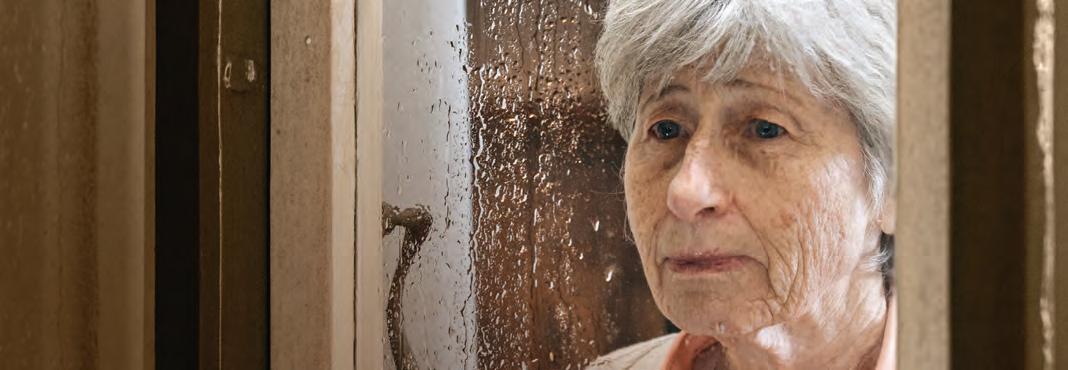
Repeated calling out
Repetitive questioning
Wandering
Hoarding
Resistive to care
Unwanted sexualised behaviour
The Dementia Behaviour Management Advisory Services (DBMAS) is a free, nationwide service, funded by the Australian Government, supporting family, health and aged care professionals to better understand and respond to individual changes in behaviour and emotions.
The service can help explain the causes for changed behaviours and identify strategies to assist the person living with dementia and their carers. It offers specialised support, assessment, intervention and advice to assist carers and care workers of people with dementia.
DBMAS has a multi-disciplinary team of experienced health care professionals, such as registered nurses, social workers, clinical psychologists, geriatricians, speech pathologists and dietitians.
DBMAS is committed to providing culturally sensitive and effective communication. If you require an interpreter service, you can call the Translating and Interpreting Service on 13 14 50 and ask them to contact the DBMAS service.
For more information, contact DBMAS on 1800 699 799 or visit dementia.com.au
Whether you live in your own home or in a residential aged care home, when the end of life approaches, you may require additional support.
The primary goal of palliative care is to provide supportive care and improve the patient’s quality of life by addressing any painful or distressing symptoms.
Palliative care is divided into three subgroups:
1. Primary care – For people who only require services from their primary health care professional(s).
2. Intermediate care – Advice is provided by specialist palliative care services, but care is still given by health care professional(s).
3. Complex care – For people who require care from specialist practitioners. Patients are commonly referred to specialist palliative care services where they will receive the required care.
There are a number of different services that can offer extra support both at home or in a nursing home setting.
Services that may help you to stay in the comfort of your own home can include:
A qualified nurse to dress a wound or provide continence advice
Household jobs like cleaning, clothes washing and ironing
Help with bathing or showering, dressing, hair care and going to the toilet
Meals and other food services – assistance with preparing and eating meals or help for those with special diets
Helping to travel to shopping centres or appointments
For palliative care in a residential aged care setting, the government has developed a series of guidelines that offer support and guidance to residential aged care facilities in providing palliative care.
The ‘Guidelines for a Palliative Approach in Residential Aged Care’ outline three forms of palliative care in residential aged care, which include:
A palliative approach – aims to improve the quality of life for residents with a life-limiting illness. This can be done by reducing their suffering through early identification, assessment and treatment of pain; handling their physical, cultural, psychological, social and spiritual needs.
Specialised palliative service provision – involves referral to a specialised palliative team or health care practitioner.
End-of-life (terminal) care – appropriate when the resident is in the final days or weeks of life and care decisions may need to be reviewed more frequently.
Providing end-of-life care can be particularly intense for family and friend carers.
While managing their own grief and the grief of others, carers will be providing high-level physical and emotional support that a patient needs at the end of life. Palliative care not only supports patients, but also their friends and families.
For more information about palliative care services, talk to your GP or contact your community health centre.

This section only includes organisations and businesses who have chosen to promote with Aged Care Guide
(ACFA) 8860 9159
366 932 care@alteris.com.au
200 312 info@amazingprocare.com.au
111 278 info@anglicare.org.au
637 365 info@apollocare.com.au
2811 admin@centralishomecare.com.au
246 637 admissions@chomes.com.au
This section only includes organisations and businesses who have chosen to promote with Aged Care Guide
(02)
6199
03 9830 5022 admin.camberwell@nazarethcare.com
0672
Opal HealthCare 1300 842 924 communications@opalhealthcare.com.au
1800 650 070 agedcare@penvill.com.au
1800 710 021 info@procareservices.com.au
998 866
(NSW & ACT)
870 427
703 346
685 548
111 227 acp.enquiries@aue.salvationarmy.org
The Sisters of Our Lady of China 9153 8224 info@ourladyofchina.org.au
459 190 info@trilogycare.com.au
Uniting Home & Community Care
864 846 ask@uniting.org
864 846 ask@uniting.org




